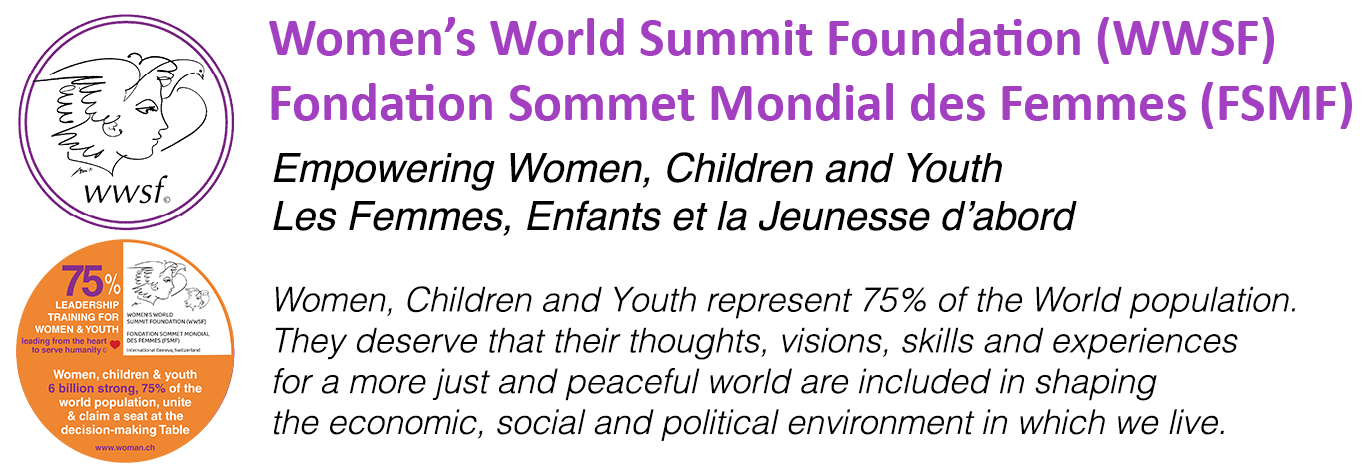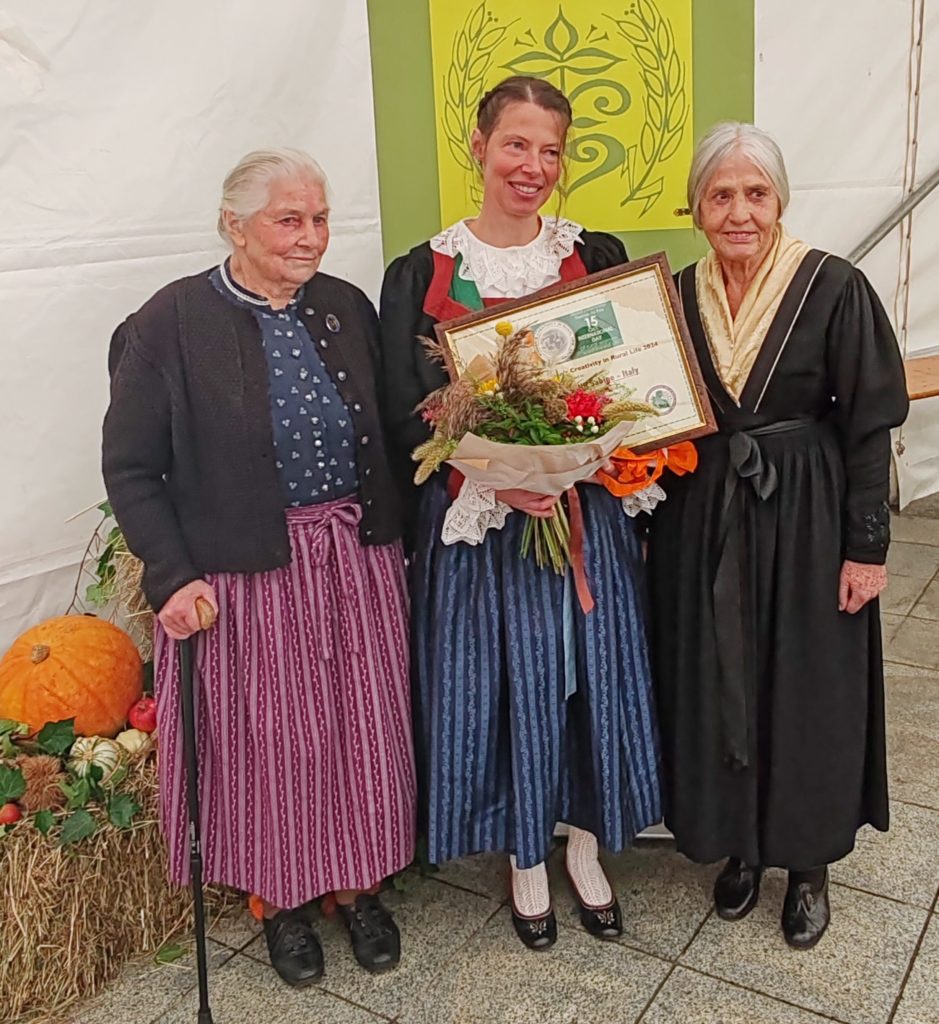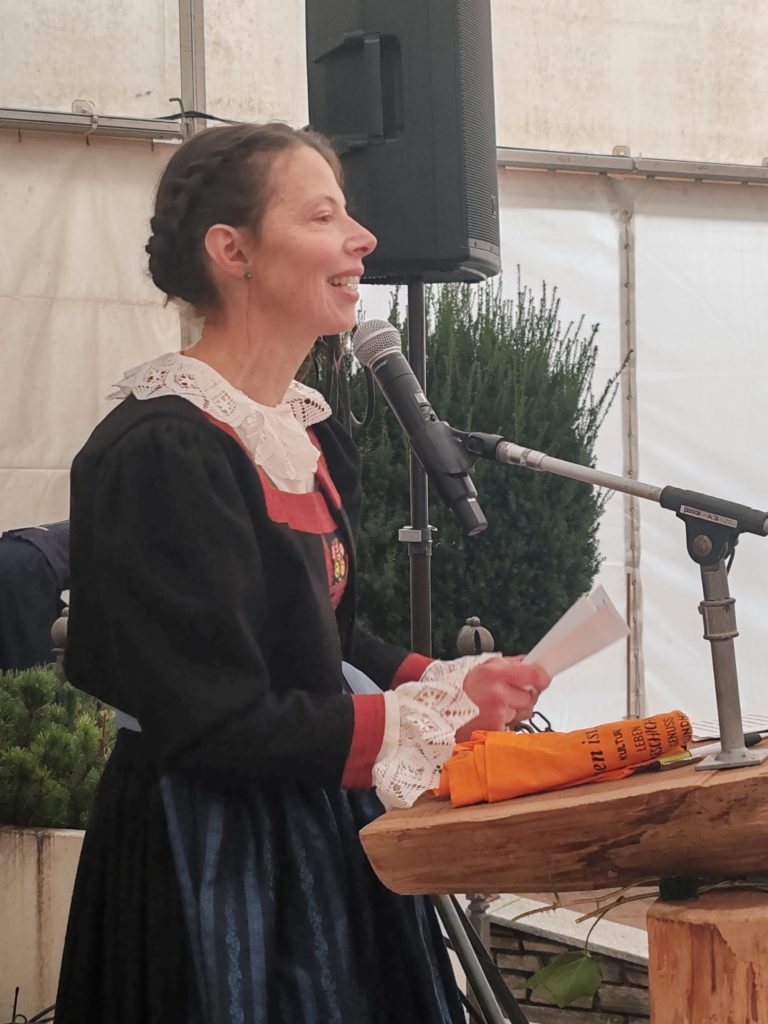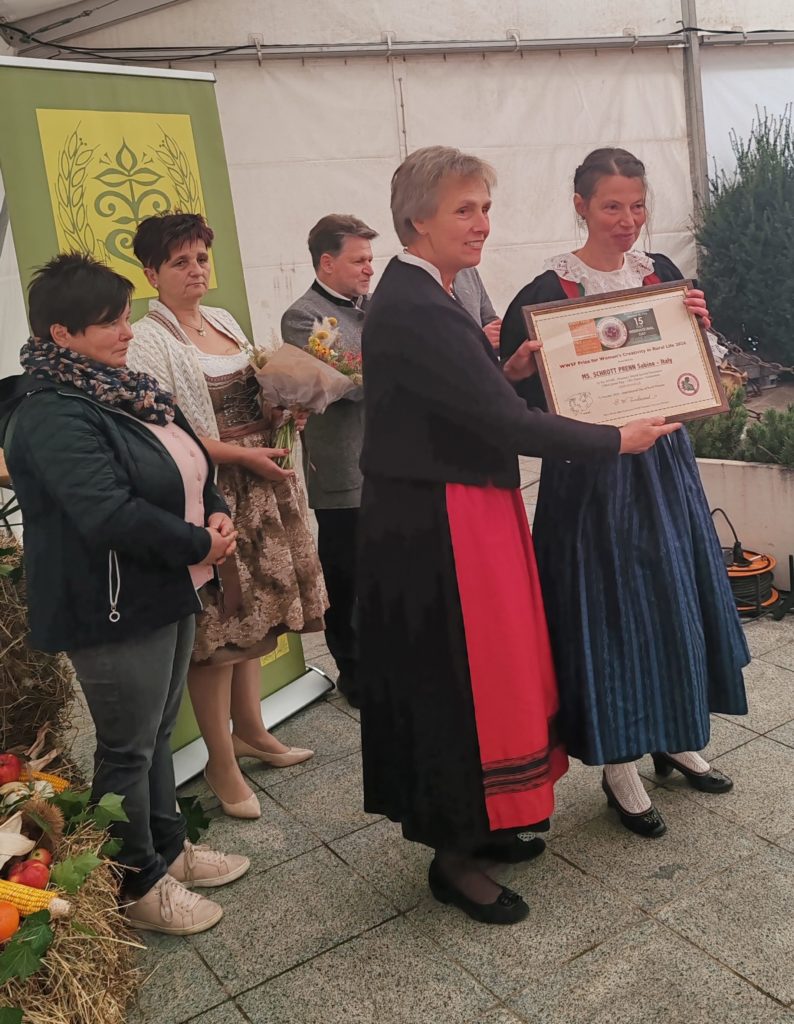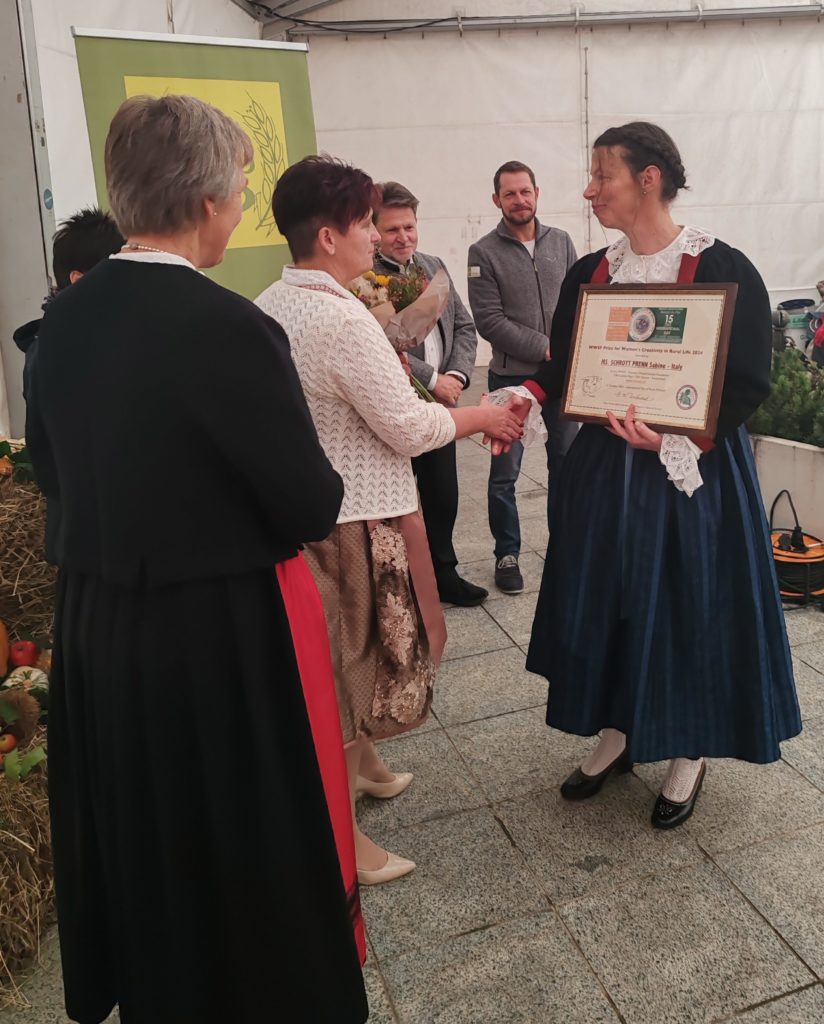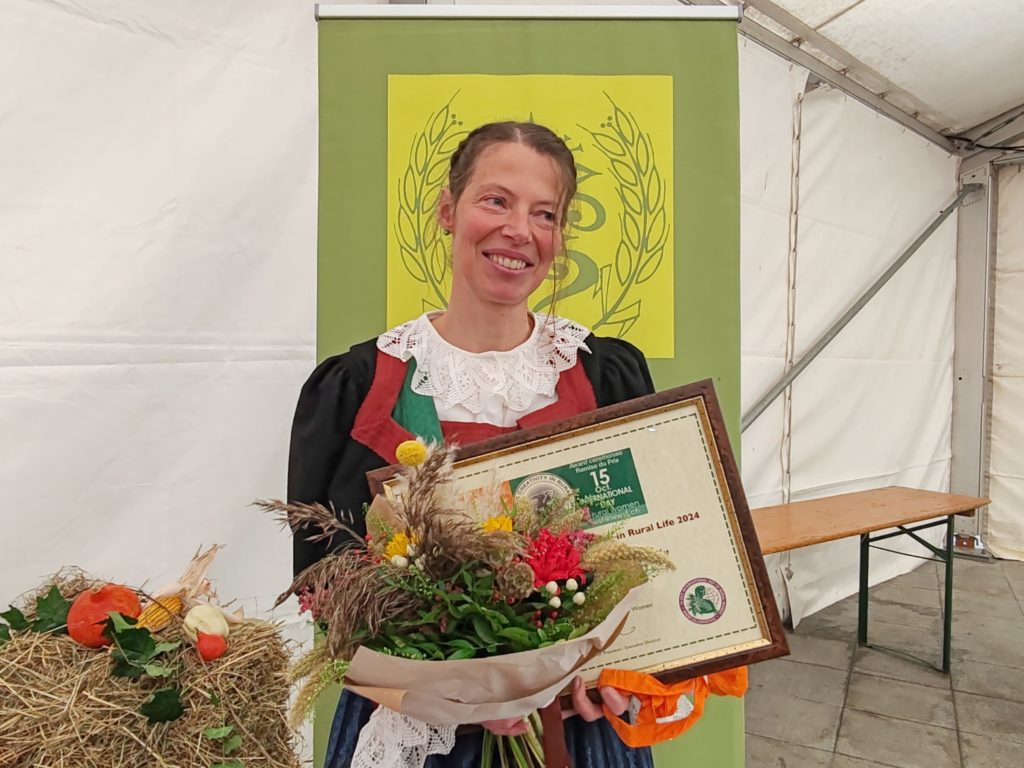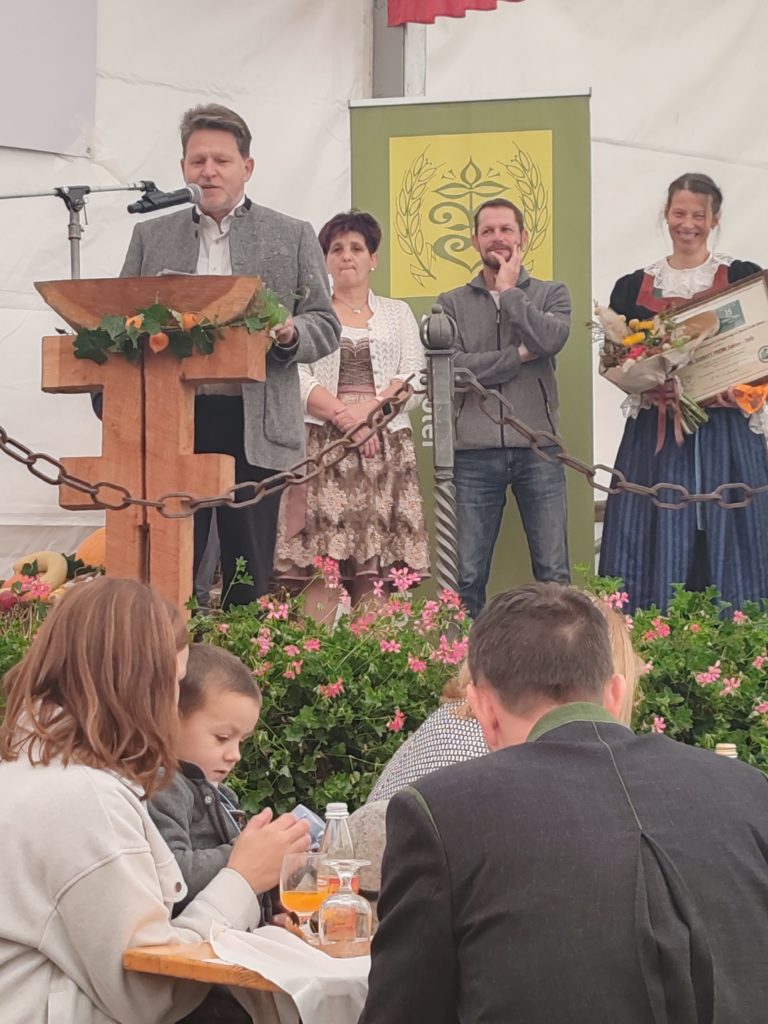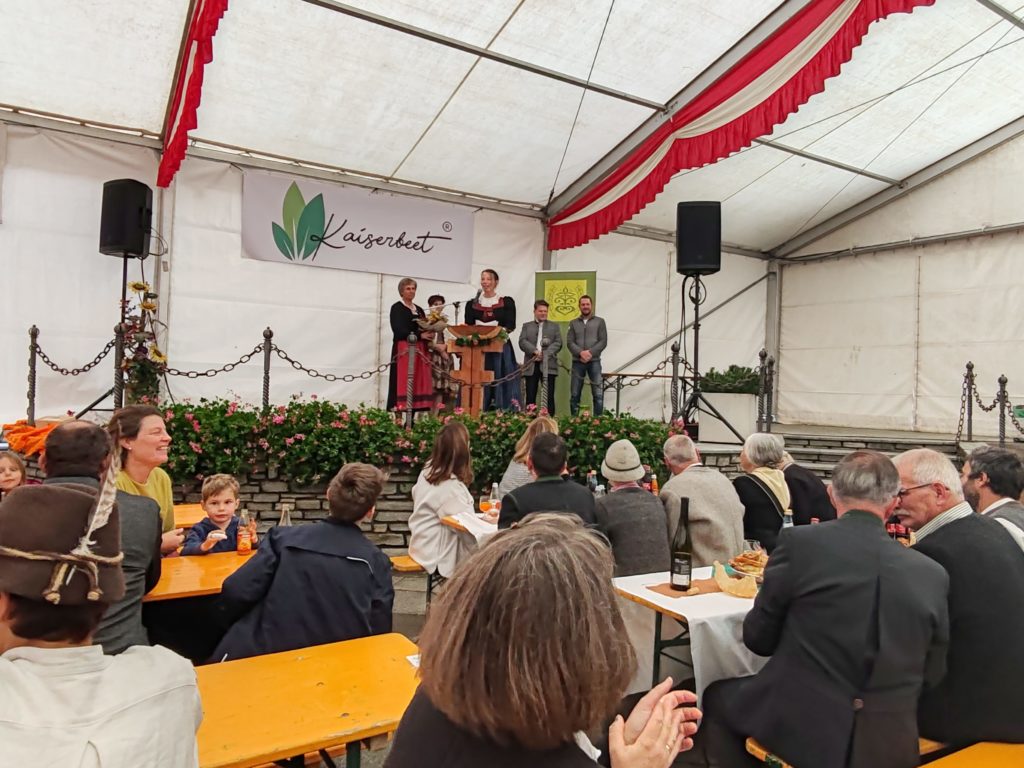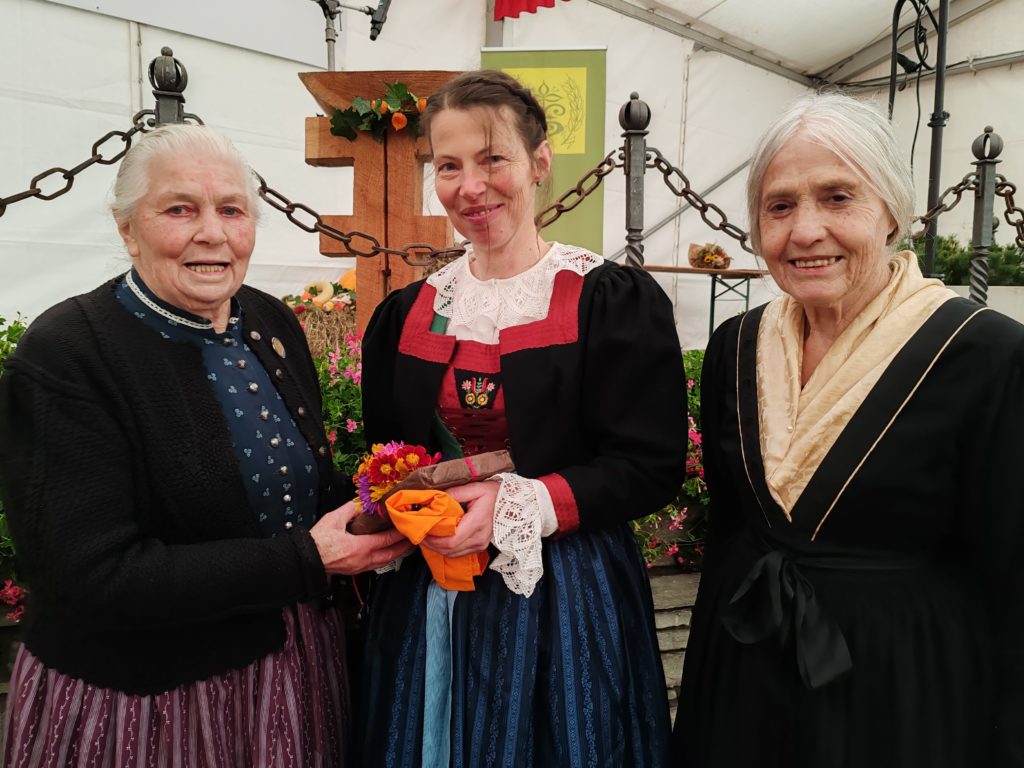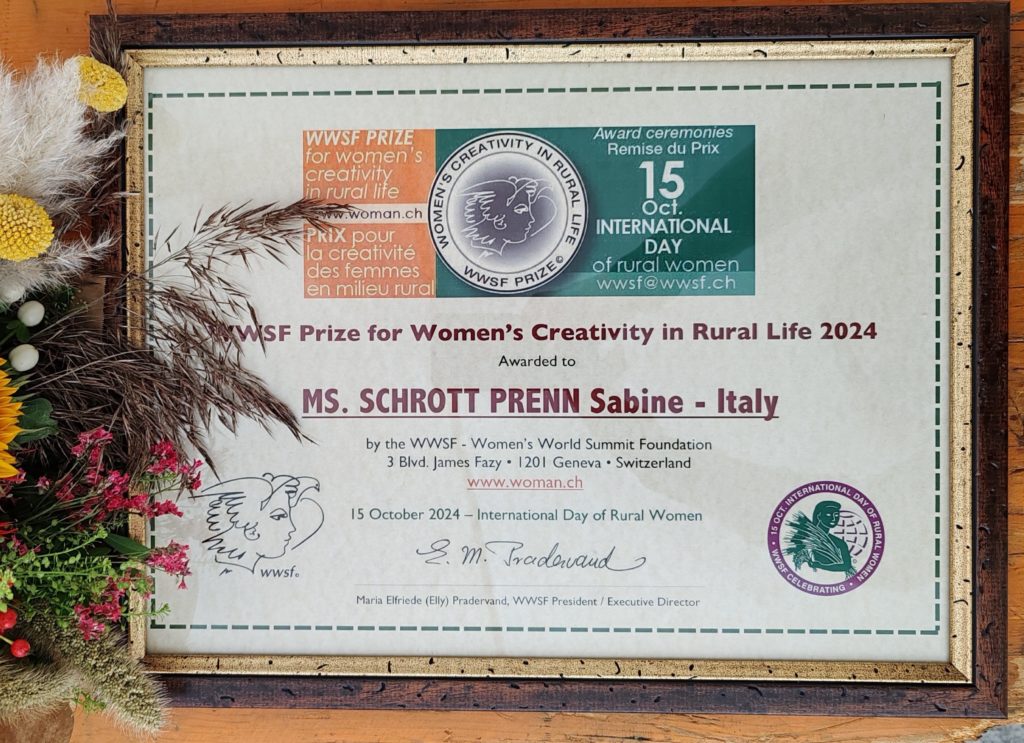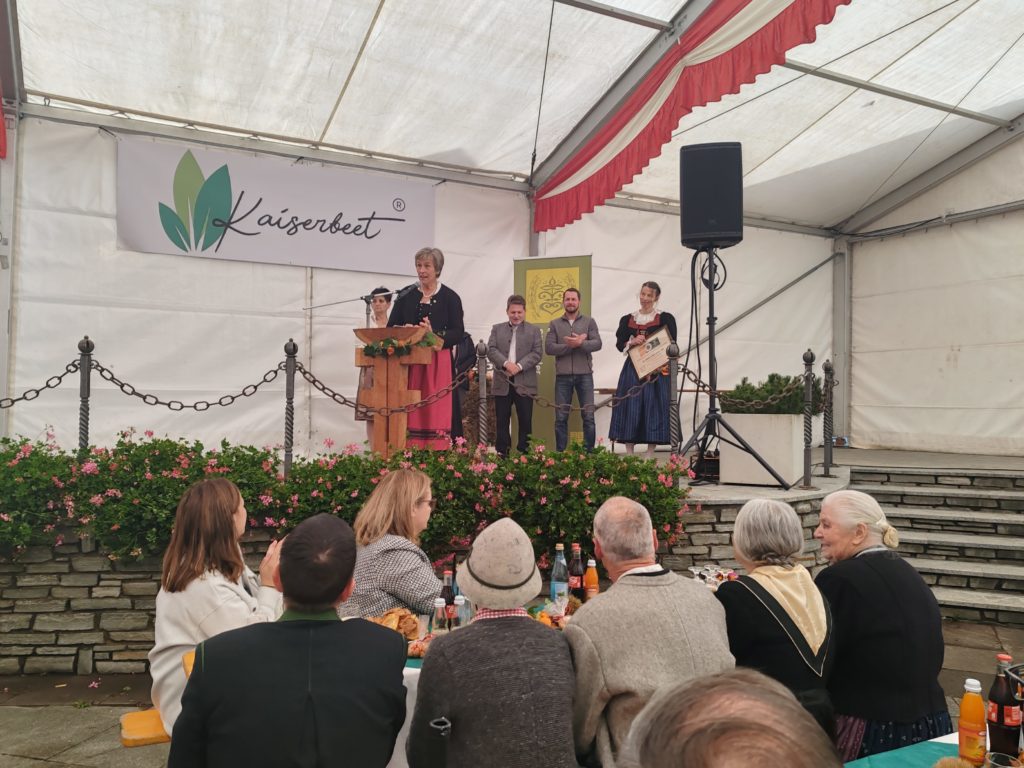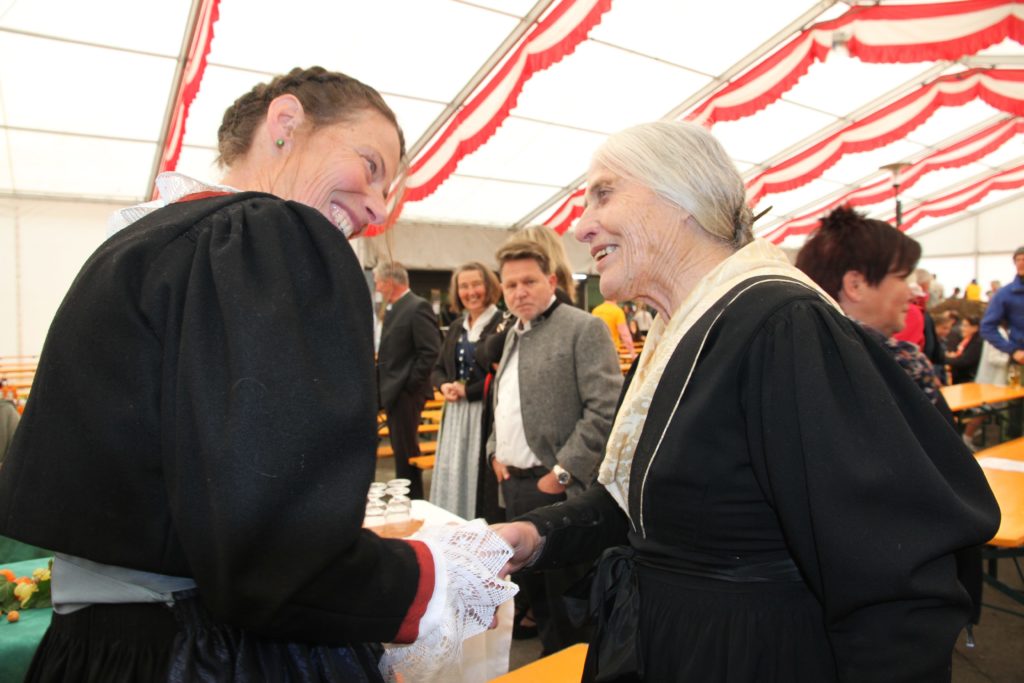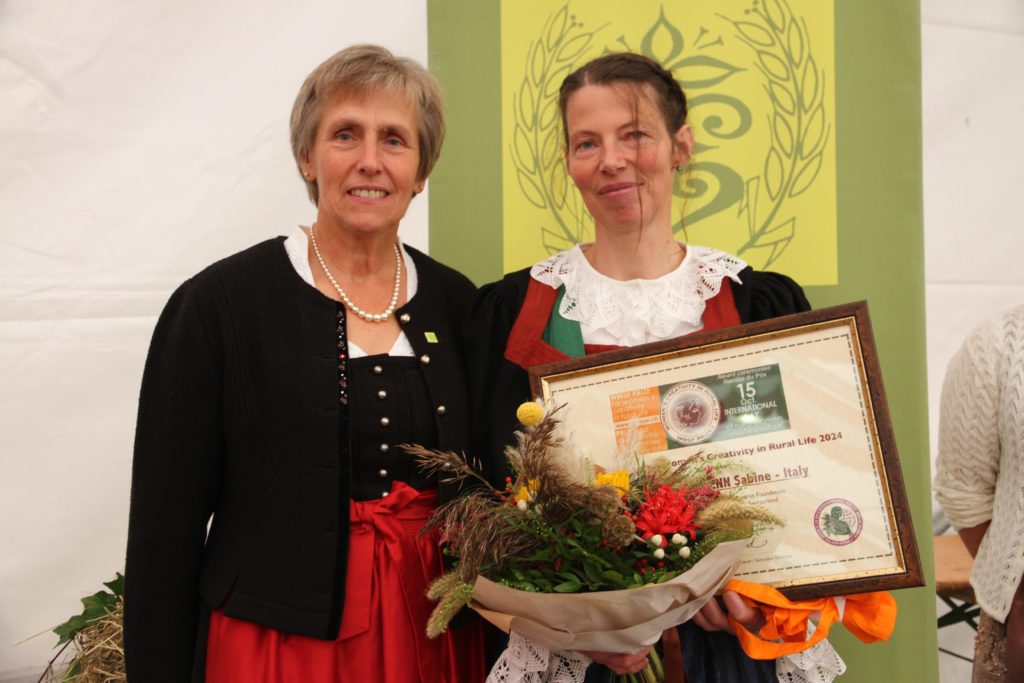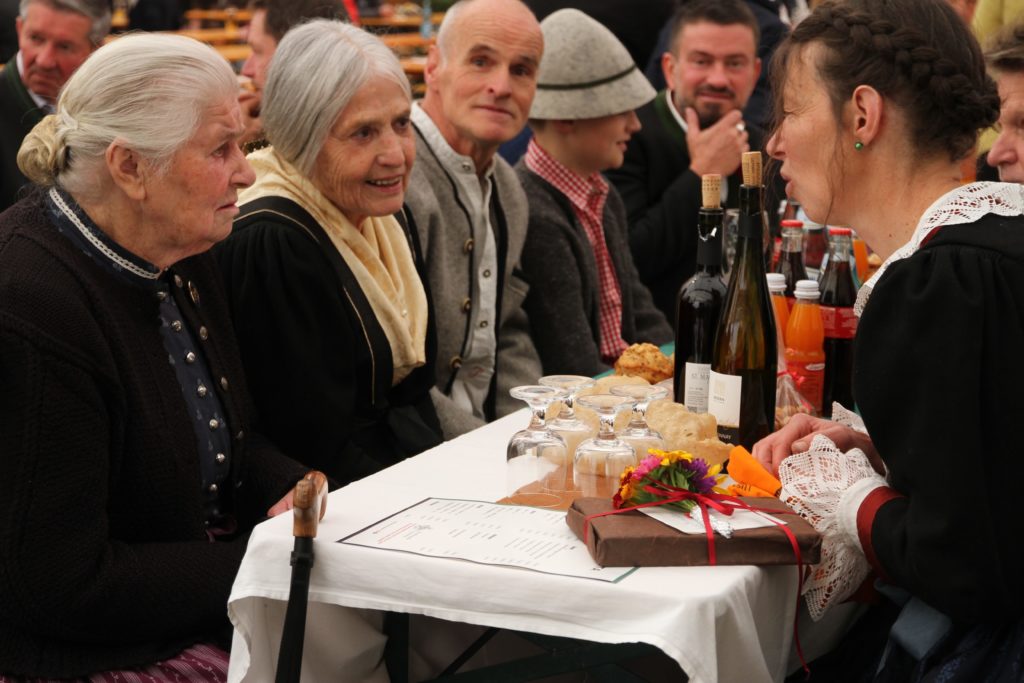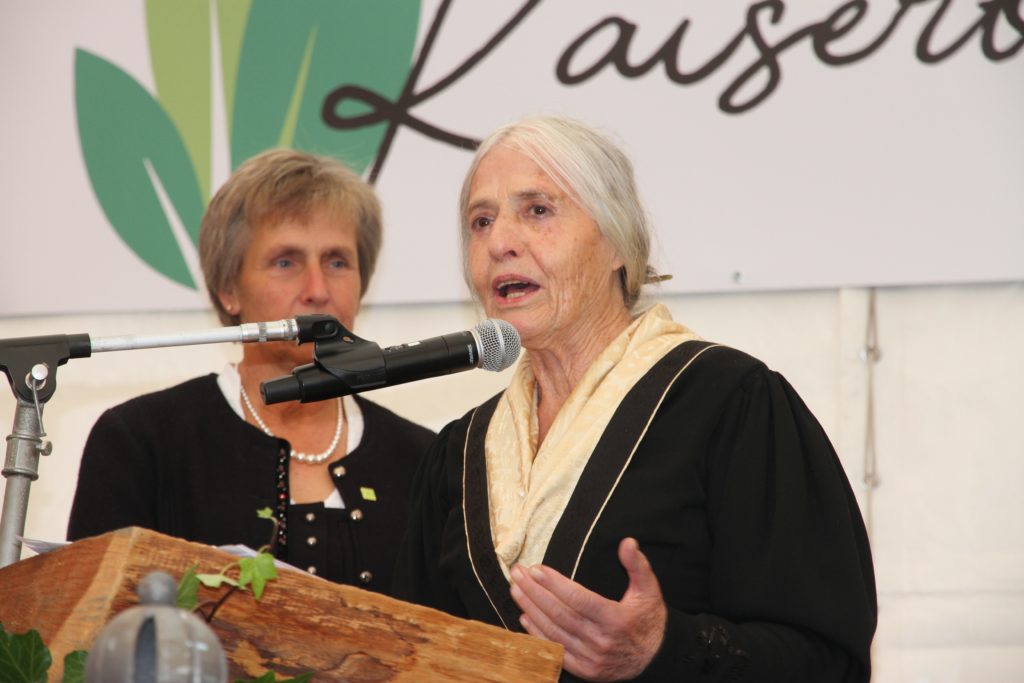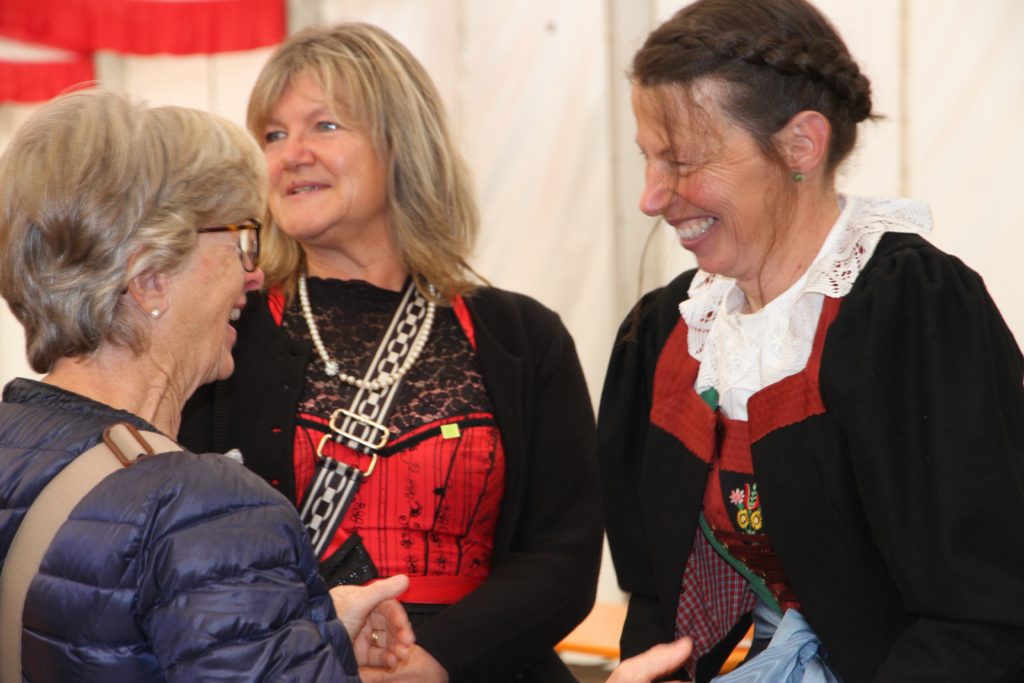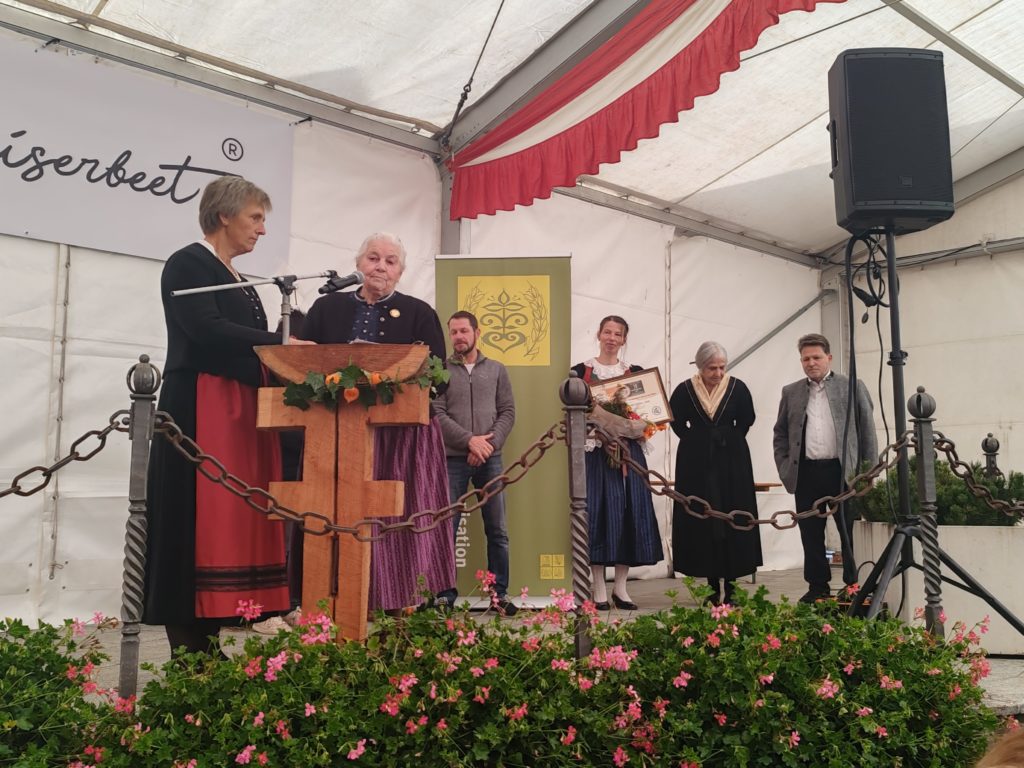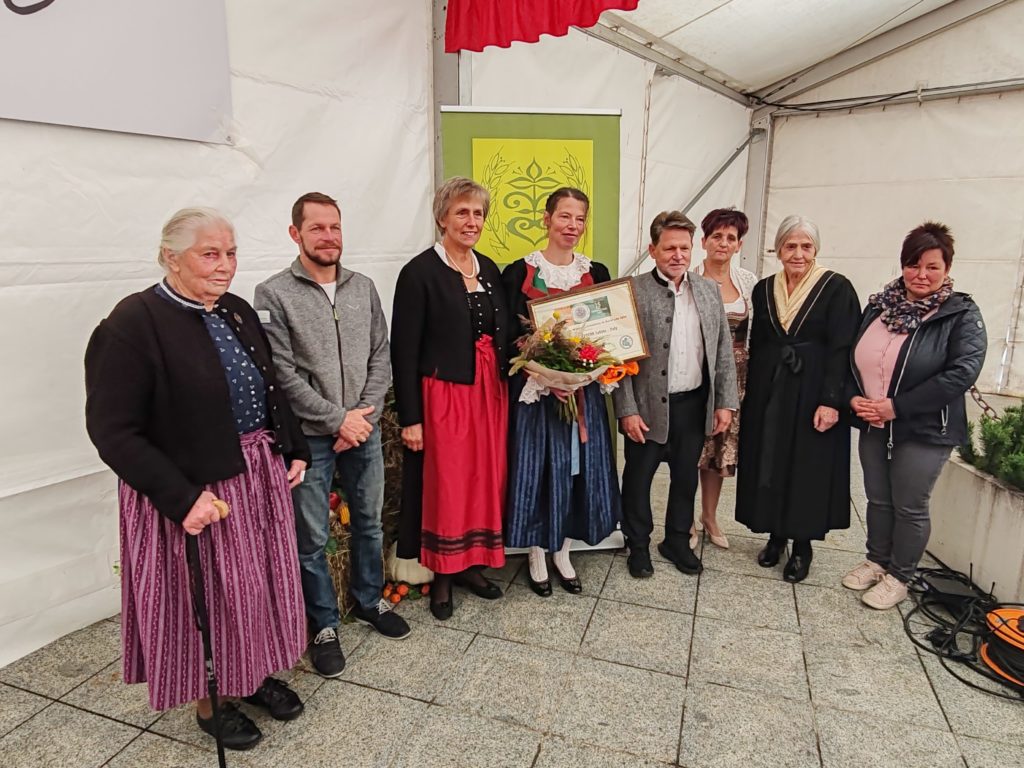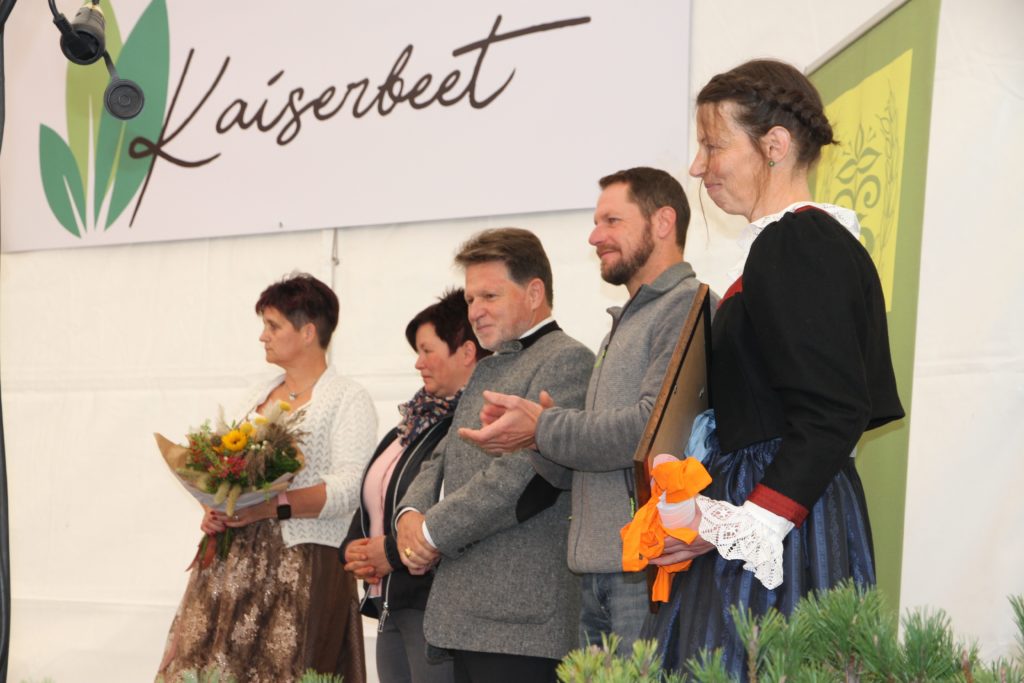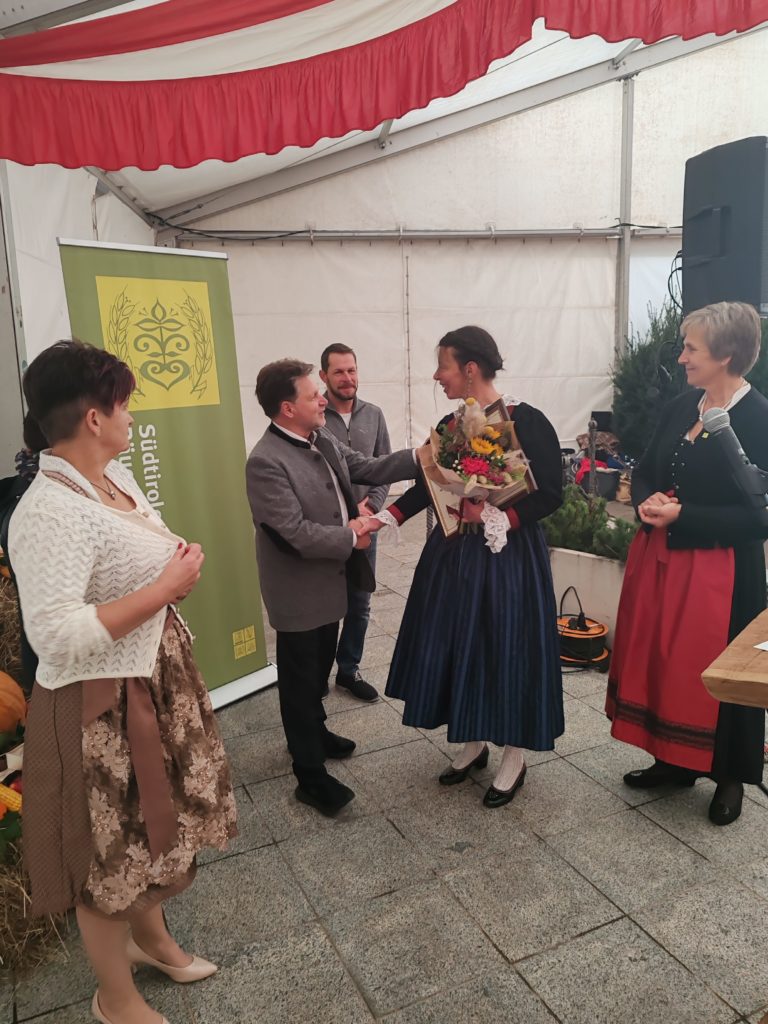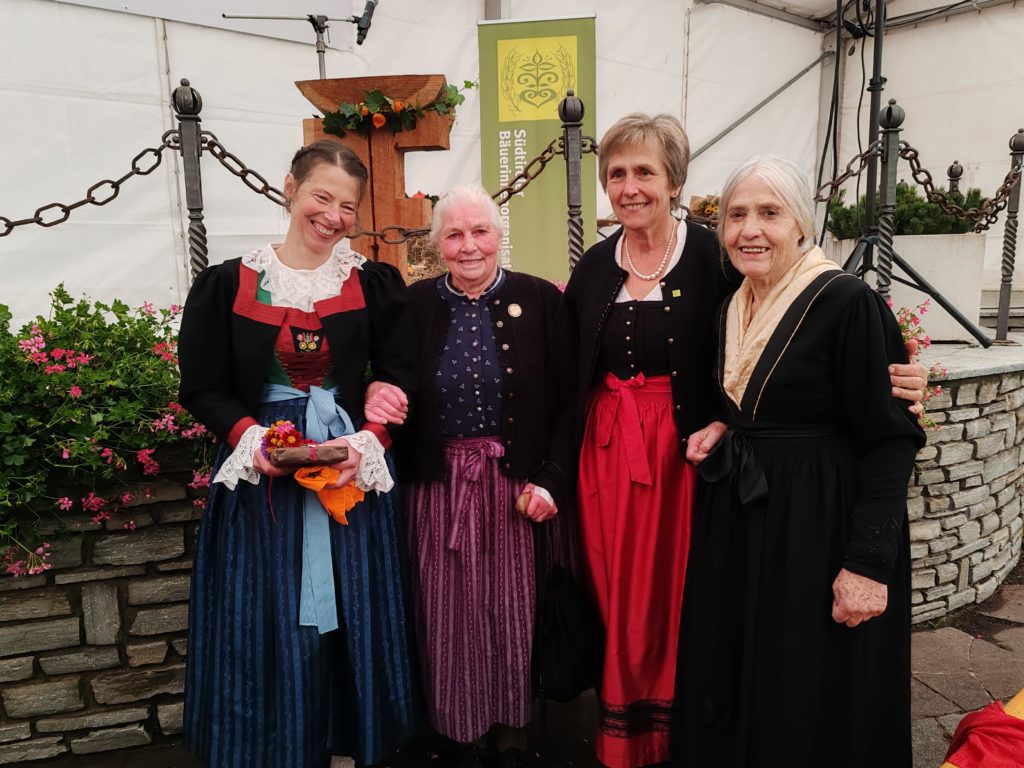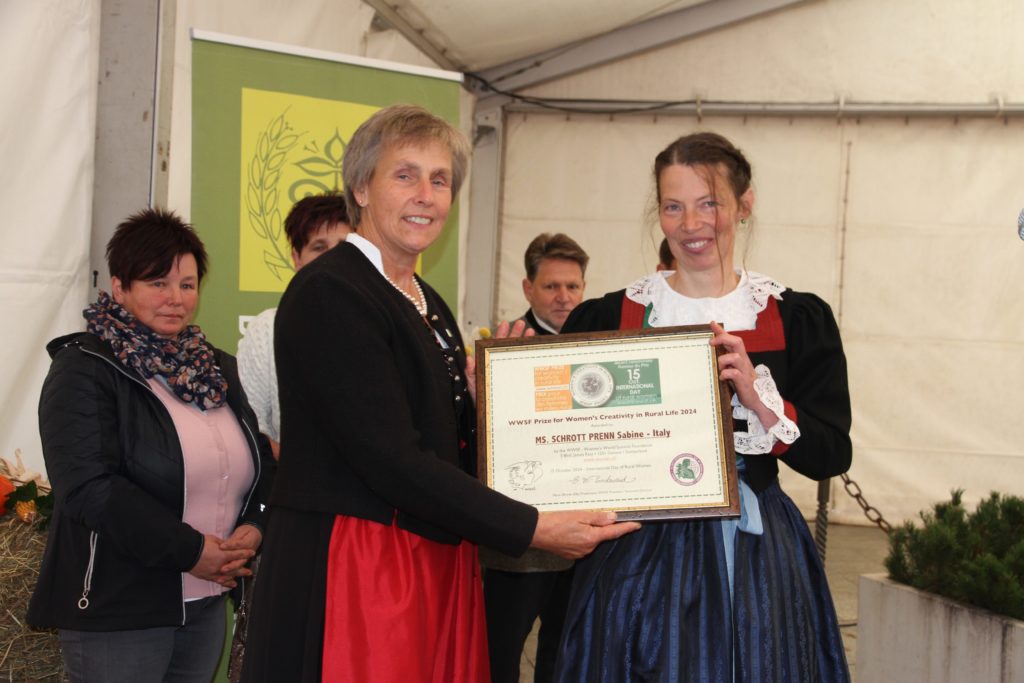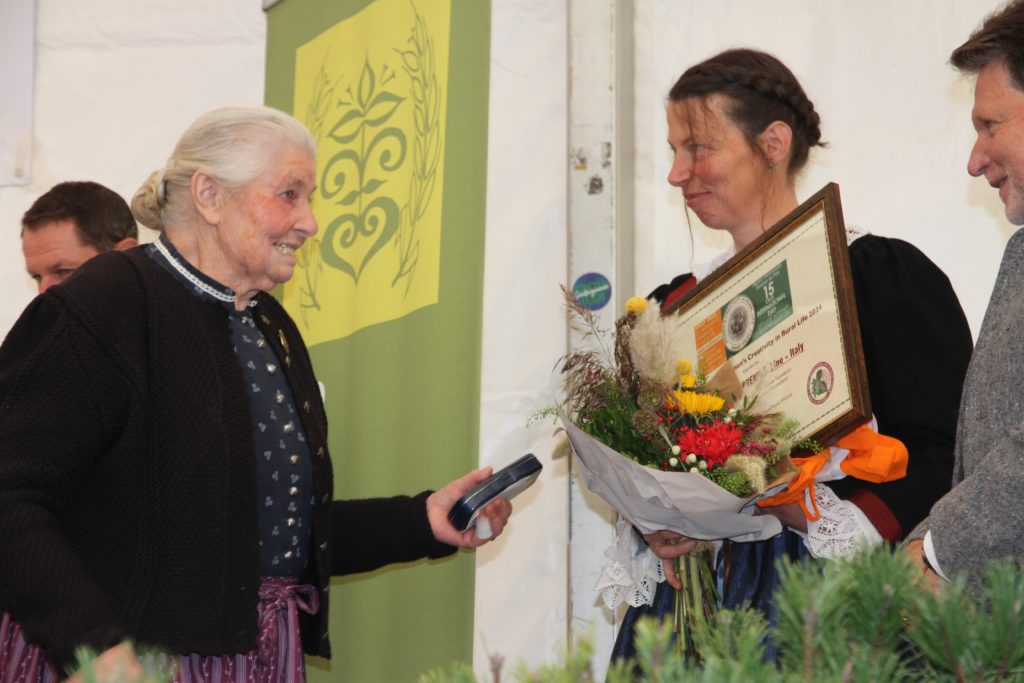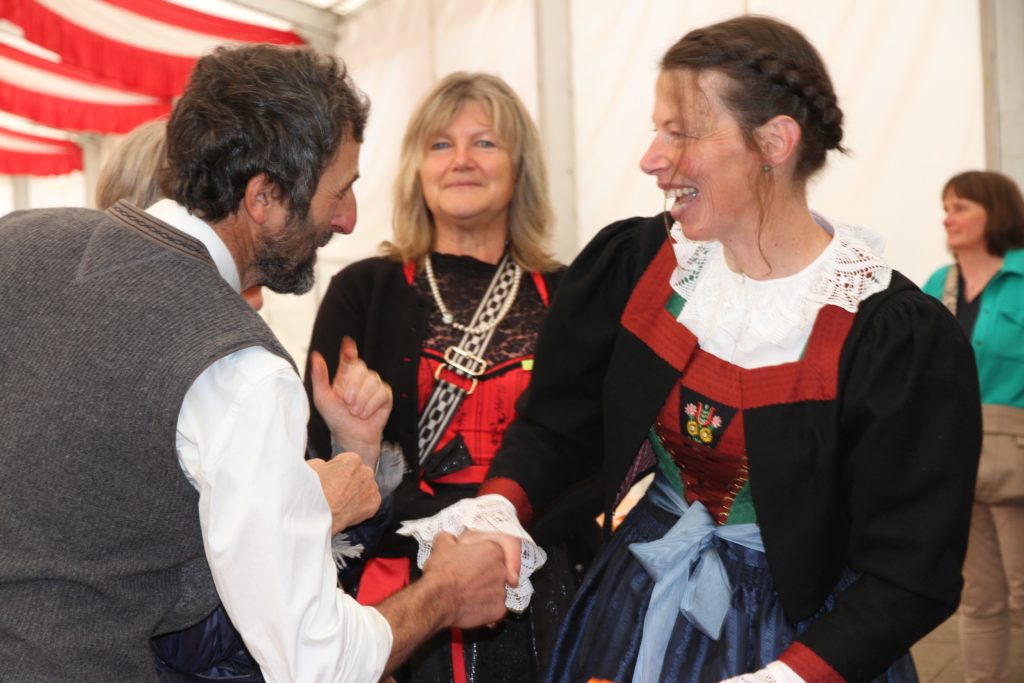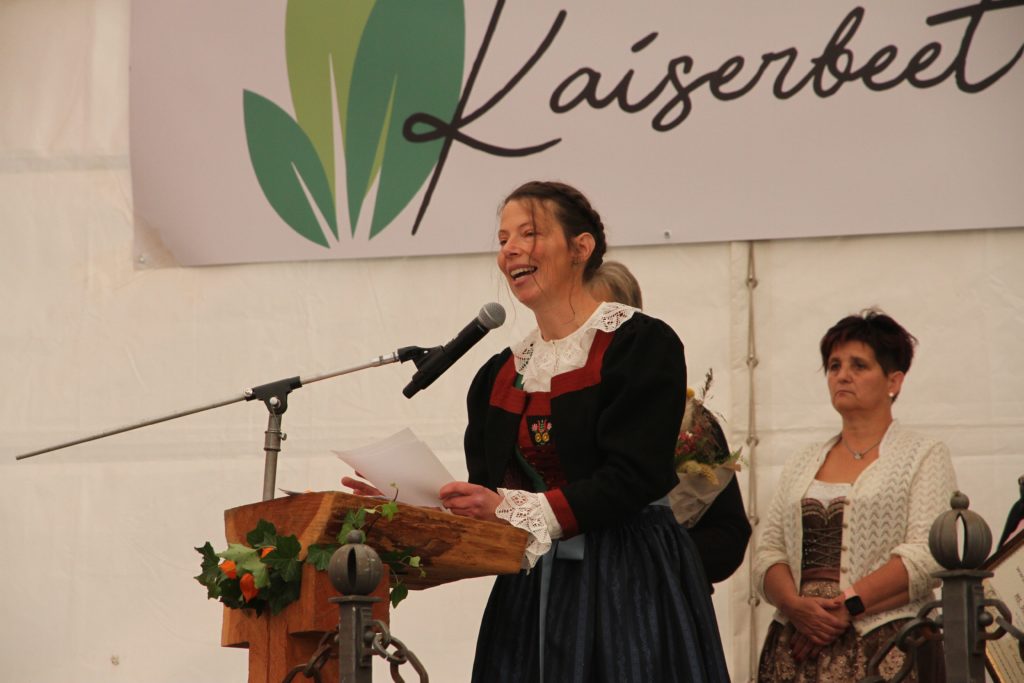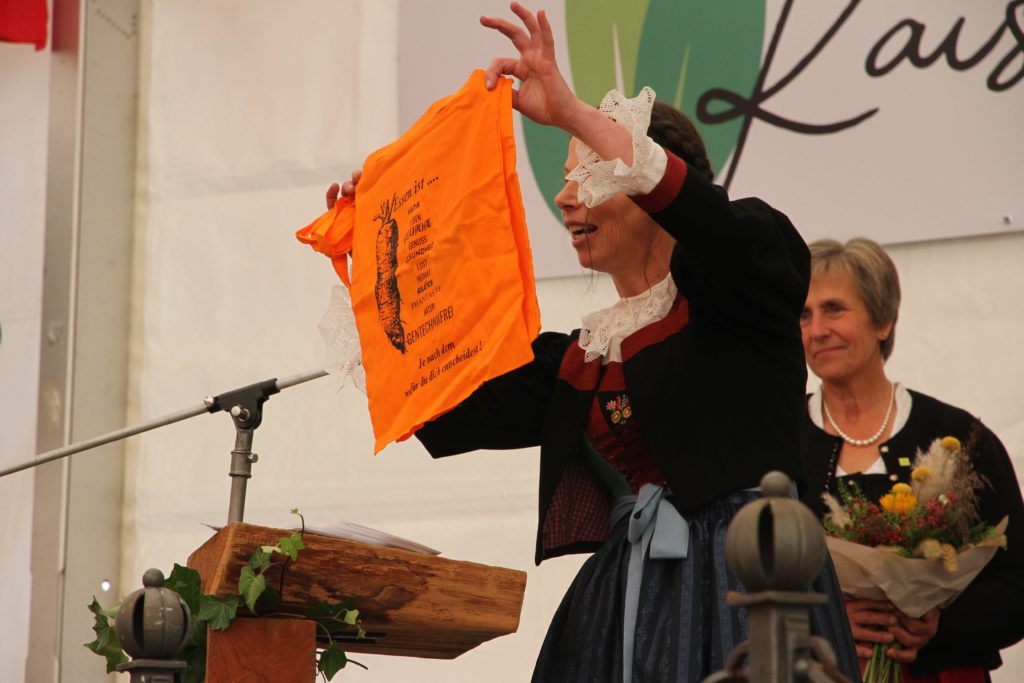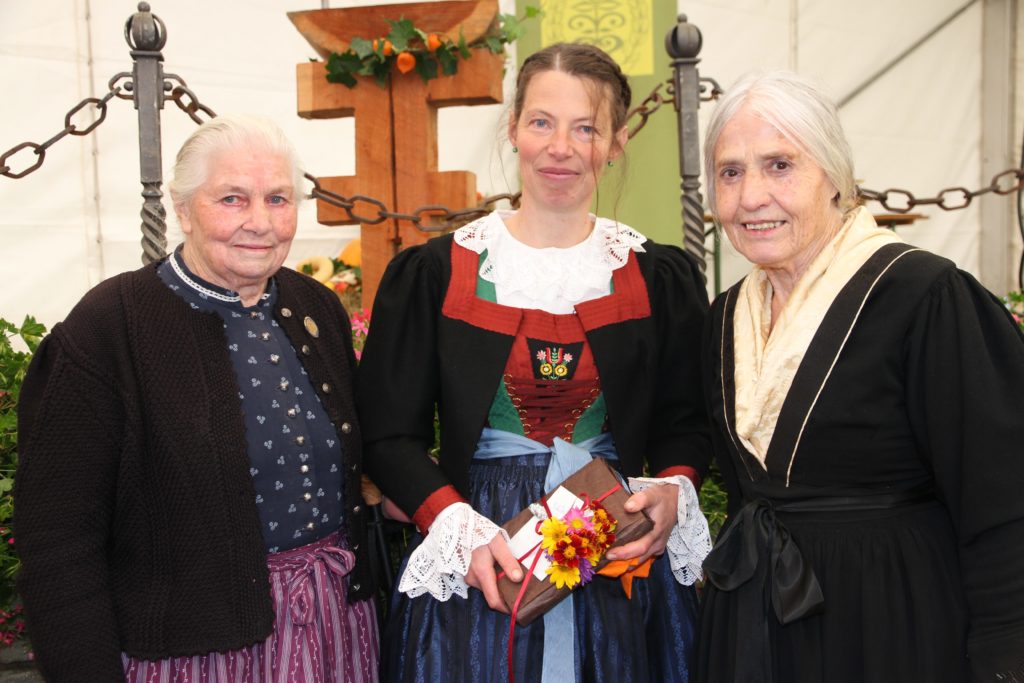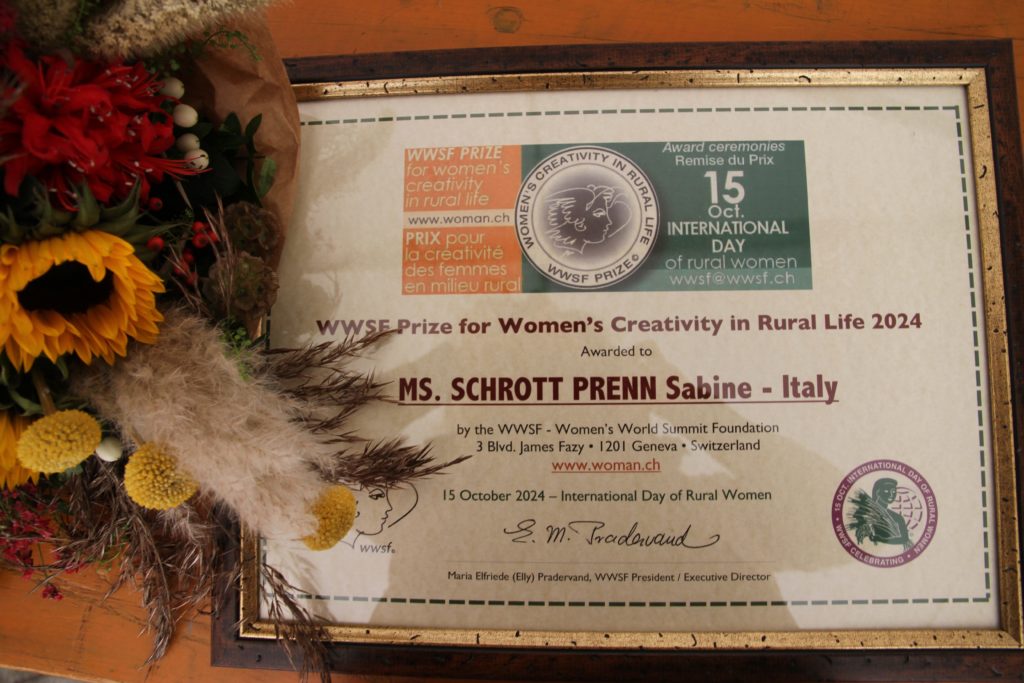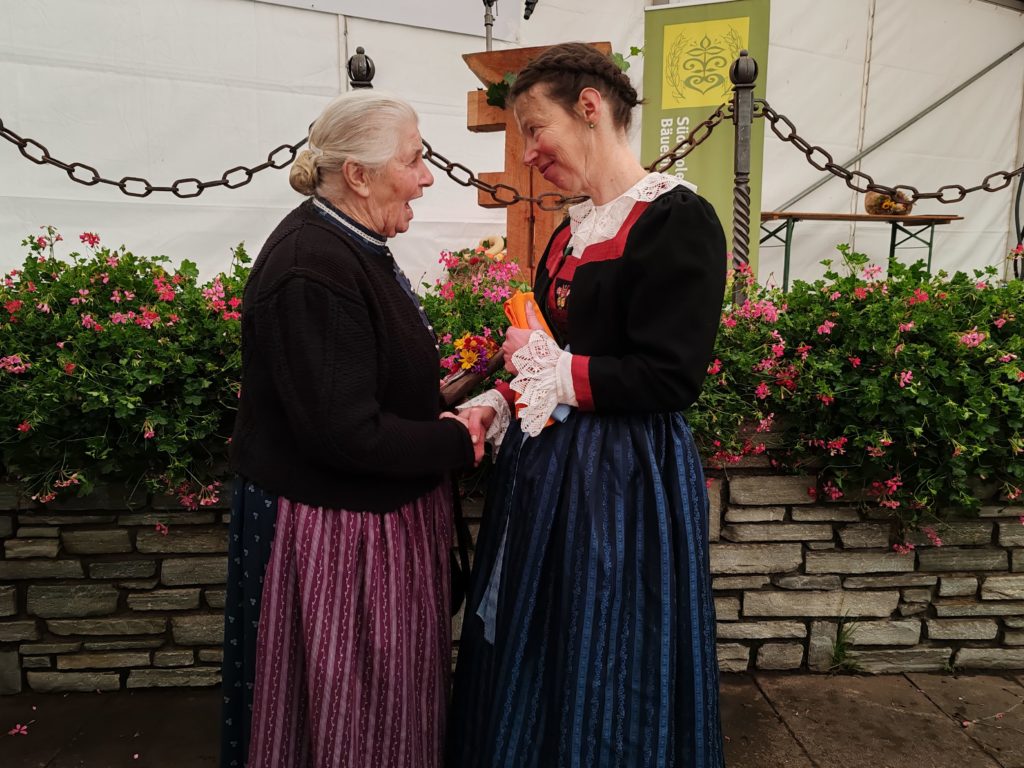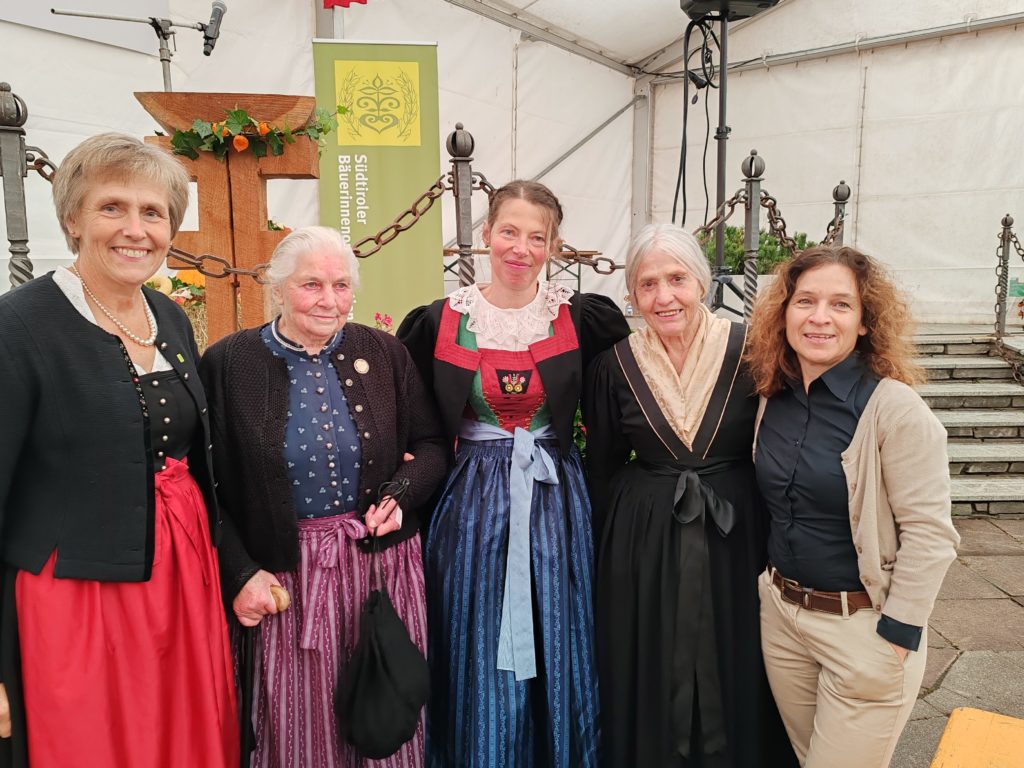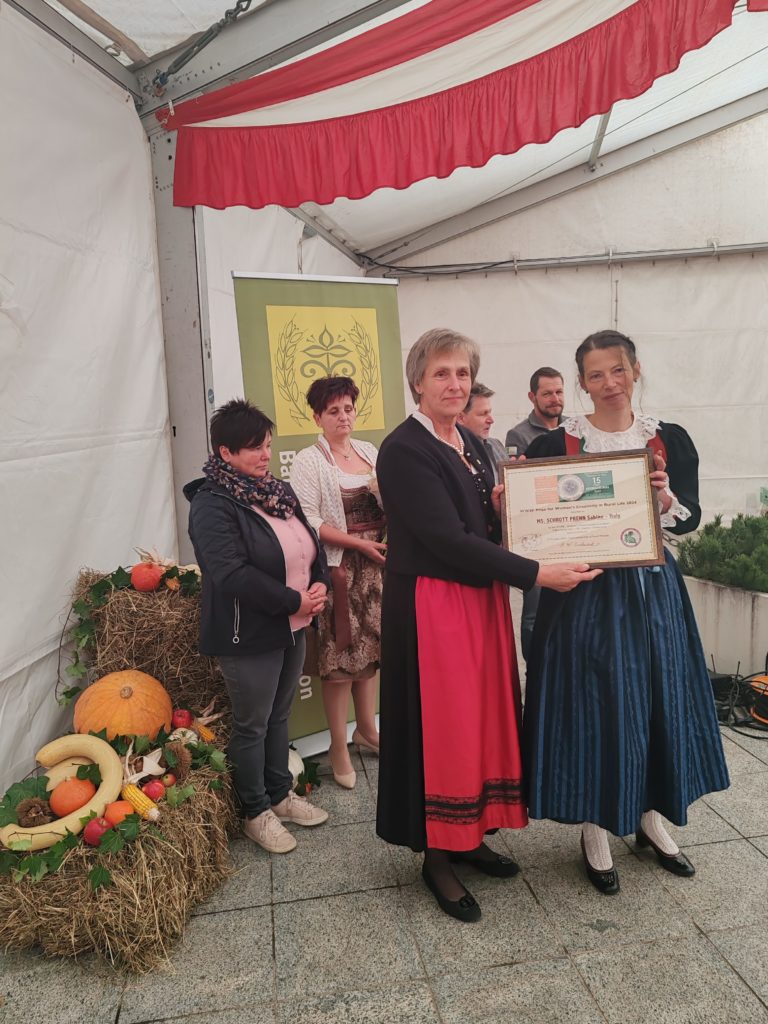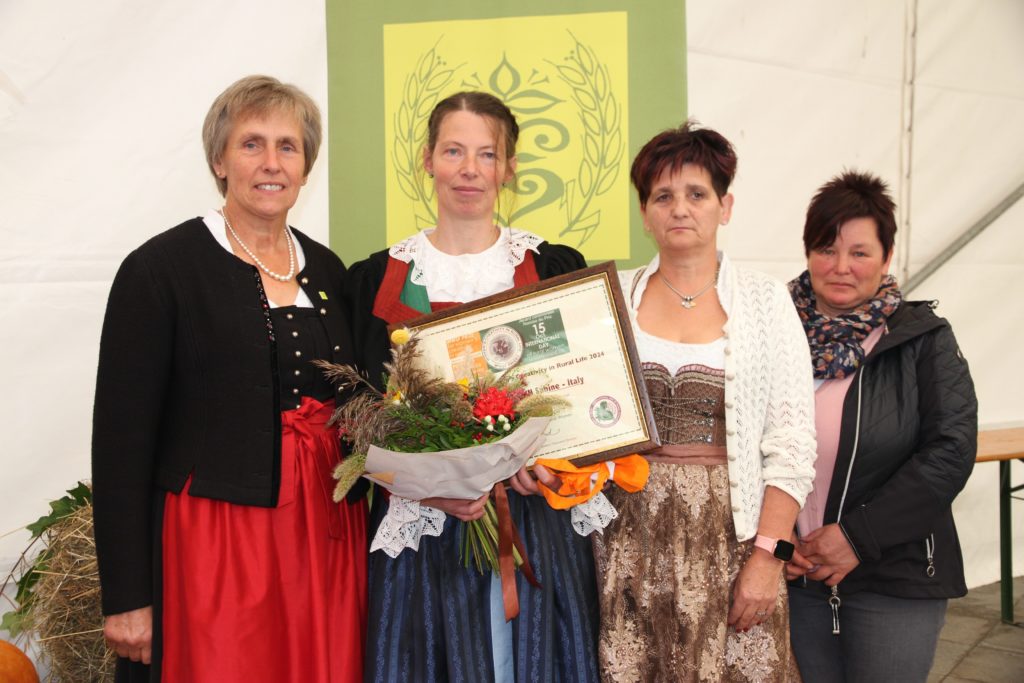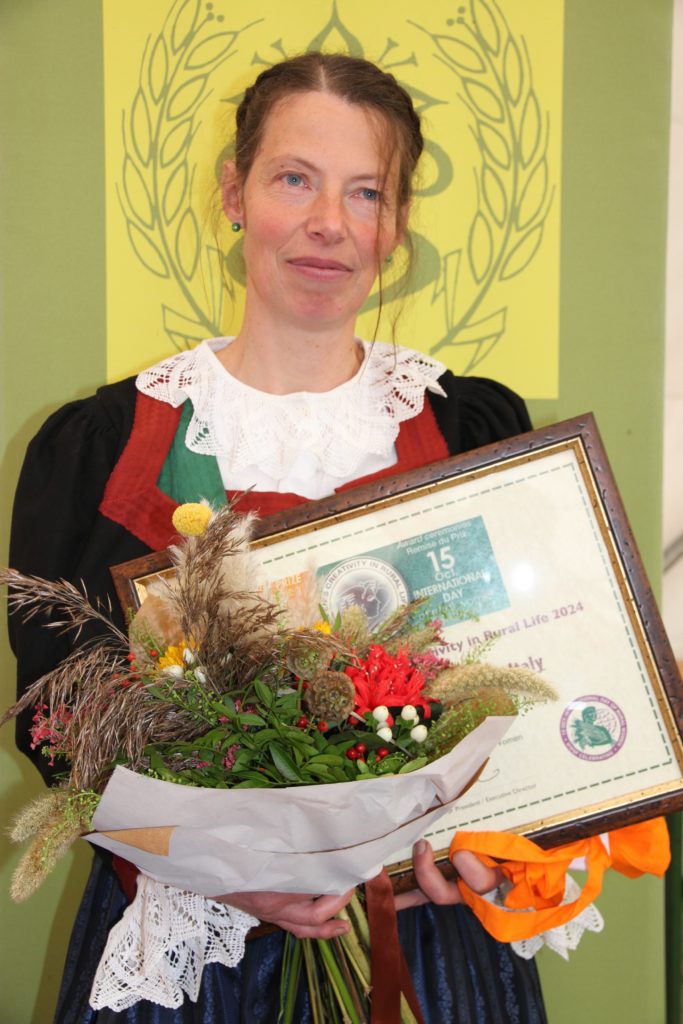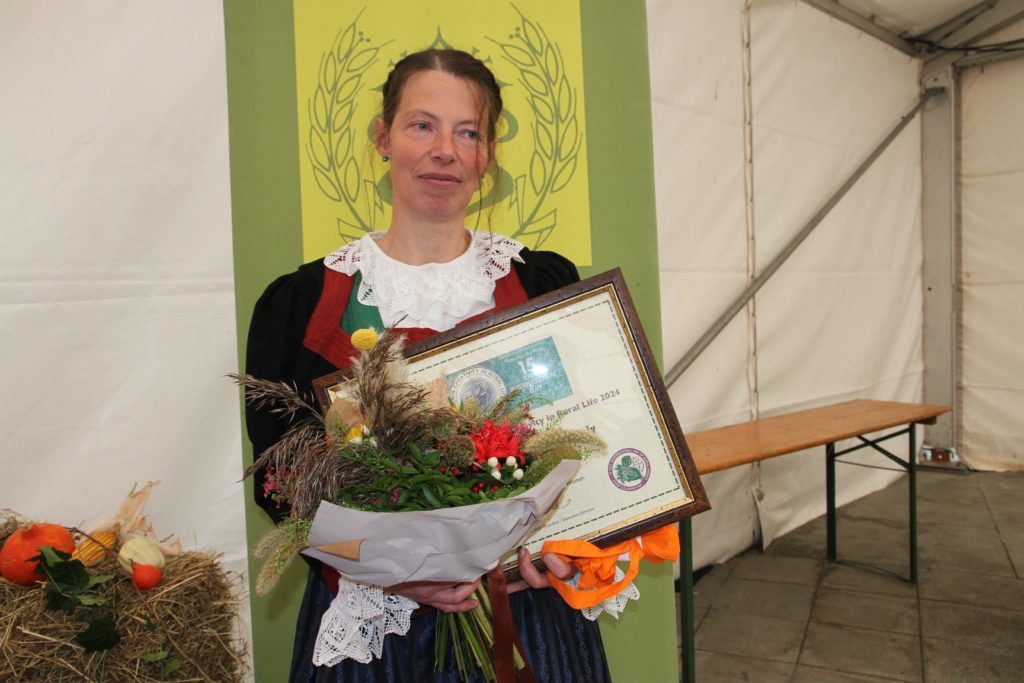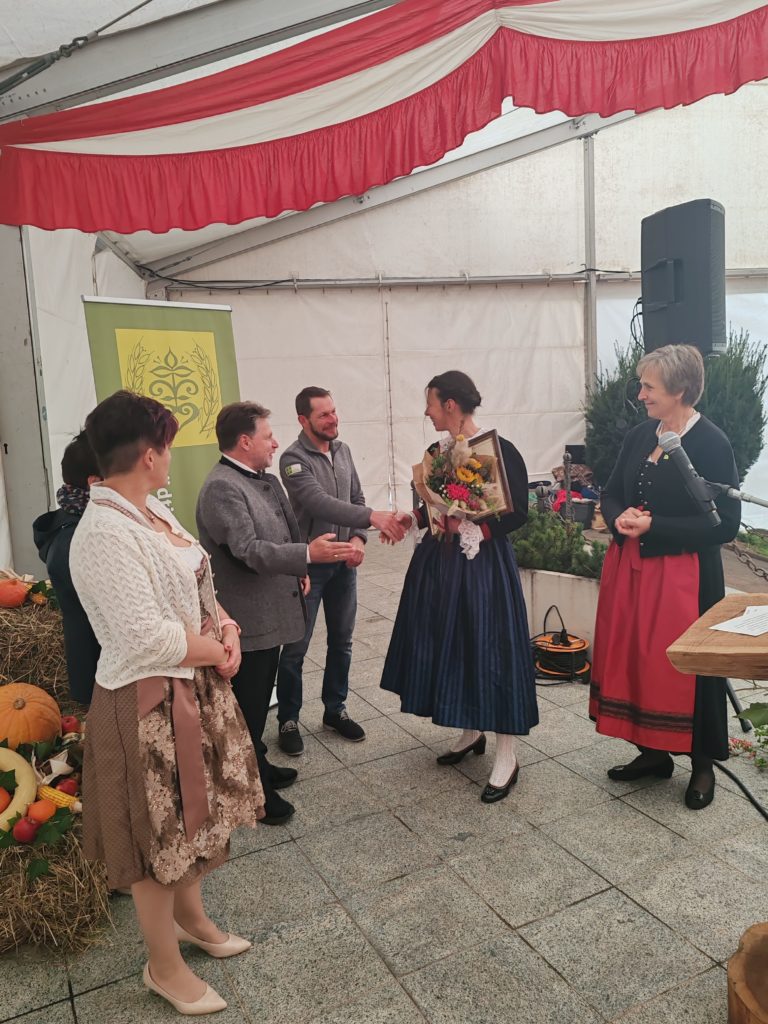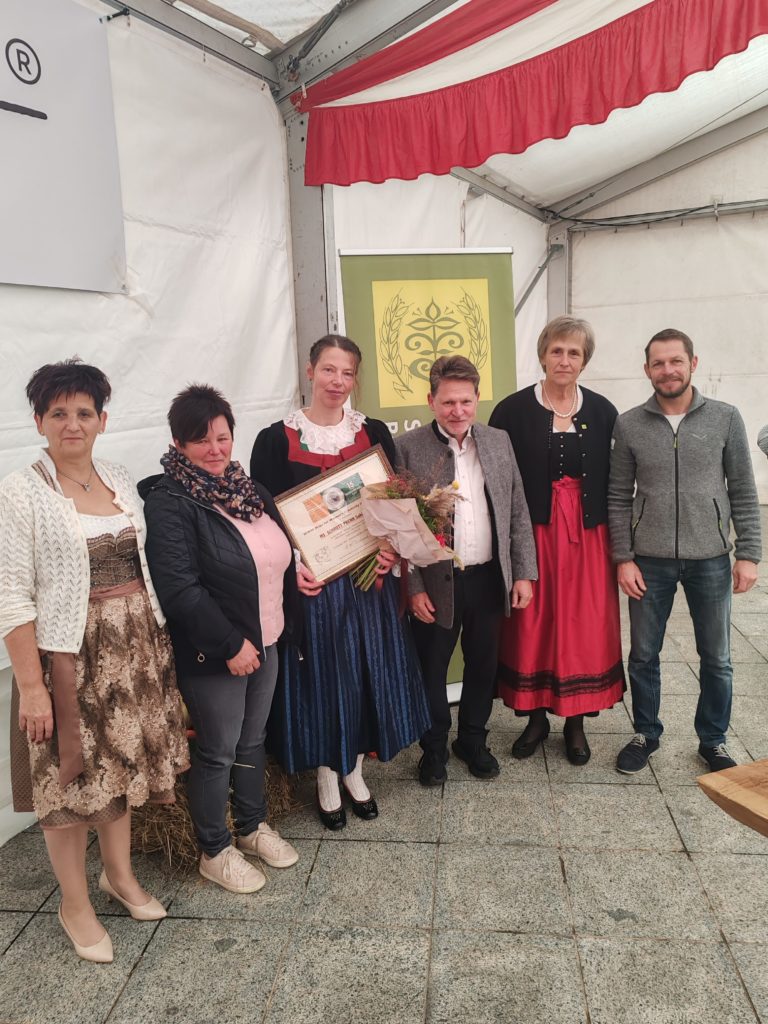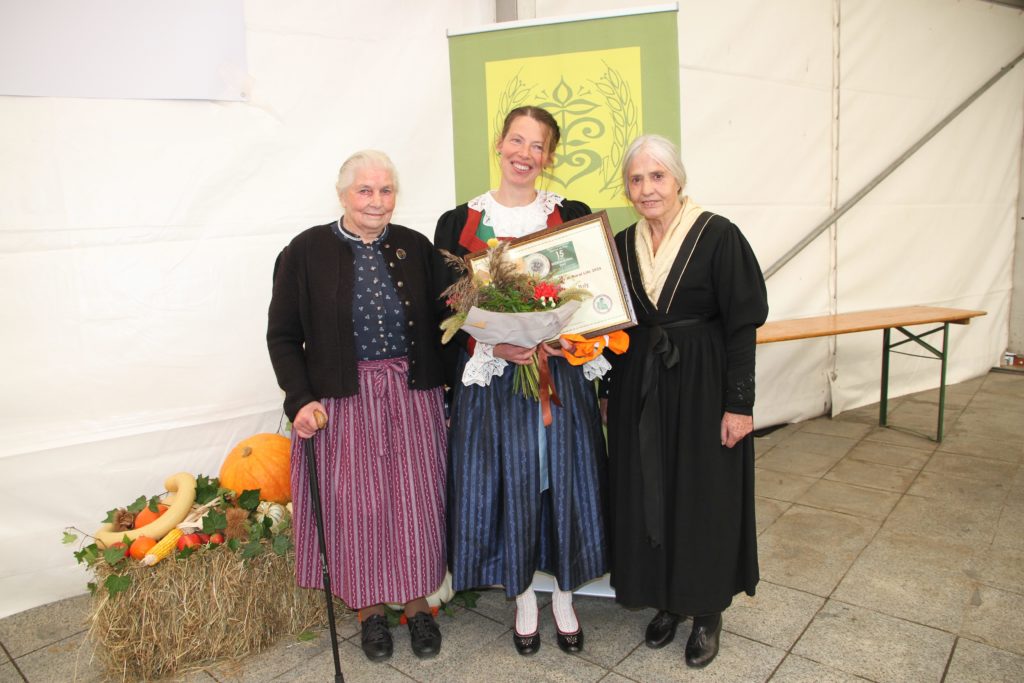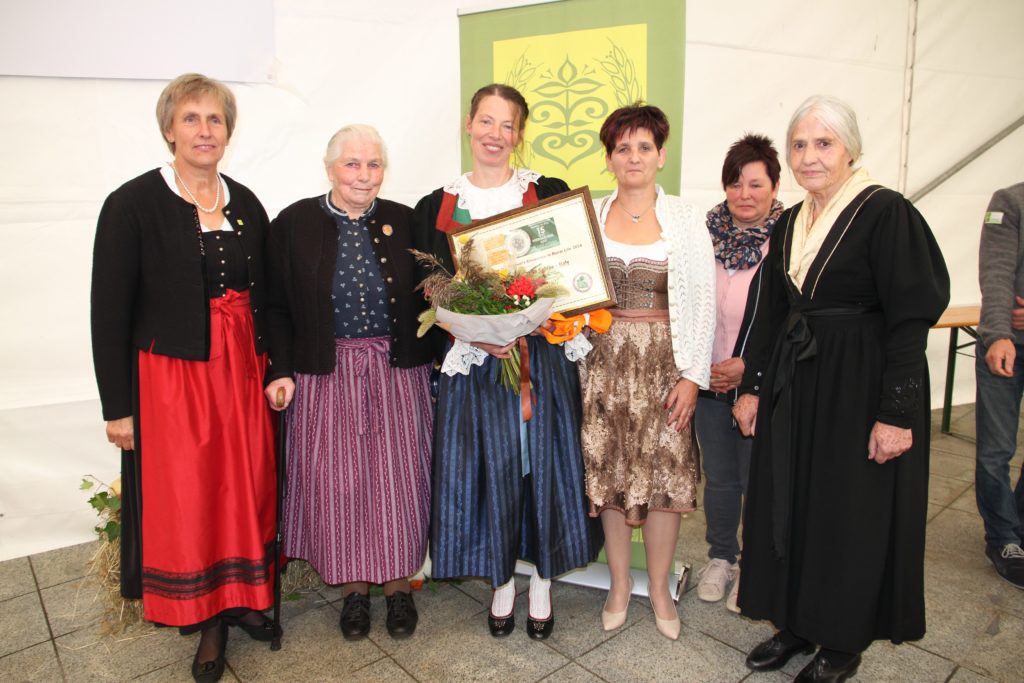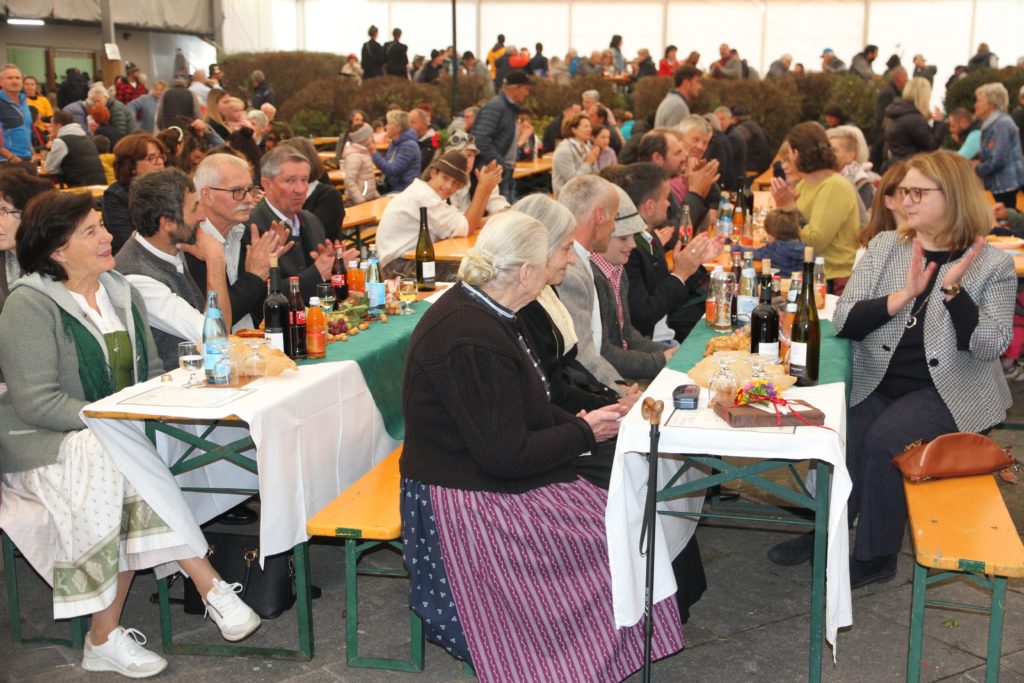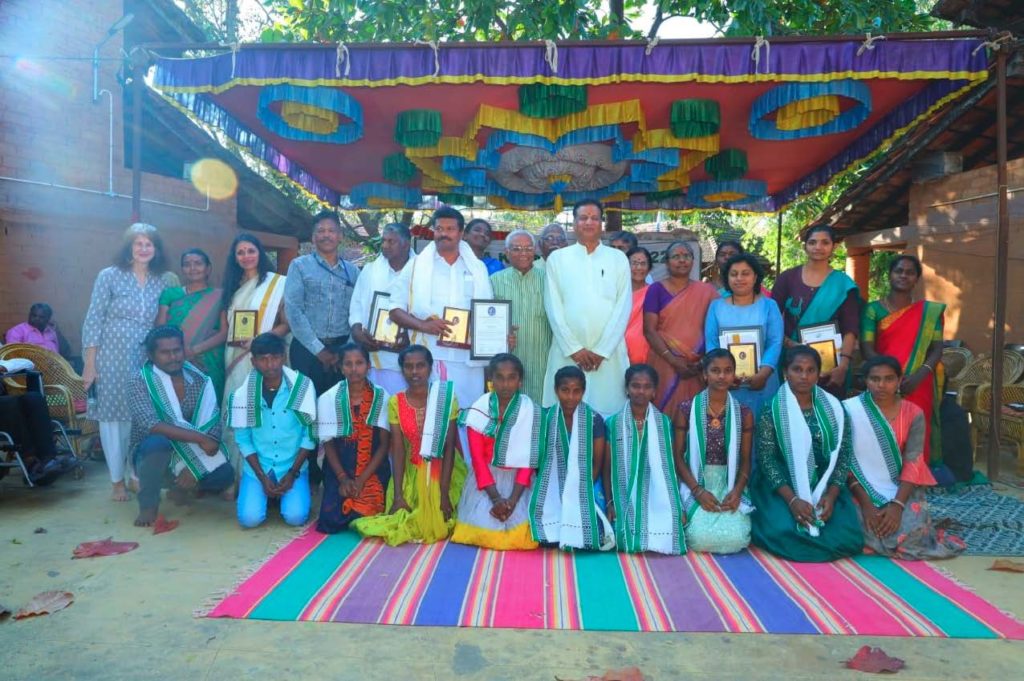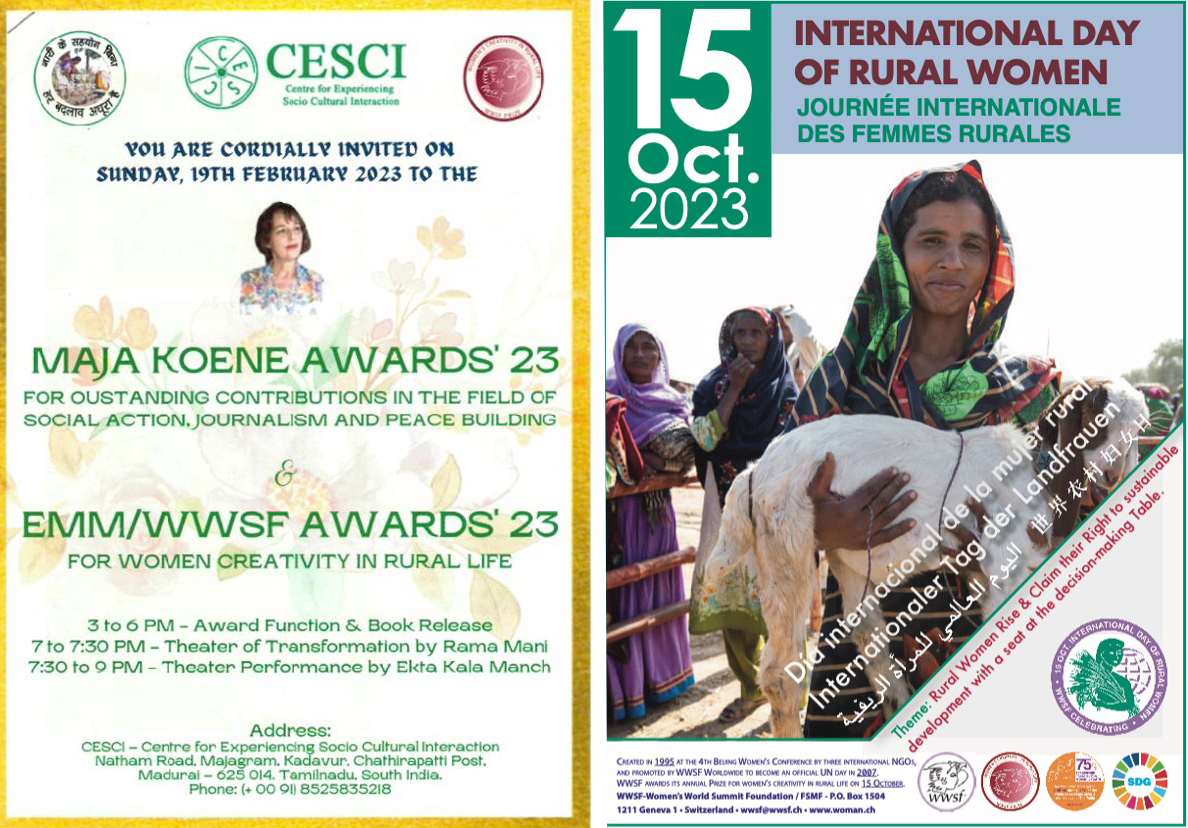WWSF Prize for Women’s Creativity in Rural Life 2024
Presentation: Meet the 6 WWSF Laureates 2024
Congratulations!
Introduction
 As you may know, the WWSF “Prize for Women’s Creativity in Rural Life” (created in 1994 by the WWSF – Women’s World Summit Foundation, based in Geneva, Switzerland), annually awards creative and courageous rural women leaders and groups that help to advance and improve the quality of life in rural communities. To date, 492 prizes have been awarded in over 140 countries to selected prizewinners, all presented on our website.
As you may know, the WWSF “Prize for Women’s Creativity in Rural Life” (created in 1994 by the WWSF – Women’s World Summit Foundation, based in Geneva, Switzerland), annually awards creative and courageous rural women leaders and groups that help to advance and improve the quality of life in rural communities. To date, 492 prizes have been awarded in over 140 countries to selected prizewinners, all presented on our website.
The WWSF award (US$ 1000 per laureate) represents our solidarity contribution for efforts and obstacles overcome and is not meant to be a project fund, although in many cases the prize money is re-invested in the laureates’ projects. To achieve the Sustainable Development Goals (SDGs) by 2030, rural women are key in delivering results with courage and compassion. They need our solidarity support as they face many challenges in today’s world deep in many crises.
WWSF expresses gratitude for all the nominations received in 2024 from which we selected the 6 WWSF finalists.
We express our gratitude to our sponsors who make our empowerment programs financially possible; and to our staff, consultants, and interns who serve in our secretariat.
Prize documents for your nominations 2025
- 2024 Press Release
- 2024 List of 492 Laureates who received the WWSF Prize for Women’s Creativity in Rural Life
- Selected Messages from Prizewinners
- Prize Jury members
- Link to poster “International Day of Rural Women – 15 Oct.”
- LINK TO REGISTER YOUR CANDIDATE(S) FOR 2025
List of the 6 Laureates in 2024
AFRICA
Cameroon – NGO MANG Epse NGUEN Lydiadine (54)
 MOBILIZATION FOR SUSTAINABLE DEVELOPMENT
MOBILIZATION FOR SUSTAINABLE DEVELOPMENT
Since several years now, this Women’s Association Network mobilizes its members for the empowerment and autonomy of rural women via income generated activities, mostly volunteer work. These activities allow them to maintain their women’s association while holding a job in administrative or private enterprises. The women organize, whenever they can, create workshops for the transformation of products stemming from cassava (Manioc). All the transformed products are up for sale and are appreciated by the large public that discovers their creativity and good work. The driving force behind this initiative is its President, NGUEN Lydiadine, receiving the 2024 “Prize for women’s creativity in rural life” in partnership with the RAFARBY Network members.
Cassava is a staple food for most of the Cameroonian population, with average annual consumption estimated at 63 kg/person, including 42 kg of fresh tubers and the remainder in processed products. Its cultivation mobilizes almost all agricultural assets, firstly for self-consumption, and secondly as a guaranteed source of income for rural households. Female labor is in great demand in all operations linked to its cultivation, particularly in the planting of cuttings, harvesting and processing.
WWSF wishes the Women’s Association Network lots of success in advancing and transforming their rural communities.
he following UN SDG targets are positively impacted by their creative community work.

October 15, 2024

H.E.M. Salomon EHETH, the new Permanent Representative of Cameroon to the United Nations Office at Genevasurrounded by some members of the Cameroonian community in Geneva.

The laureate, Ms. Lydiadine NGO MANG wife NGUEN, receives the “WWSF Prize for Women’s creativity in rural Life 2024” Certificate from H.E.M. Salomon EHETH, the new Permanent Representative of Cameroon to the United Nations Office at Geneva.
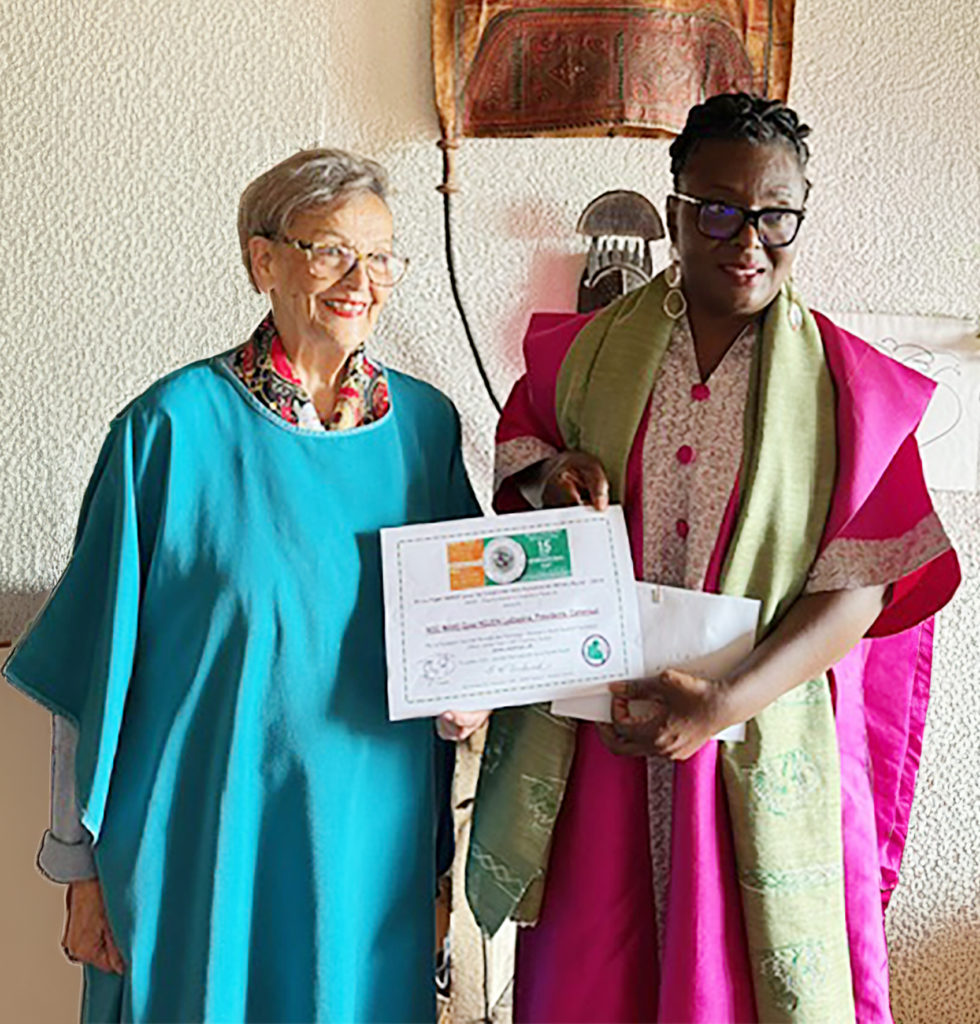
Congratulations to the Laureate NGO MANG Epse NGUEN Lydiadine from Cameroon who was in Geneva attending the UN Human Rights sessions and received on 15 Oct. – International Day of Rural Woman the Prize for Women’s Creativity in Rural Life from WWSF President, Maria Elfriede PRADERVAND. Good conversations and ideas for the future were exchanged and joy accompanied the event.
AMERICAS
Argentina – Gregoria LOPEZ (71)
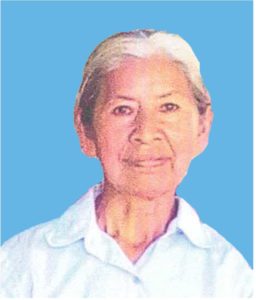 RESPECTING NATURE AND TRUSTING JUSTICE
RESPECTING NATURE AND TRUSTING JUSTICE
The community is made up of more than 50 families who have lived and continue to share a firm and peaceful struggle in defense of the land and the territory, fighting against the Seabord Corporation (ex Ingenio San Martin del Tbacal).
The hard experience has strengthened the organization of the community, based on convictions and values related to their indigenous identity of caring for mother earth and, at the same time, growing and improving their form of self-sustainability in respect and use of natural resources.
This is why, for more than twenty years, they have been able to defend the community’s possession, remaining in it, in the face of attacks by the company that spared no violence, always trusting in justice and in the dignity of living through community work, without falling into the humiliation of depending on bags of goods or handouts, which are a sign of the growing impoverishment of a large part of the Argentinean population. Everyone has been in this: men, women, the elderly, young people and children.
Gregoria LOPEZ role not only encompasses permanent work in her Aba Guarani community, but also selflessly involves other communities in the area, interacting with public and private institutions. In short, she is an example for new generations by generating and maintaining the spirit of community, beyond her individual role as a food producer, where she aways considers the environmental issues of the activities in the territory.
The following UN SDG targets are positively impacted by their creative community work.


ASIA
India – Sr. A. Femina DAS (45)
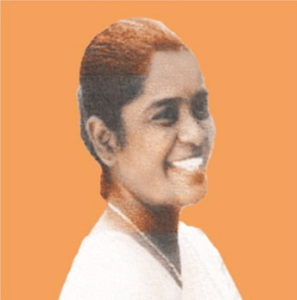 COMPASSION IS HER LEITMOTIV
COMPASSION IS HER LEITMOTIV
Sr. A. Femina Das belongs to a religious order. She works at the St. Amalarakkini Education Economic and Social Development Society in Tamil Nadu. Sister Femina Das coordinates the Dalit women in the villages, brings them out of their ignorance, superstition, and makes them to be aware of their potential.
She introduces income generative schemes such as vegetable cultivation, honeybee keeping, kitchen garden promotion and marketing in rural areas. She used to obtain loans from Banks for Women Self-help groups to make them financially sustainable.
She is also a social activist and stopped many child marriages and provides village people with awareness for the prevention of child marriages and safeguarding the health of girl children. She visits remote villages in and around the Tiruvannamakai district, meets the Dalit and Tribal women, and listens to their problems. She is a spark for the women who are marginalized in the society. From her early age she wanted to contribute something for the women folk. For this she qualified herself in her academic studies.
Sr. Femina Das has a high impact on village women and visually impaired girls. The girls are impressed by her motivation and lifestyle. Many Dalit and Tribal women are empowered socially, economically and culturally by her way of inclusion and service.
The following UN SDG targets are positively impacted by her creative community work.

Nepal – Women Acting Together for Change (WATCH)
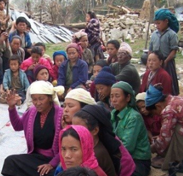 SUPPORTING AND PROMOTING RURAL WOMEN’S AND DISADVANTAGED PEOPLE’S HUMAN, LEGAL RIGHTS AND ACCESSING RESOURCES AND SERVICES
SUPPORTING AND PROMOTING RURAL WOMEN’S AND DISADVANTAGED PEOPLE’S HUMAN, LEGAL RIGHTS AND ACCESSING RESOURCES AND SERVICES
WATCH started activities in rural areas by organizing women, children and disadvantaged communities since 1991.
It was registered with the government in 1992 and helped create various national level networks and federations like FECOFUN (community forestry), NFIWUAN (Irrigation water users), (women users of natural resources), the Iron First / Awake Rural Women’s Organizations, and more.
It also organizes six weeks training for rural women’s groups and organizations to initiate and operate the organization in their areas. Later, it became six months of trainings. It has organized more than 1500 women’s groups, 400 or so children’s groups, several HIV+ women’s groups, groups of people with disabilities and leprosy, etc.
It also started a movement against low wages and long hours of work. It rescues bonded laborers and supports them to be independent.
In 1995, WATCH organized a national level public hearing to make the government, MPs, and Ambassadors to be aware of the problems faced by trafficked women, HIV+.
WATCH is there to support violated, abused and ostracized women and children. It not only organizes them for power and their rights, but it also helps them to lobby for advocacy accessing rights, resources and services.
WATCH activities cover several SDG goals like “No poverty, End Hunger, Ensure Healthy Lives, Achieve Gender Equality, Decent work & economic growth, climate action & ecosystems”, etc.

Nepal – Sana Kishan
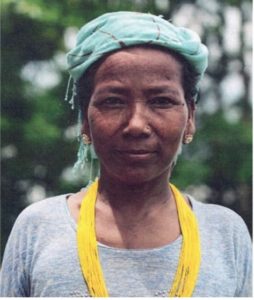
WOMEN FARMERS LOCALIZE FOOD SYSTEMS IN RURAL NEPAL USING THE POWER OF PGS
The Sana Kishan farmers create guidelines for organic food growing, hold each other accountable, provide sustainable income, learn from each other, and improve access to healthy foods. With the foods they produce, they can sell to the Kopila Valley School’s a daily healthy lunch program, the Valley Children’s Home, and other local customers.
Syani Chaudhary, Member & Sustainable Coordinator of Sana Kishan
“Yesterday I was just a mother of my children, but today I am a woman, mother & a farmer who supports my children’s education & health. I am a proud farmer”.
Small farmers, especially in isolated regions, face immense challenges. Market access is limited, and the demand for quality food, organic certification, and fair labor standards is growing. However, these demands can be overwhelming for farmers who are disconnected from global consumers.
They wanted to contribute to stable livelihoods for parents, and their programs needed a consistent source of healthy food, so they partnered with the PGS project – a Participatory Guarantee System – that addresses the challenges faced by localizing the food system farmers, the children they serve, & the broader community’s food access.
In collaboration with CEAPRED (Center for Environmental and Agricultural Policy Research, Extension & Development) and the local Karnali Province Ministry of Land Management, Agriculture & Cooperatives, the group began to educate and model organic practices.
This women-led initiative is challenging traditional gender norms & provides a model for non-traditional careers that have previously been closed to women, laying the groundwork for gender inclusivity & empowerment in rural Nepal. Their efforts are significantly advancing environmental conservation, climate resilience & social equity, establishing new benchmarks for sustainable development and leadership.
The following UN SDG targets are positively impacted by their creative community work.

Europe
Italy – Sabine Schrott Prenn (44)
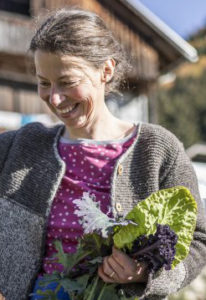
A PIONEER & ORGANIZER OF THE SEED FESTIVALES SINCE 2015 IN SOUTH TIROL. SHE CALLS ON POLITICIANS TO PROMOTE AND NOT HINDER THE CONSERVATION AND DISSEMINATION OF LOCAL SEEDS
Sabine Schrott runs a farm together with husband Franz and son Julian. She has always been fascinated by gardening from an early age and studied horticulture. Between 2004 & 2008, she worked at the technical college for fruit, wine and horticulture in Laimburg. There, during a course on old fruit varieties, she joined a small circle of committed seed propagators and became totally ‘infected’ with the subject. Her main motivation is to promote the Pustertal Valley* varieties and reactivate them. “They should become part of everyday culinary life again”. She is not interested in preserving for the sake of it. She wants to use the old varieties again and not just cultivate them as a hobby. This is the only way they have a future.
With almost 400 cultivated varieties, many of them old and rare, Sabine is one of the most committed guardians of diversity in South Tyrol. Her never-ending motivation in preserving the diversity makes Sabine a pioneer. Her commitment to preserving the diversity of varieties, the dissemination and the exchange of cultivated plants is very valuable for biodiversity, for the cultural landscape & the farming world in South Tyrol.
Sabine founded in 2021 “Bio-diversity Farms” a Südtirol Association (Artenvielfaltshöfe) because she wanted to provide a platform for biodiversity farms. In numerous discussions with political decision-makers, she repeatedly points out the need for a seed law that does not restrict the activities of local conservationists.
* The Pustertal Valley is one of the largest longitudinal valleys in the Alps that runs in an east-west direction between Lienz in East Tyrol, Austria) – To read more about Sabine Schrott: info@baeuerinnen.it www.baeuerinnen.it
The following UN SDG targets are positively impacted by her love and work for saving local seeds.

 |
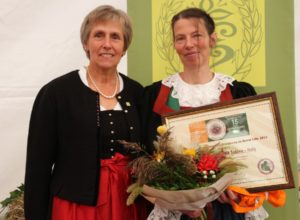 |
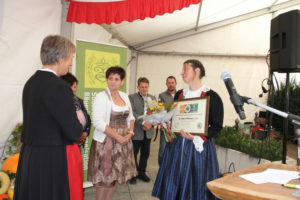 |
||
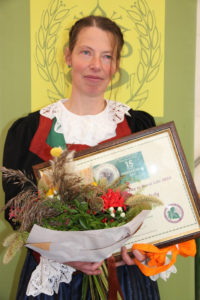 |
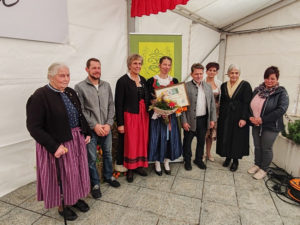 |
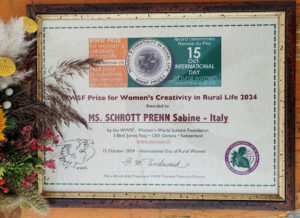 |
Images from the celebration of the presentation of the Prize for Women’s Creativity in Rural Life 2024 to Mrs. Sabine Schrott-Prenn – article link : https://issuu.com/pz-media/docs/pz21_24.10.2024
WWSF Rural Women’s Prize awarded Sabine Schrott 2024
List of the first 5 Laureates in 2023
AFRICA
Burkina Faso (now living in the USA) – MADJALIA SEYNOU (38)
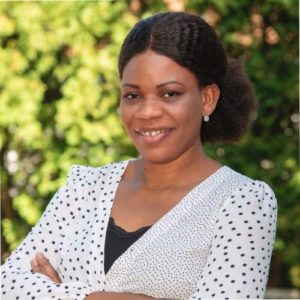 AN EXCEPTIONAL AND HIGHLY CREATIVE CONTRIBUTION TO ENDING RURAL POVERTY
AN EXCEPTIONAL AND HIGHLY CREATIVE CONTRIBUTION TO ENDING RURAL POVERTY
The activities of FARM SAHEL, the organization created by MADJALIA SEYNOU, originally from Burkina Faso, focus on the end goals of improving food security and soil fertility, with an emphasis on community based, participatory methods. The activities address climate change and promote regenerative farming practices in Burkina-Faso. It aims at giving women farmers the tools that will enable them to both feed their families and sell produce to generate income, thus enabling them to send their children to school, hence increasing access to quality education, especially for girls. Madjalia has created 10 cooperatives, worked with 31 communities and supported well over 1000 women in improving their farming and increasing their harvests by over 50%. Her work constitutes a tremendous contribution to ending rural poverty and empowering the poorest of the poor. Her contribution impacts the realization of various SDG
Her contribution impacts the realization of various SDG targets.


Ekwendeni, MALAWI – ESTHER LUPAFYA (65)
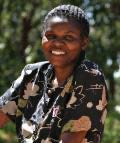 A RELENTLESS CRUSADER FOR THE POOREST OF THE POOR
A RELENTLESS CRUSADER FOR THE POOREST OF THE POOR
The achievements of Esther Lupafya are exceptional, and she has influenced in a very positive manner the lives of an estimated 20’000 poor farmers. She has helped them improve their farming techniques and hence boost soil productivity in an amazing manner, therefore greatly improving the production of food and the health of innumerable families. She has consistently supported greater gender equality in an extremely male dominated society.
A nurse by training, Esther was for many years head of the Maternal and Child Health unit at Ekwendeni hospital, a position that naturally enabled her to realize the importance of good nutrition on health, especially as many children were suffering from serious malnutrition. She is currently Executive Director of a non-profit she founded in 2017, the Soils, Food and Healthy Communities organization. (SFHC). It is run by a board of local farmers experienced in agroecological farming methods. This NGO has helped hundreds of villages representing thousands of rural households improve their food security, nutrition, sustainable land management and gender equality. One especially exciting project of SFHC has been the 3 establishment of a community seed bank so that families have access to a wide range of indigenous and local varieties of seeds to improve dietary diversity and nutrition. She helps families improve soil fertility via compost production and agroforestry.
Above all, Esther has been relentless in ensuring that her work remains focused on the most vulnerable households of Malawi. As a very large percentage of the poor rural women are illiterate, she found a highly original way of overcoming this obstacle by teaching the women health promoting songs. To summarize, Esther Lupafya is a truly exceptional individual who has demonstrated outstanding courage, creativity and perseverance in rural life while making a profound and lasting impact on her community.
Her contribution impacts the realization of various SDG targets.

NIGERIA – MABEL IFEOMA ONWUKA (50)
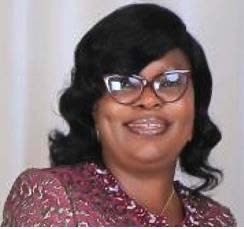 A PASSION FOR TEACHING NEW SKILLS TO RURAL WOMEN
A PASSION FOR TEACHING NEW SKILLS TO RURAL WOMEN
An Associate professor specialized in soil chemistry, University of Agriculture. UMUDIKE, Abia State, Ifeoma’s passion for adding value to humanity made her volunteer to enhance the lives of rural women farmers and girls by training them in using waste organic materials, compost and biochar (a soil condition) to improve soil nutrients and crop yields. She managed to translate complex research results into simple practical terms that made meaning to mostly women farmers. She of course spoke in the local Igbo language. She came up with a low-cost pyrolysis unit which she trained rural women to fabricate and use, not just for their farm but also for sale, to increase the very modest income of their families. To date, Mrs. Onwuka has never received any reward in recognition of her pioneering work.
She not only trains the farmers but evaluates the results of their progress in adopting novel technologies. Mrs. Onwuka is very passionate about empowering and building the capacity of rural women and girls. Apart from the technical training on improving their agricultural techniques, she has also helped build their capacity in leadership skills, their rights as women & other important social issues.
Her contribution impacts the realization of various SDG targets.

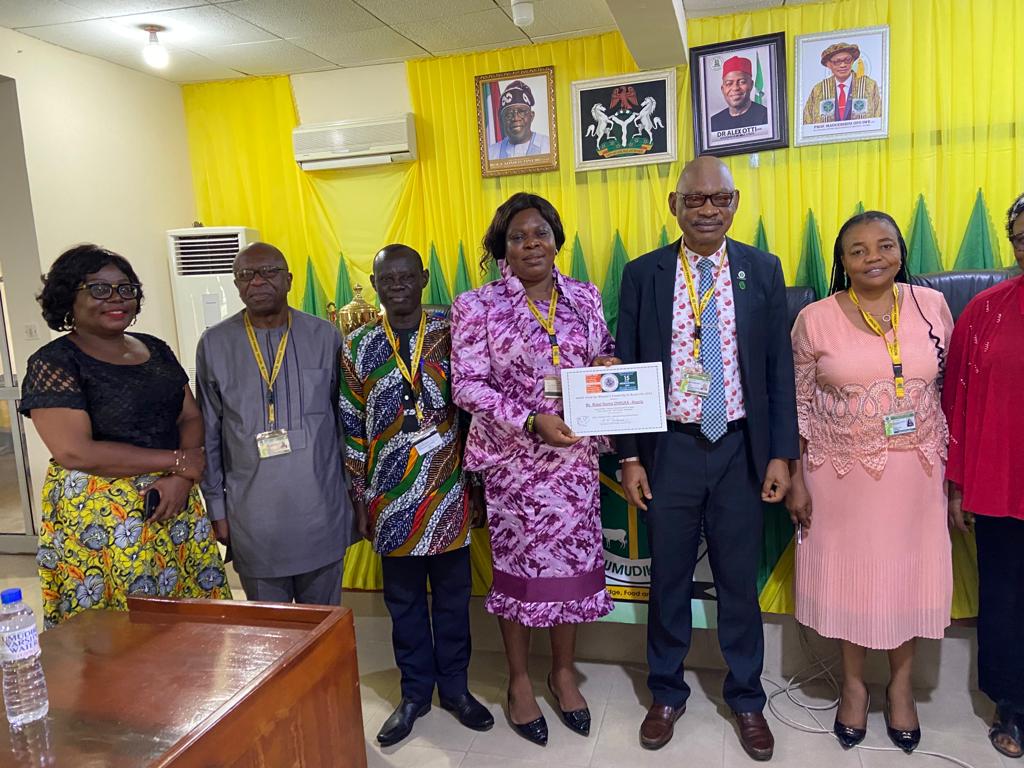
EUROPE
FRANCE – ANNE BOUCARD (54)
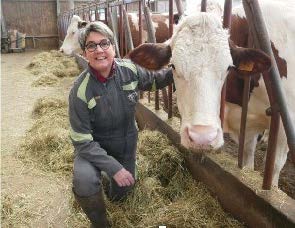 ENABLING THE GENERAL PUBLIC TO GET ACQUAINTED WITH AND BETTER UNDERSTAND THE ACTIVITY OF FARMERS.
ENABLING THE GENERAL PUBLIC TO GET ACQUAINTED WITH AND BETTER UNDERSTAND THE ACTIVITY OF FARMERS.
Anne Boucard has many times been acknowledged as an exceptional farmer, in great part because she managed to harness internet to promote the cause of farmers. At a time when the immense challenges of the rural sector are little known and “agribashing” a favorite practice in some circles, Anne Boucard has shown that a modern farmer is not a claustrophobic individual enclosed between his stables and his barns with a few fields forming the extent of his vision of the world, but can be a very active personality in their community.
Anne for instance played a key role in her community in the fight against cancer. She met her husband, François Boucard, a farmer in Bournois in the Doubs region of France. She impelled her husband to introduce improvements in the field of animal well-being with the introduction of automatic milking machines or soft technologies in the area of animal prophylaxis, introducing for instance essential oils or the practice of energy treatments (e.g., Reiki).
She has had major responsibilities in the field of agriculture, and because of her numerous commitments in this field she was nominated a Knight of Agricultural Merit in 2018. Her ethics can be summarized in two words: generosity, solidarity. She has really enabled the spirit of solidarity to prosper in the field of agriculture.
Health reasons have forced her very recently to interrupt her activity as a farmer, but her legacy in the field of social communication will survive for a long time.
Her contribution impacts the realization of various SDG targets.

THE AMERICAS
ARGENTINA – MARIA EVA SOTO, (59)
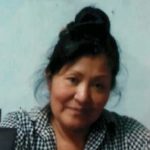 ENABLING THE GENERAL PUBLIC TO GET ACQUAINTED WITH AND BETTER UNDERSTAND THE ACTIVITY OF FARMERS.
ENABLING THE GENERAL PUBLIC TO GET ACQUAINTED WITH AND BETTER UNDERSTAND THE ACTIVITY OF FARMERS.
Born in a family of nine siblings, she had to fight to go to school (her parents fearing that schooling would make her loose her cultural identity), ending up with a degree in Guarani culture and linguistic revitalization. After the reform of the National Constitution 1994, the pre-existing indigenous organizations resumed their activities. Maria Eva was active in getting the women together. However, the continuous violation of indigenous 5 rights and the non-compliance of the laws protecting them decided Maria Eva to get involved in the struggle for their lands, which they had never been able to recover since … the Conquest centuries before!
With the support of ENDEPA, an institution accompanying the Guarani people, Maria became a leader in the recovering of the stolen lands. The state finally made the commitment to return 11’000 hectares.
Other fights in recovering land rights continued, and many other struggles were to follow, including the struggle for intercultural bilingual education which she undertook for many years with the collaboration of the young people.
Maria is also an active environmental defender, protector of the bush (KAA) and water. She participated in denouncing deforestation and the illegal logging of native forests and river pollution, a process in which she fearlessly confronted large companies. For her people the forests are not only sacred but also the source of precious medicinal plants. She is also active in encouraging the harvesting of rainwater and the installation of cisterns.
She collaborates actively with numerous women’s groups. Maria Eva is also considered a spiritual leader in her community. Her key values are love, respect and solidarity, the fundamental values of the Guarani people. Her greatest achievements might well be in the transmission of this knowledge and the Guarani language. Her main dream is that, together with her Guarani sisters, they will be able to stand on their own two feet and gain access to decent living conditions with the education of their young people.
Her contribution impacts the realization of various SDG targets.

List of 5 additional Laureates from India in 2023
WWSF collaborated in 2023 for the first time via a partnership Prize collaboration with the Jai Jaigat Movement and the CESCI organization (Center for Experiencing Socio Cultural Interaction) in Tamilnadu, India. Below you find the photos of the 5 additional prizewinners (holding their certicifates) at their Award Ceremony in Tamilnadu, India.
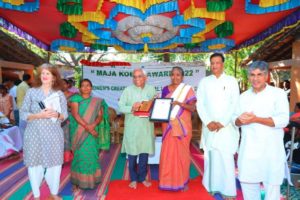
In this photo, you see Sivarani from Tamil Nadu receiving her WWSF – “Women’s Creativity in Rural Life Prize” (holding her certificate) Memento and cash prize. She is flanked by the President of CESCI, S.C. Behar and Gandhian leader, Rajneesh Kumar. The woman in the green sari on the left was the Co-Leader of Ekta Mahila March, Ms. Kasturi.
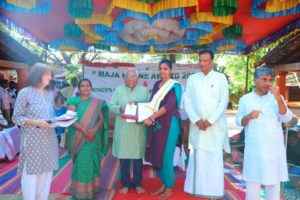 In this photo you see Ashitha Ash from Kerala, receiving her “Women’s Creativity in Rural Life Prize” in company with the same people whose names are given above.
In this photo you see Ashitha Ash from Kerala, receiving her “Women’s Creativity in Rural Life Prize” in company with the same people whose names are given above.
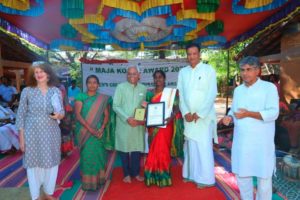 This is Lakshmi Unnikrishnan, an indigenous woman from Kerala receiving her “Women’s Creativity in Rural Life Prize”.
This is Lakshmi Unnikrishnan, an indigenous woman from Kerala receiving her “Women’s Creativity in Rural Life Prize”.
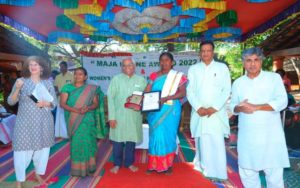 In this photo you will see Bhagyalakshmi, fromTamil Nadu, receiving her “Women’s Creativity in Rural Life Prize” with the same people whose names are given above.
In this photo you will see Bhagyalakshmi, fromTamil Nadu, receiving her “Women’s Creativity in Rural Life Prize” with the same people whose names are given above.
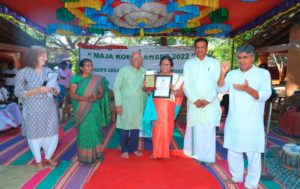 In this photo you will see Sucila Pandian, from Tamil Nādu, receiving her “Women’s Creativity in Rural Life Prize” with the same people whose names are given above.
In this photo you will see Sucila Pandian, from Tamil Nādu, receiving her “Women’s Creativity in Rural Life Prize” with the same people whose names are given above.
List of the 4 Laureates in 2022
SIERRA LEONE – RENNER Victoria (51)
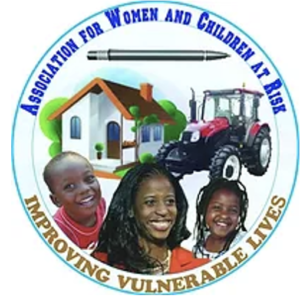 A RURAL LEADER WITH A HEART
A RURAL LEADER WITH A HEART
As founder and director of the Association for Women and Children at Risk (AWCR), a charity in Sierra Leone, created in 2015, that thrives for a society where women and children live a successful life free from fear, discrimination, intimidation, and poverty. Rural women are empowered with skills, information, sustainable livelihoods, opportunities to fulfill their potential and their capacity to make transformed choices with the aim to promote women’s leadership.
Victoria has coordinated agricultural activities with rural women, including war widows, survivors of gender-based violence, Ebola survivors and natural disasters such as flood- and mudslides survivors. She has empowered more than 300 survivors at different levels/stages of their journey. In addition, Victoria has worked with disadvantaged girls in creating safe spaces with both in and out of school, training early school leavers with skills like tie dye/batik, beat work and other training in agriculture. Projects focus on developing rural communities, especially with girls forced into early marriage/teenage mothers and marginalized women.
In her desire of contributing to making conducive learning spaces, she is an astute advocate for water supply, sanitation and hygiene facilities in schools through the commemorations of Menstrual Hygiene Day which her organization observes annually.
Her contribution helps to reach the implementation of the Sustainable Development Goals Agenda 2030: # 1, # 2, # 3, # 4, # 5, and # 6
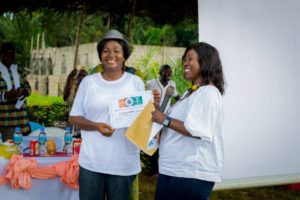
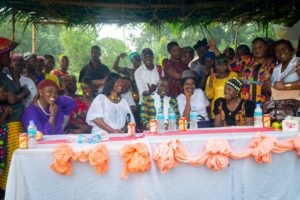
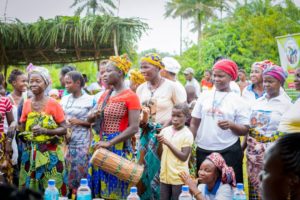
CAMEROON – ASSOCIATION WOMEN LEADERS of the Littoral
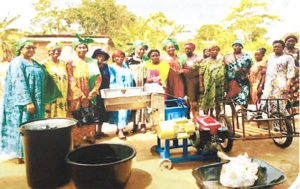 A MOVEMENT OF GREAT SOLIDARITY “MUATO PROJECT”
A MOVEMENT OF GREAT SOLIDARITY “MUATO PROJECT”
The association is an organization under Cameroonian law that works for the multi-faceted support of vulnerable women (victims of violence, out-of-school girls, girl-mothers, and internally displaced women) in the Littoral region.
While women make up half of the population, they receive a very small share of public investment and are disadvantaged by a range of socio-cultural, regulatory and institutional factors. Thus, it is not surprising that there is a gender differentiation in poverty and economic prosperity, and that women in general, and rural women are the most affected.
Their project is about reducing rural poverty and promote social inclusion, greater gender equity and sustainable development. The Association
works to:
- Popularize agricultural and modern breeding techniques (fish farming, rabbit and pig breeding, beekeeping, processing of tuber crops into flour) to increase the social well-being of populations in rural communes of BONALEA and DIBOMBARI
- Supervise and guarantee the monitoring and evaluation of these enterprises
- Strengthen the economic fabric of most rural communes (bring the female populations to a mechanized agropastoral standard, and reduce the drudgery of work)
- Train women and men and traditional authorities on family law with national texts for the protection of women and the family, ending gender-based violence and its harmful effects on women and children
- Facilitate the marketing of their products in the space and commercial networking of F2L algorithms
- Establish a small business incubator in the department.
Their contributions help reach the Sustainable Development Goals, especially Goal # 1, # 2, # 3, #4, # 5, # 8, #15
NIGERIA – OTU ROBERT Rita (42)
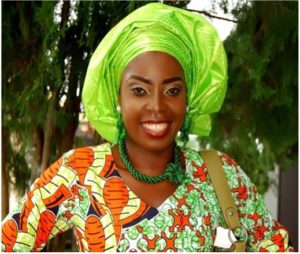 A VISIONARY FEMINIST FOR RURAL COMMUNITIES
A VISIONARY FEMINIST FOR RURAL COMMUNITIES
Rita is an international award-winning agriculturalist, environmentalist and a feminist. Her roots run deep. In the face of tragedy and difficulty she has consistently displayed inspiring resilience, strength, and courage. She grew up in a fifth-generation farming family where her dad was the exporter of cocoa, palm oil and palm kernel in Akwa Ibom State, Nigeria. This was where she realized her connection with agrobusiness and her rekindled interest in agriculture. She took her experience and knowledge gained at home and she headed for the University of Calabar Nigeria where she graduated with a B.A. in Agricultural Economics/Extension, which later lead to a permanent position with the National Association of Agricultural Students as the Vice President of the Faculty, where she focused her research on Economics and Agriculture.
After gaining her master’s degree in the UK, she returned to Nigeria and founded Beau Haven Farms, a profit-making organization with the goal of helping to end hunger and poverty in Nigeria. Beau Haven Farms grow corn, cucumbers, cassava, pepper, plantain, cocoyam and vegetables. The goals of the farm are to:
- Educate consumers about how their food is grown
- Create innovative educational materials for teachers and students
- Provide mentoring opportunities, and
- Provide leadership opportunities for the Girls Farmers Club (GFC).
Her wish is to help build a social movement of more than 10 million Agro activists for Africa.
Under her leadership, “# SHE’s Empowered through agriculture”, a local initiative by the PEAS Foundation in 2013, Rita empowers and upgrades livelihoods of rural women and girls in her community. The project has enabled 50’000 women especially widows to build their financial, technical, and entrepreneurial skills and provided them with the self-confidence they need to start their own commercial cassava farms in the Akwa Ibom State.
As a farm girl, Rita understands the need to promote and create awareness of the agricultural industry to engage with future generations. Using her creativity and passion for agriculture, Rita celebrates Nigerian agriculture through unique photos of women farmers and hopes that by telling positive stories she will start important conversations around food and fiber production.
Rita’s contribution helps reach the Sustainable Development Goals, especially Goal # 1, # 2, # 3, #4, # 5, # 8, #15
PAKISTAN – PETER Christina (54)
 A PRECIOUS ENERGY FOR HUMANITY
A PRECIOUS ENERGY FOR HUMANITY
Christina started her NGO named AWARD (Association for Women’s Awareness and Rural Development) with a dream of making women aware of their rights and changing the economic situation of poor rural women.
During the last 27 years, through her organization AWARD and under 5 thematic areas, she has been able to open 130 vocational training schools in 130 villages of Punjab and KPK to train 7’000 young school dropout girls. She also initiated a small micro credit program and a small business grants program for nearly 4’500 women and 1’300 young people to open small businesses, respectively.
Christina has also helped 2’000 rural children to get to schools and continue their education. Through several interventions, she has been able to sensitize 45’000 women and men on women’s rights, on women protection laws and effects of early age marriages. Moreover, to alleviate the gender inequality from the society and community members, numerous human rights workshops were conducted in the rural areas with rural communities, especially with male members to bring vivid change in rigid mindsets.
Furthermore, she served thousands of affected, vulnerable and deserving people during the earthquake 2005, the flood 2010, and COVID-19 with food and non-food items and shelter. Under her leadership, all these programs have created a great impact in the lives of the communities especially for rural women.
AWARD also cares for the preservation of the environment and planted 722’656 trees in various districts of the province Punjab and Khyber Pakhtunkhaw, following the vision to stop deforestation, including 7 million fruit and non-fruit trees in the earthquake affected areas of the District Mansehra in 2005; 12’000 trees in flood affected areas of the District Muzzafargarh in 2021; and the rest of the trees were planted in the Districts of Faisalabad and Toba Tek Singh.
With AWARD, Christina is contributing to the achievement of the Sustainable Development Goals Agenda, especially the targets # 1, #2, # 3, # 4, # 5, # 10, #13, #15, #16
List of the 10 Laureates in 2021
BURKINA FASO – BALBONE Salimata (43 years old)
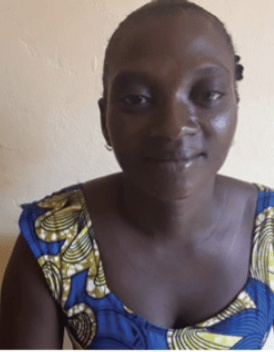 EXCEPTIONAL COURAGE AND PERSEVERANCE
EXCEPTIONAL COURAGE AND PERSEVERANCE
Originally from Tenkodogo, Boulgou province, mother of two, continued her studies after her primary school at the CEG of PAMA/Burkina Faso until the third grade.
Salimata is a fighter, a woman who travels great distances in the bush under very difficult climatic conditions on her motorcycle (torrential rains, dust, heat, crossing of rivers, slippery tracks) to get to schools. Through her multiple interventions, she manages to be accepted and appreciated by the educational community. They become her partners with whom she can build in the long term because the goal of her interventions is to bring about lasting behavioral changes. It is in the field that she has been trained in the themes of hygiene and health in rural life:
For AVORB (an association of widows and orphans in the Bittou region) on the themes of hygiene and sanitation, prenatal health, child health, food, and child nutrition (fight against malnutrition), preparation of different enriched porridges, education of the young girl, family planning, sexually transmitted infections, and AIDS, excision, stepping stones for couples’ journey, malaria tuberculosis, drugs, prostitution, and bird flu.
For the health district of Bittou as ASBC (a Community Based Health Agent) for hygiene and sanitation in food and nutrition for the small child, sexually transmitted diseases and AIDS, prenatal health, and child health.
In January 2017, she was hired by FASODEV durable, the partner association of Graine de Baobab, as a school trainer where she currently works with 15 priority schools. She has accompanied 31 additional schools that have all benefited from her interventions and are able to continue what she has transmitted.
During school breaks, she works with the agro-ecological project by accompanying projects for women: financial education, market gardening, food processing, soap making, etc.

![]()
![]()
![]()
![]()
![]()
![]()
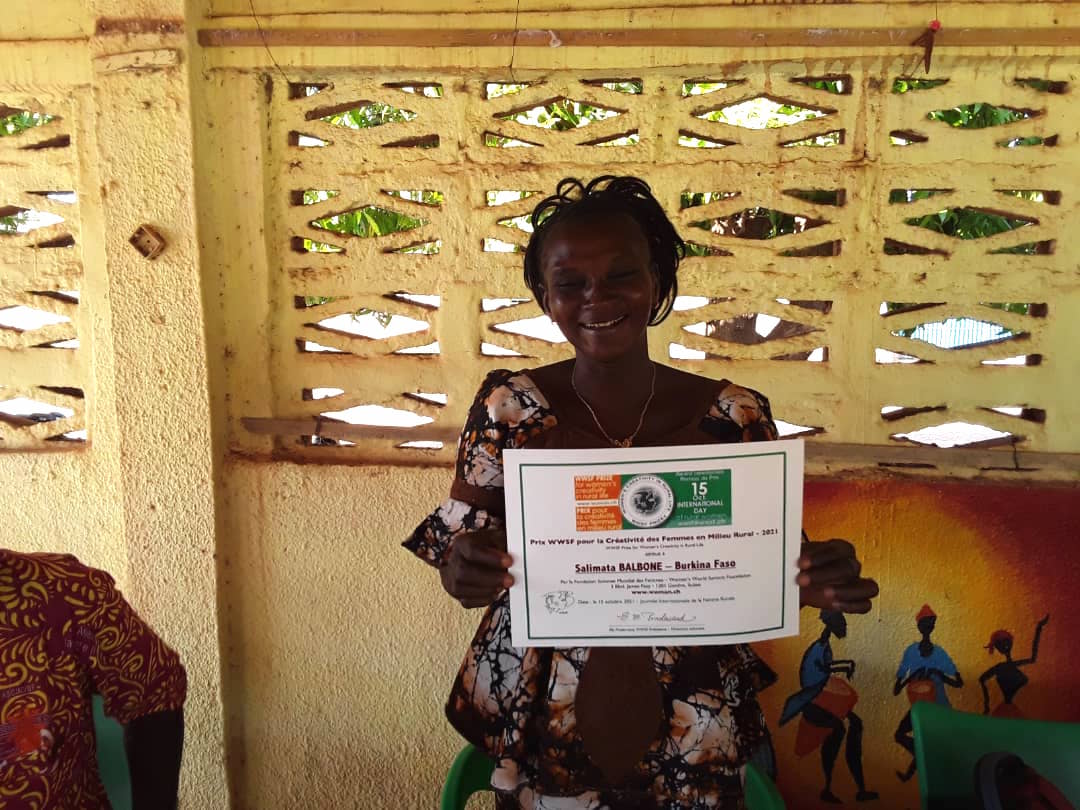

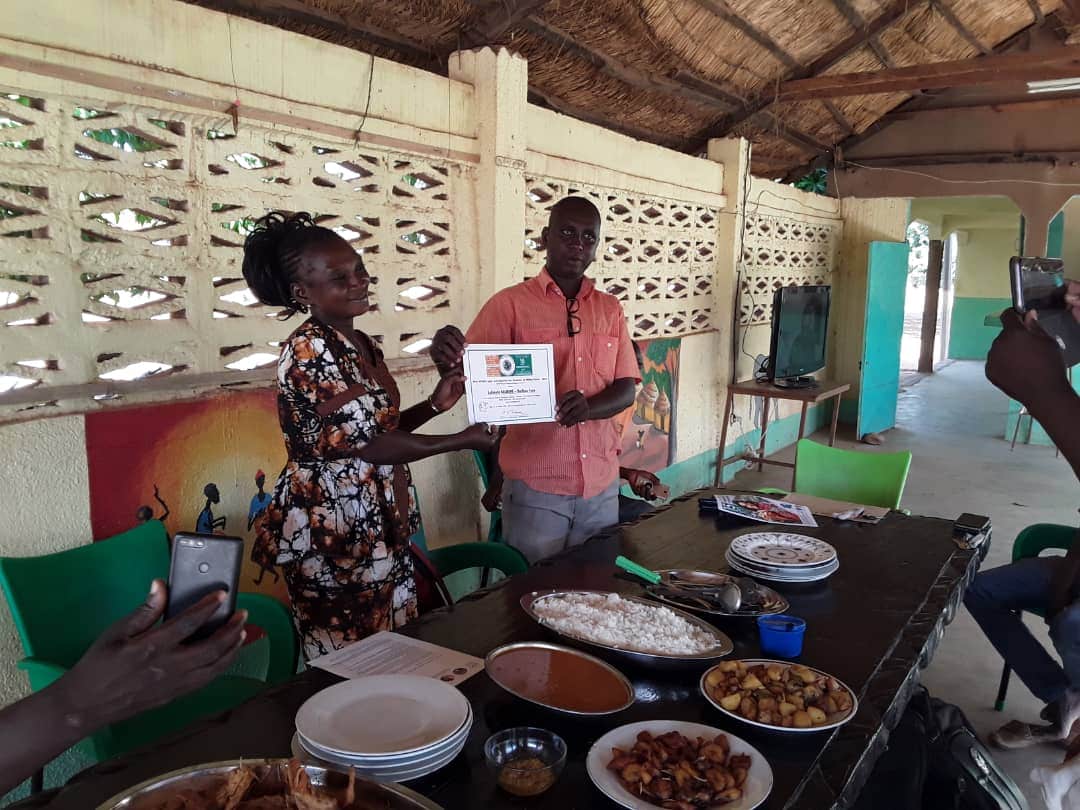
KENYA – KIDULAH Phillipine (40 years old)
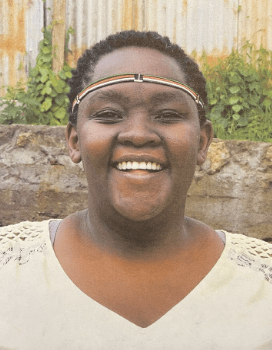 LIFTING WOMEN & GIRLS OUT OF POVERTY & ILLITERACY
LIFTING WOMEN & GIRLS OUT OF POVERTY & ILLITERACY
While studying for her Master’s degree in the United States, Philippine Chepkoech Kidulah (Pini) was elaborating her plans to go back home to West Pokot County in Kenya and start her non-governmental organization to help girls and women face their many challenges, including poverty, and the growing threat of climate change consequences. In 2012, with the name (Jitokeze Wamama Wagrika) and logo (a butterfly) in her hands, she set up to tackle the tasks she has assigned herself.
Among her goals were the reduction of genital female mutilations and forced early marriages, as well as women’s economic empowerment.
She developed a Farmers’ Empowerment Program and a Girls’ Empowerment Program and encouraged women and girls to join self-help groups. It was not an easy journey, as Philippine met resistance from local leaders, tribal chiefs, and elders, and her life was threatened twice.
Unfazed, and inspired by an upbringing valuing courage, determination, and purposefulness, she persisted and managed to become a respected figure in her community.
Having first-hand experience in her childhood of poverty, marginalization, and discrimination with the dual challenge of being a woman, and belonging to a minority tribe, Pini engaged in many women empowerment projects, training young women in the community, providing them with skills such as sewing, running a sewing business, tending and harvesting vegetables, and to become literate.

![]()
![]()
![]()
![]()
![]()
MOZAMBIQUE – BAPTISTA Eulalia Fernando (60 years old)
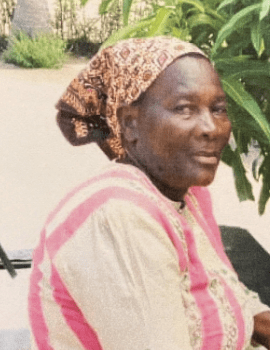 A FISH TRADER WITH INTEGRITY AND PASSION
A FISH TRADER WITH INTEGRITY AND PASSION
With the country’s independence from Portuguese rule, Mrs. Baptista took adult education and concluded 6th grade. Since her young age, she has grown to understand the need to work to support herself and her family. After many years of marriage, she became a widow in 1986. With little education, artisanal fishing has been the obvious livelihood activity in her poor coastal hometown. She currently owns a small fish selling business in the Inhassoro district, Inhambane province, where she is the single provider of her household composed of 8 people, mostly children aged 6-18 among them grandsons and granddaughters.
Having witnessed declines in the fish catch in her community, Baptista started to promote social cohesion among her fellow fishers, fish processors, and fish traders by mobilizing them to join fisheries associations and management units. She became the founding member of the Fisheries Community Council (CCP) of Fequete in 2011, an organization that is legally recognized and tasked with small-scale fisheries co-management in support of the local government.
Given her passion and dedication to sustainable fishing, in 2013 she was chosen to represent the fish traders of the entire Inhambane Province in a seminar conducted by the UN Food and Agriculture Organization (FAO) in Mozambique to collect information for the elaboration of Guidelines to ensure sustainable and responsible small-scale fisheries. Her dedication to the community has led her to be elected Deputy Secretary of the CCP, one of the most active CCPs in Mozambique with 248 active members.
Baptista is a strong advocate of sustainable fishing and transparent and informed decision-making. To attest to this, she has volunteered to be one of the 30 pioneers using the digital registration through the OurFish app introduced by the NGO Rare-Mozambique. Learn more: https://www.youtube.com/watch?v=Zo9vzCoovdI

![]()
![]()
![]()
![]()
![]()
COLOMBIA – Movimiento de Mujeres por la Vida (4 years old)
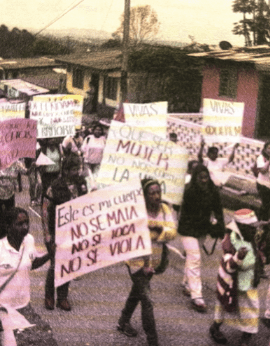 A CUSTODIAN FOR PEACE, LAND, AND SEEDS
A CUSTODIAN FOR PEACE, LAND, AND SEEDS
The formation of the Movement Cajibio, MOMUVIC, took place in June 2017, when a national and international Caravan of solidarity with women victims of violence was organized. This process to defend rights, denounce violence, and demand decent living conditions for rural women and their families are strengthened from the dialogue and reunions of peasants, indigenous and afro-descendant women producers, community mothers, leaders of community centers, seed caregivers, and young people; located in 23 rural communities and one urban center.
Among its objectives are to recognize the contributions that women have made to family and community life and to society; claim that women have organized to seek a life in justice and equality. It has a coordination team of delegates from the communities participating in the process and has a support team for organizational, training, dialogue, and political advocacy.
To achieve its objectives, the MoMuViC has three mandates:
1. We declare ourselves women for a life free of violence
2. We declare ourselves Women Builders of peace
3. We declare ourselves Defenders and builders of the territory.
Difficulties overcome: Seven years ago, the first people interested in installing coca crops (cocaine) in town, arrived. They bought land and co-opted workers from the same communities. Today, they have expanded in such a way that they are a threat to the food sovereignty of traditional crops such as coffee, sugar cane, bananas, and vegetables.
This means that almost all the products must be bought for the subsistence of the families, and therefore total control of community life by the armed actors, with direct effects on women. Despite all the above, the MoMuViC continues to work to improve the living conditions of rural communities.

![]()
![]()
![]()
![]()
![]()
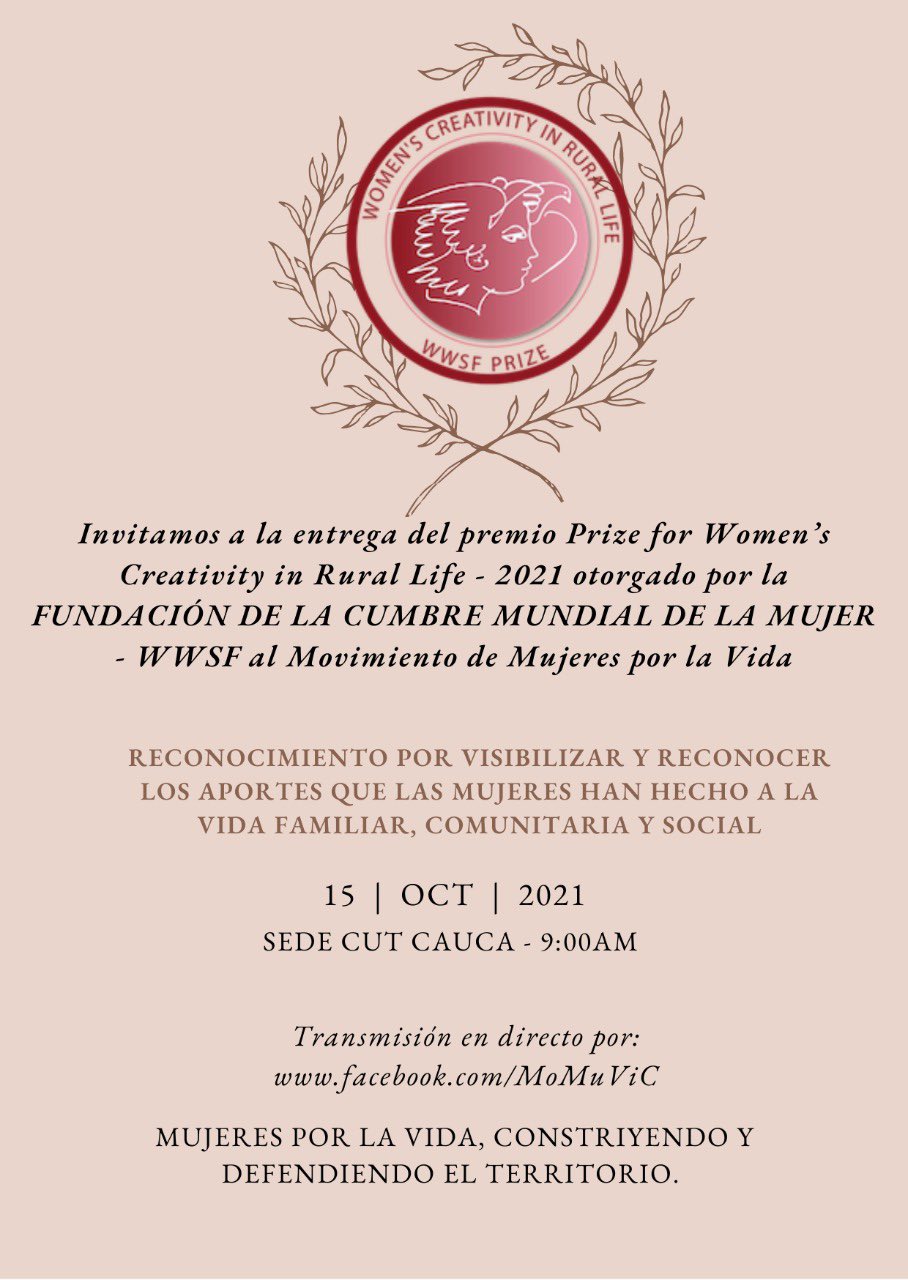
“Dear WWSF, it is a great pleasure for us to inform you that today we will be united with you celebrated the INTERNATIONAL DAY OF RURAL WOMEN where we will be delivering the award given by you to both MARILEN SERNA SALINAS and the MOVIMIENTO DE MUJERES POR LA LIFE. We will have the opportunity to have the greetings of leaders at the national level and the personalities of the territorial entities such as mayors and governments of Cauca. It will be broadcast live on Facebook, so we would like to know what the procedure is for it to be disclosed by the WWSF. Again, thank you very much for this recognition that has been very well received throughout the country by many social and women’s organizations.”
Sincerely, Sonia Carolina Rodríguez
COLOMBIA – SERNA SALINAS Marylèn (55 years old)

SPEAKING OUT FOR PEASANTS, INDIGENOUS GROUPS & WOMEN
The last decades of Colombian history have been particularly harsh for small peasants and indigenous communities, between land grabbing, systematic deforestation, displacements, conflicts, persecutions, and multinational companies’ voracity. Marylèn Serna Salinas has been advocating for peasants’ and women’s rights since she was in her early 20s. A great convener, her social and political commitment was instrumental in the establishment of several human rights-focused community organizations.
Ms. Serna Salinas, a native of the Cauca department, was born in a peasant community and part of a family of community leaders. She has been dedicating her life to defending and reclaiming the land, defending women’s rights, denouncing the murder of peasant leaders, and human rights defenders.
As early as the 1990s, in collaboration with other peasants, she started a movement of the peasantry in the region. A victim of death threats with her family in the early 2000s, she had to flee to safety and continue her advocacy work from the city.
Designated as a public spokesperson for diverse social movements, such as the Minga of Social and Community resistance, she also is part of the National Steering Committee of the National Council of peace, reconciliation, and coexistence, and a frequent speaker in international fora.

![]()
![]()
![]()
![]()
![]()

“Dear WWSF, it is a great pleasure for us to inform you that today we will be united with you celebrated the INTERNATIONAL DAY OF RURAL WOMEN where we will be delivering the award given by you to both MARILEN SERNA SALINAS and the MOVIMIENTO DE MUJERES POR LA LIFE. We will have the opportunity to have the greetings of leaders at the national level and the personalities of the territorial entities such as mayors and governments of Cauca. It will be broadcast live on Facebook, so we would like to know what the procedure is for it to be disclosed by the WWSF. Again, thank you very much for this recognition that has been very well received throughout the country by many social and women’s organizations.”
Sincerely, Sonia Carolina Rodríguez
COLOMBIA – AMAYA MACIAS Maria Cristina (54 years old)
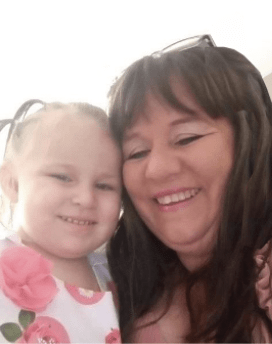 AN EXAMPLE OF HUMILITY, HUMANITY, AND SOLIDARITY
AN EXAMPLE OF HUMILITY, HUMANITY, AND SOLIDARITY
A woman of peasant roots, born in the San Andrés district of Tello, department of Huila in Colombia. After finishing high school, she joined the ranks of the FARC-EP (Revolutionary armed forces of Colombia – EP) until September 2016 when the peace agreement was signed. She then rejoined civil life, doing work with rural communities, especially in areas where there was an armed conflict, she started to work with peasant women, victims of the armed conflict, women in the process of reincorporation, girls, boys, youth, and single mothers rebuilding the social fabric in the territory.
Once the Peace process was signed, Maria Cristina went again to the Department of Huila in search of her family roots and while there she joined with 63 reincorporated persons and formed, in 2018, the Cooperative of solidarity economy COOAGROPAZ in the Municipality of Neiva – Huila. Currently, 836 people are part of it as partners, including reincorporated persons, peasants, victims of armed conflict, and mothers who head households in the Department of Huila, Cundinamarca, and southern Tolima.
Maria Cristina serves as President of the Cooperative and has been working with the communities, especially with women on the land. In addition, Maria Cristina has formed the women’s committee in the Cooperative with 52 women and has been managing projects such as:
— The project of laying hens, in the Santa Lucia district, Municipality of Neiva-Huila.
— The project with the Mayor’s Office of Meiva – 5 kitchen gardens, a project carried out with women from Piedra Marcada Township, Municipality Neiva-Huila.
— The fish farming project for reincorporated persons with the cooperation of the European Fund and the Mondragón Cooperative of Spain.
— Supporting the efforts carried out by five colleagues from the women’s committee of the Cooperative in the project called bamboo shoots with the NGO LAS NANAS, presented to the Embassy of Japan for the construction of a Rehabilitation Center for people injured in the Armed Conflict…
— Supporting the peasant market of FUNDAUTRAHUILCA for two and a half years.
We can say Maria Cristina works to help the community to be more successful and does everything by acting with humility. She values the potential of people and connects with them through her charismatic leadership.

![]()
![]()
![]()
![]()
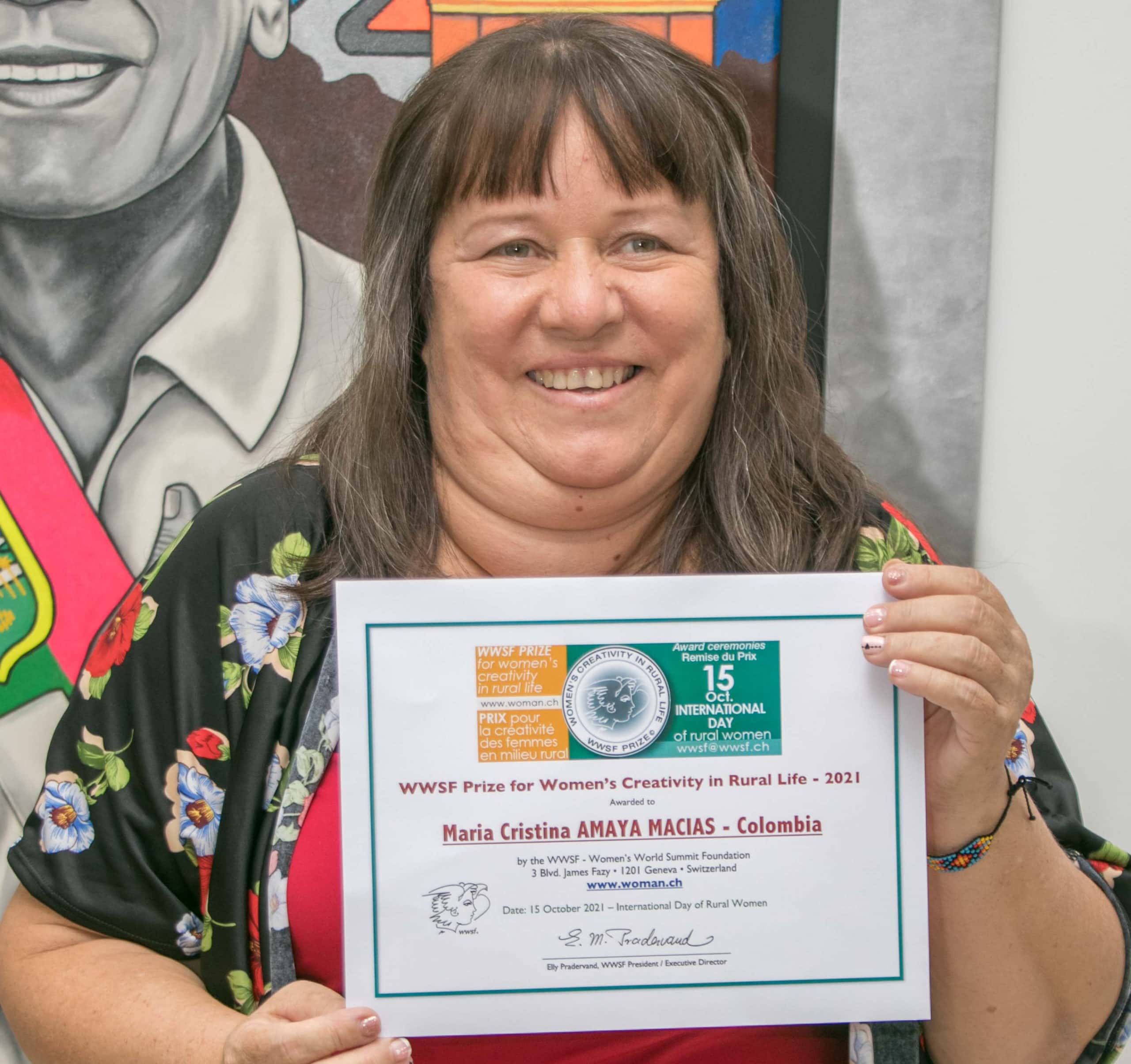
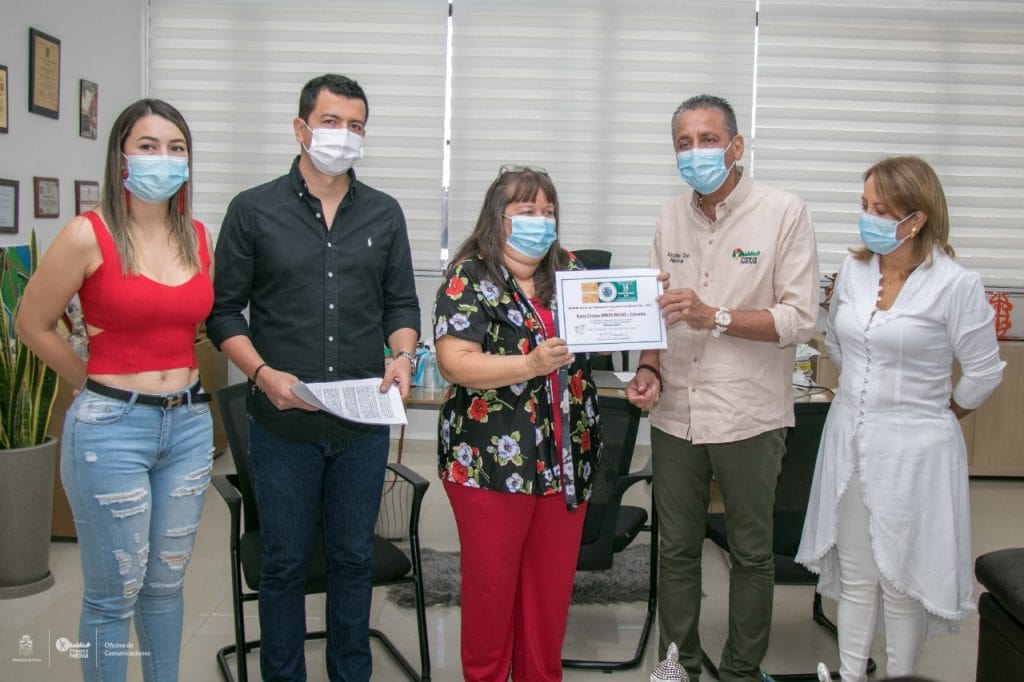
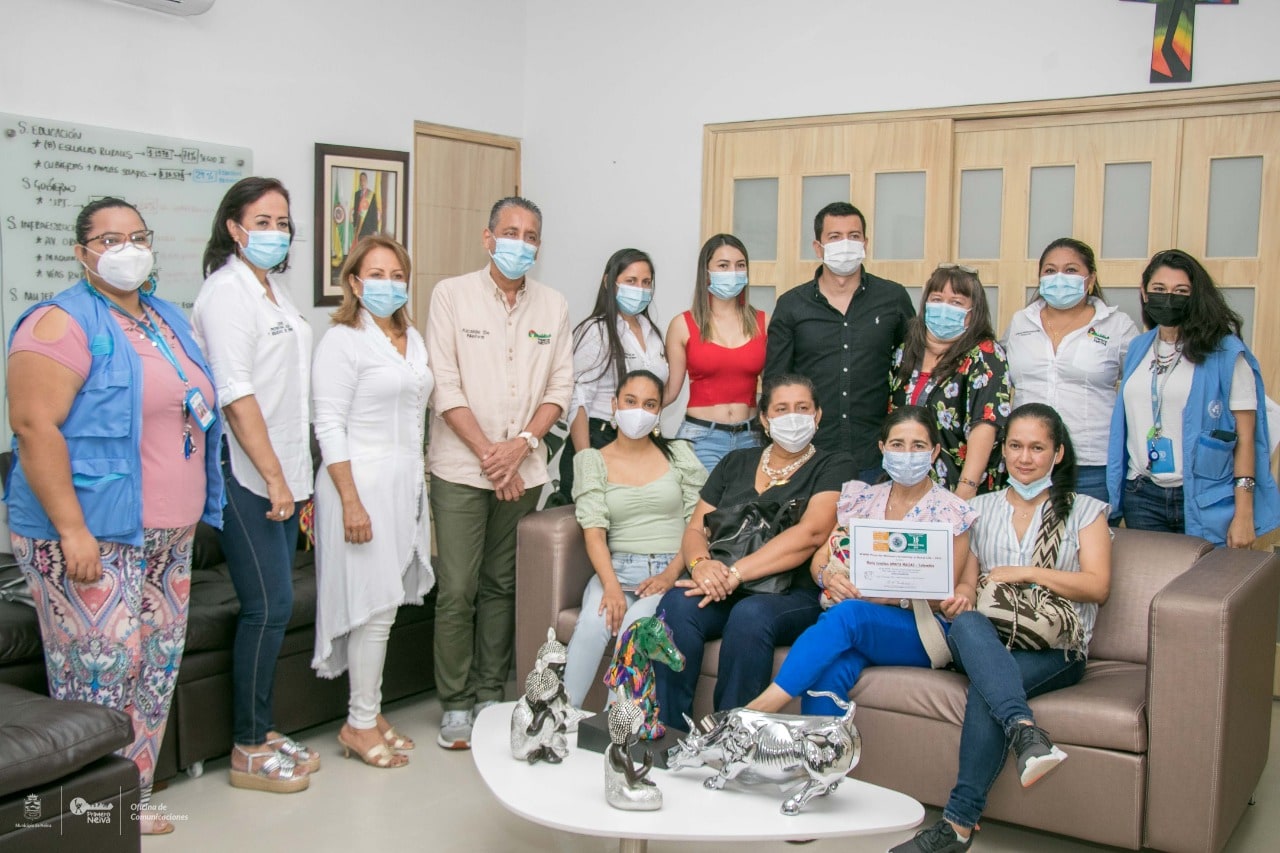

“I would like to express how happy and thankful I feel having won this prestigious award. I would like to thank you for your support and for the opportunity to keep working and thriving for my community. On behalf of my community and myself, thank you.” AMAYA MACIAS Maria Cristina, 2021 WWSF Prizewinner
GALAPAGOS, ECUADOR – CORDOVA Ximena (55 years old)
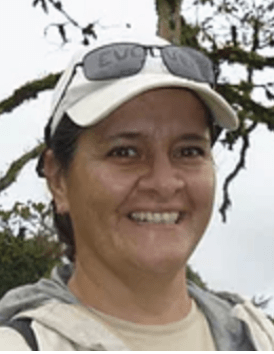 GENDER & ENVIRONMENTAL JUSTICE THROUGH GIRLS’ EDUCATION
GENDER & ENVIRONMENTAL JUSTICE THROUGH GIRLS’ EDUCATION
The picture-perfect pristine waters, long sandy beaches, and exotic wildlife of the Galapagos Islands hide a much darker reality: the prevalence of gender-based violence due to systemic gender inequalities.
Ximena Cordova, a resident of Isabela Island, personally experienced the endemic issue as she struggled for years at the hands of a violent husband, a fate shared by more than half the women on the islands. Out of that ordeal came a strong desire to help the women in the Galapagos Islands. At the same time, the young woman who was trained in visual arts and graphic design started working for the Charles Darwin Research Station, further becoming a naturalist guide for the Galapagos National Park Services.
Through this experience, she realized that the urgent need to protect the fragile ecosystem of the island. She created the Emma Darwin Foundation, “created by women, for women, and for the planet”. The foundation, named after Charles Darwin’s wife in recognition of her role in her husband’s research and writing, seeks to empower girls through education.
The association also provided a meeting place for women for exploring their creative potential, as well as awareness-raising events for children to learn about native plants and animals.

![]()
![]()
![]()
![]()
![]()
HONDURAS – NORALES RAMIREZ Martha (24 years old)
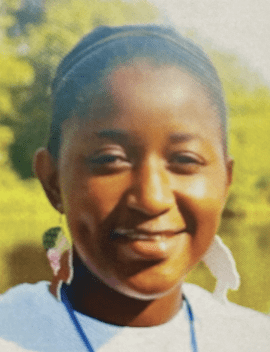 ENCOURAGES BANKS OF HOPE FOR GARIFUNA WOMEN
ENCOURAGES BANKS OF HOPE FOR GARIFUNA WOMEN
It took guts and a lot of determination for Martha Norales Ramirez to leave her Garifuna community, a Honduran ethnic group of mixed African and indigenous heritage in Iriona to go study in the city, and remain focused on her goal despite discrimination, sexism, and financial distress. She came out victorious, with what had been an unattainable goal for generations of women before her, a college degree.
After her study in natural resource management and environment, she came back to Iriona intending to empower her community and protecting natural resources. The young woman immediately set to work and fostered the creation of saving clubs for Garifuna women. Six groups are now active with 150 members.
The saving clubs give access to financial services such as small loans and provide a safety net for communities in times of shock or crisis, such as the Covid-19, financing education and health costs.
The saving clubs act as banks where rules are set by the community, the interests are shared, and allow women «to set dates for their dreams and projects.»
Coordinator of the municipality’s environmental unit, she also leads and supports initiatives to protect Iriona’s natural resources, including its marine ecosystems, mangroves, and forests, participating in projects such as the creation of Honduras’ first-ever community-led marine protected area.

![]()
![]()
![]()
![]()
![]()
INDIA – Sr JESSY Maria BS (50 years old)
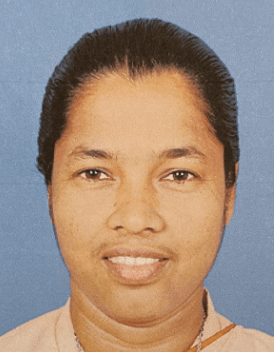 DEDICATED TO RURAL PEOPLE, THEIR LAND, THEIR YOUTH
DEDICATED TO RURAL PEOPLE, THEIR LAND, THEIR YOUTH
It was along the way to school, the three kilometers she walked each day from her small village in Mangalore and back, that Sister Maria Jessy developed a love for rural life, its people, and the environment. Ever since she joined the Bethany Sisters at age 15, she dedicated her life to helping the disadvantaged, like educating the street children in the slums of Delhi, or working to improve the lives of rural people in Jharkhand.
In Maluka, Jharkhand, the forest was being cut down to make firewood. Sister Maria Jessy established a program “Social Forestry” that won support from the government, and through awareness-raising and skills development programs, led to the replacement of hundreds of trees and the development of an entire forest economy independent on firewood.
She also engaged in water management, in Badibahal Sambalput and piloted a project to collect rainwater for irrigation through a pond system.
Appalled by the unscrupulous and criminal human trafficking of rural people, she established the Damruhat Project, sparing no efforts, selflessly facing danger, and tirelessly advocating. After 6 years her work in the 112 villages of Damruhat has pushed back the efforts of traffickers, and drastically curbed the trafficking. The program provides young people with training and income generation programs to make it possible for them to remain in their village and earn a living.

![]()
![]()
![]()
![]()
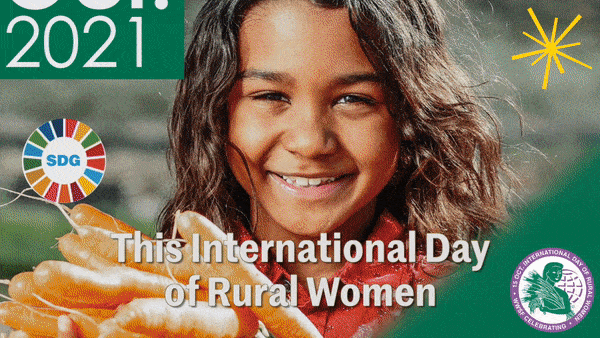
NEPAL – ROKA MAGAR Dil Kumari (51 years old)
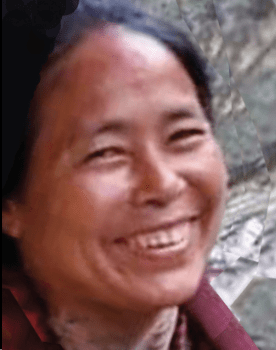 FROM MAOIST FIGHTER TO WOMEN’S CHAMPION
FROM MAOIST FIGHTER TO WOMEN’S CHAMPION
Dil Kumari Roka Magar was a young woman when the Nepalese civil war broke out in 1996. At that time, after marrying at 17, she was the mother of three small children and living in the remote village of Khumil, in Rolpa. Her husband became an active combatant, soon wanted by the Nepalese security forces.
After he went underground, his family, back in the village, was submitted to psycho-social and physical abuse. Forced to flee in 2004, Dil had to leave her three children with her husband’s parents. She later took up arms and joined the Maoists.
When the Comprehensive Peace Accord was signed in 2006, Dil settled in Tinau, Palpa, and focused on a way to sustain her family. She turned to agricultural activities, in particular mushroom production. She also was determined to improve the condition of women, with a strong conviction that financial independence was one of their ways to freedom.
She started commercial mushroom farming and vegetable gardening as a means to achieve social change and formed women’s groups, cooperatives, and production groups. The women have become economically independent and can support their families. Relentless, Dil also turned her attention to community forest and resource management and mobilized rural women to take charge and leadership of community forestry.
She is a strong advocate of raising the role of women in society as the basis of the achievement of the United Nations Sustainable Development Goals.

![]()
![]()
![]()
![]()
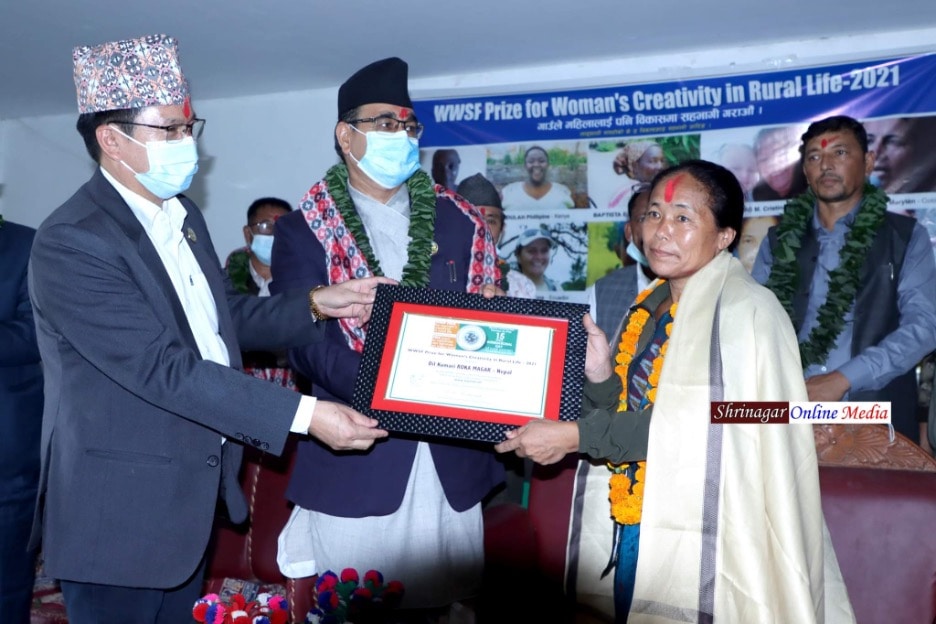
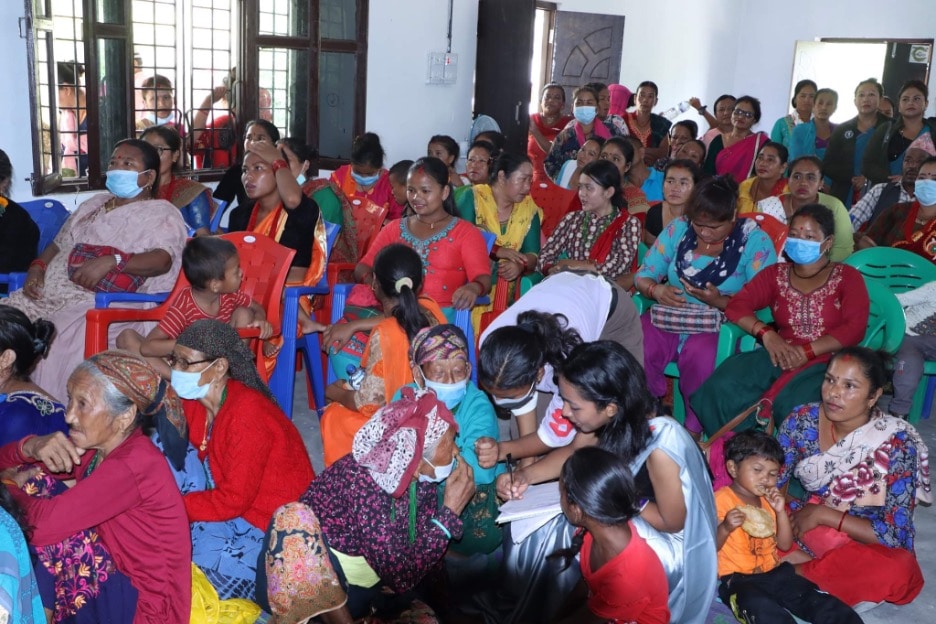
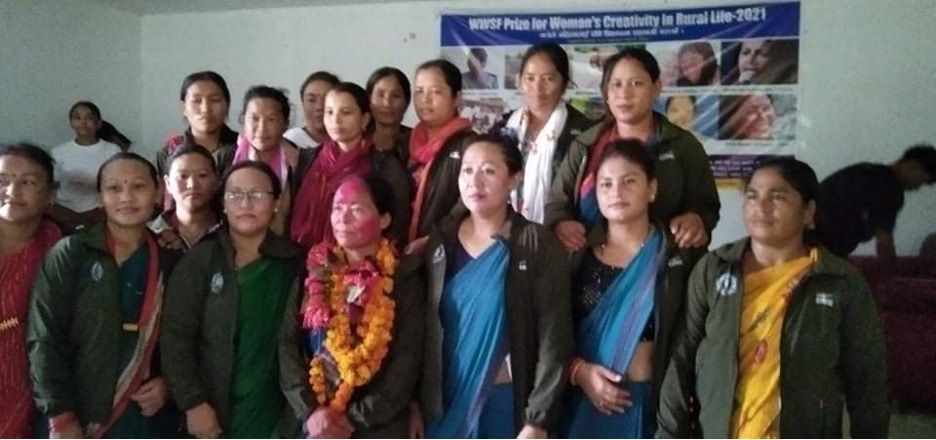
Presentation of the laureate, Dil Kumari, at the ceremony :
Dil Kumari Roka Magar was selected as one of the ten laureates for the 2021 WWSF Prize for Women’s Creativity in Rural Life. She was nominated by WATCH (Women Acting Together for Change), Nepal. Being Oct. 15th (Rural Women’s Day) the big festival day in Nepal her felicitation program was held on 10th October 2021 at Dovan, Tinau Village Municipality of Palpa District. The program was organized by Community Forestry Coordination Committee (CFCC) with the Chairmanship of its President, the Chief Guest the Chief Minister, and the Special Guest the Speaker of the House, of Representatives of province 5, Several members of Parliament, President and Vice President of Tinau Village Municipality and members of local bodies, Director and Deputy Director of WATCH, social workers, members of women’s groups, journalists and many other guests.
Women from different groups joined the program for celebration from Tinau Community Forestry Coordination Committee, Tinau Small Farmer Agriculture Cooperative, Tinau Organic Mushroom Production, Team, Community Forestry Women’s Groups, and other villagers came together to felicitate her.
A short biography was presented by one of the speakers. She received a certificate of WWSF Prize for Women’s Creativity in Rural Life-2021 from the Chief Minister and the Speaker of the House of the Lumbini Province, also a certificate of appreciation and token of love from Dovan Agriculture Multiple Financial Limited and other organizations of the Tinau.
In her thanking the speech “She announced to help more women by establishing a Foundation from the Prize. She also pledged 10% of the profit from her mushroom farming” to the Foundation. Her main aim is to the uplift lifestyle of rural women who are dependent on their families by teaching them skills and knowledge she knows. She has a goal to add up more rural women entrepreneurs. She is very happy to be selected for an international prize which she never expected. It has added more energy, enthusiasm, and dedication in her work”
Mr. Kul Prasad K.C, the Chief Minister of the Lumbini Province congratulated Dil Kumari for her selection for working in rural areas for sustainable development and empowerment for women. He encouraged all the women to be active, dedicated, and hardworking like Dil Kumari. It is a proud moment to be rewarded with an international award which will definitely boost up their potential and energy.
One of the group members of the Tinau Organic Mushroom Production Group delivered a speech on behalf of all the women presented, She explained that Dil Kumari’s success can be taken as a motivating, encouraging for rural women entrepreneurs who are struggling. Many women have been inspired by this and discussed their plans and idea about entrepreneurship in their groups.
She has been selected as a courageous, leading creative, and woman entrepreneur. She exemplifies, “A simple rural woman’s struggle to bag international-level award is the huge success in my life which will definitely be impactful and inspirational to all the women. It has added enthusiasm to my business and lifestyle. Hard work and dedication can make you successful. It has also evaluated hard work and struggle.”
Presentation of the 10 Laureates in 2020
CAMEROON – BOUBA Aeisatu (30 years old)
WHEN A RUNAWAY CHILD BECOMES AN ACCLAIMED AND RESPECTED LEADER
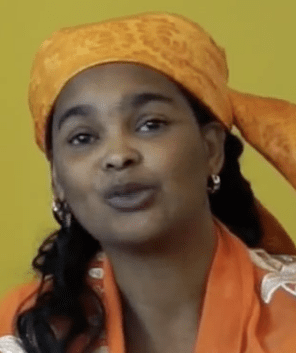
Bouba Aeisatu has had a both rare and challenging career. She is a member of the native Mbororo group, an indigenous pastoralist minority from the predominantly English-speaking North-West region of Cameroon. When she reached 12 years, her family wanted to withdraw her from school so as to marry a man much older than her. She resisted, escaped, and later had to face a great deal of marginalization and discrimination from her community.
Despite constant family pressures, she managed to obtain a university degree. Many young women in her community (as in most parts of the continent) are forced into early marriage with all the ensuing health, social, psychological, and other trauma, not to mention great gender violence in couples. So she created the “Forum des Femmes Autochtones du Cameroun” (FFAC – link to the website: https://ffacameroon.org/) to help these women – the vast majority of whom stem from rural areas – to free themselves from the iron-fisted grip of patriarchal customs and also to educate them in basic environmental issues, help the women improve their agricultural skills for food security and finally to train women to take leadership positions in the decision-making bodies in the administrative and political areas. So far over 1200 indigenous pastoralist girls have been rescued from forced marriages and now continue their education. And in the highly traditional Adamania region, over 6000 indigenous rural women have been sensitized on the importance of participating in the electoral process, and 15 of their 20 candidates were elected on local councils.
A well-earned prize!
Her work contributes to achieving the UN Sustainable Development Goals-Agenda 2030

Images of her Award Ceremony on 15 October 2020 in Cameroon.
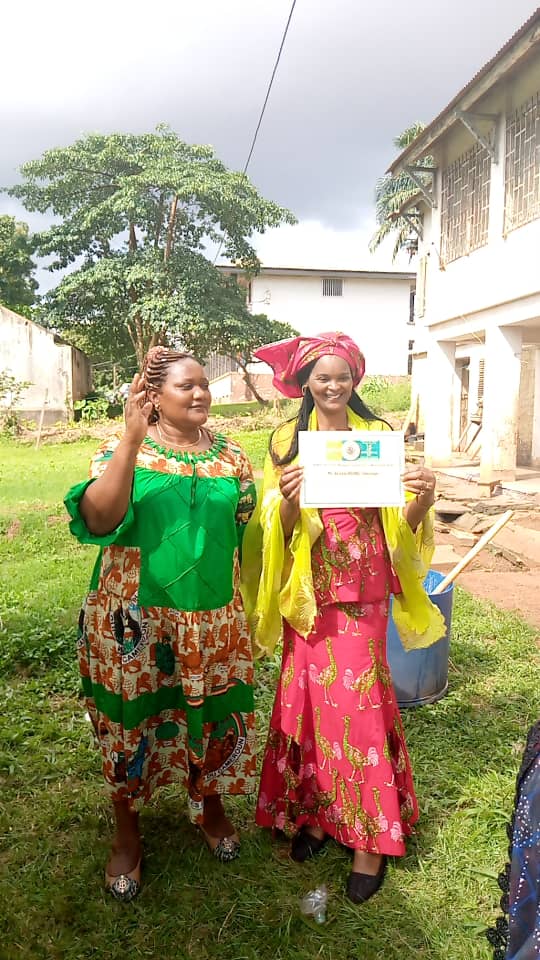
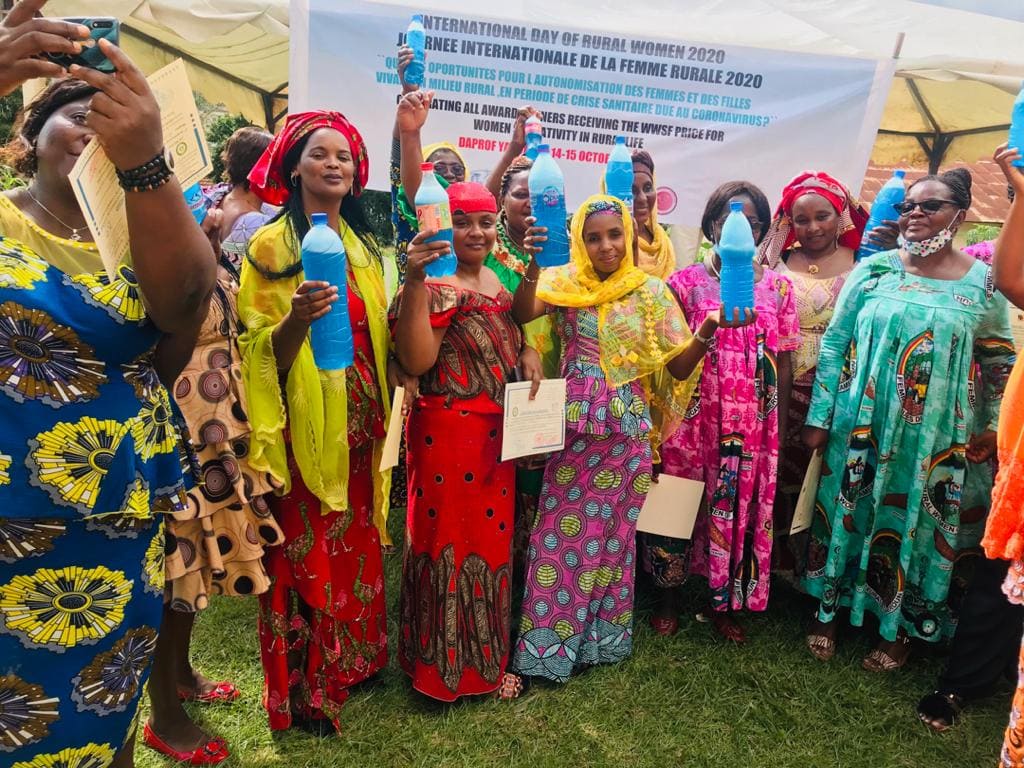
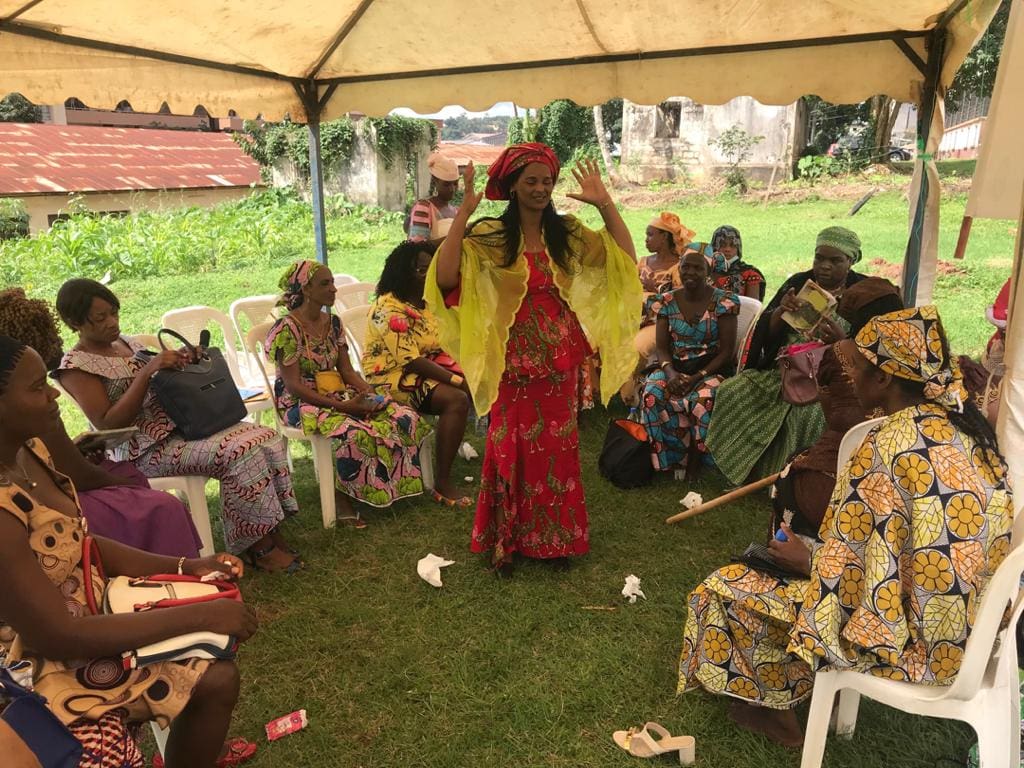
NIGERIA – Dr. AHMED-AMSHI Mairo (60 years old)
A POWERFUL ADVOCATE OF WOMEN’S RIGHTS
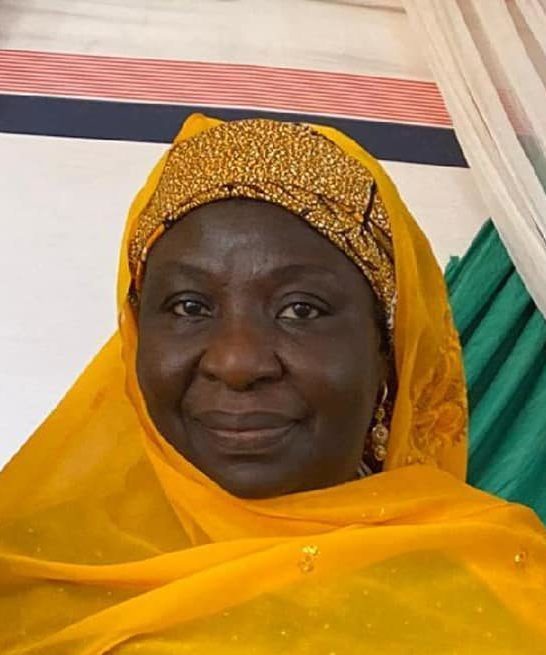
Dr. Ahmed-Amshi is the Commissioner for Agriculture of Yobe State in N. Nigeria. She has a Ph.D. in plant physiology and production. She has been nominated due to her extensive contribution via various gender-inclusive actions. As part of her activities, she established the Yobe State Youth and Women’s Agricultural Employment Program. She has played a special role to get the central importance of Fulani woman pastoralists in the field of nutrition and health accepted. All across the Sahel region, the Fulanis enable small children to have access to the vital milk products necessary for their growth.
In a male-dominated culture and tradition, implemented under the directives of the Islamic religious doctrine, Dr. Mairo needed to be truly creative to enable women in rural areas to progress in terms of their rights. She has also played a key role in enabling women and youth to access soft loans. In her action, she is guided by the UN SDGoals 1 to 5 and is passionate about achieving results by 2030. She is also a role model for the rural women and girls of N-E Nigeria where girl-child education is still being threatened by patriarchal attitudes inherited from the past.
Link to her Facebook profile: https://www.facebook.com/Hon.Dr.mairoahmadamshi/
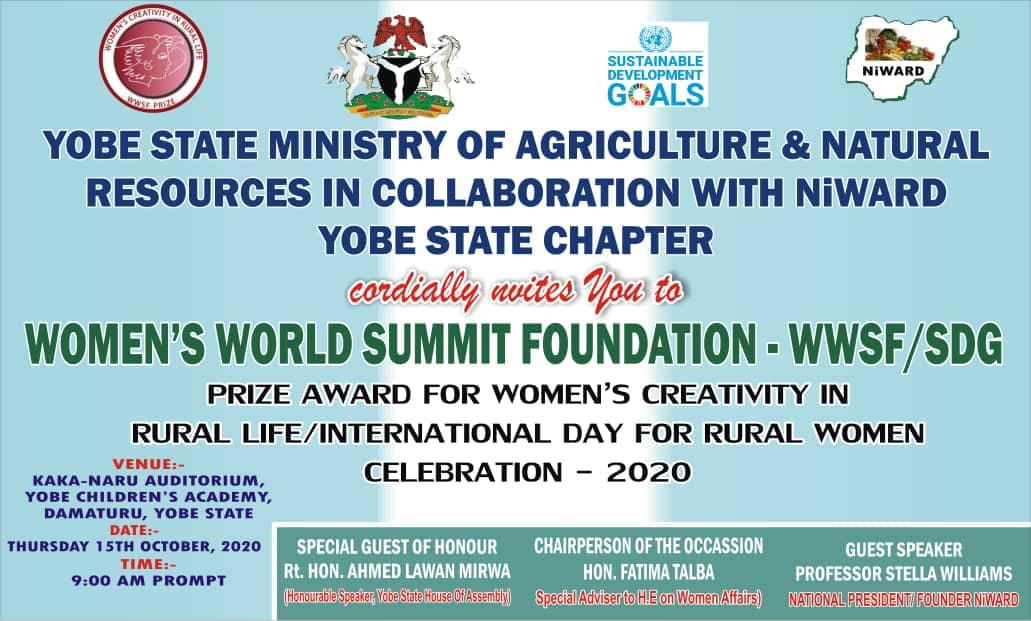
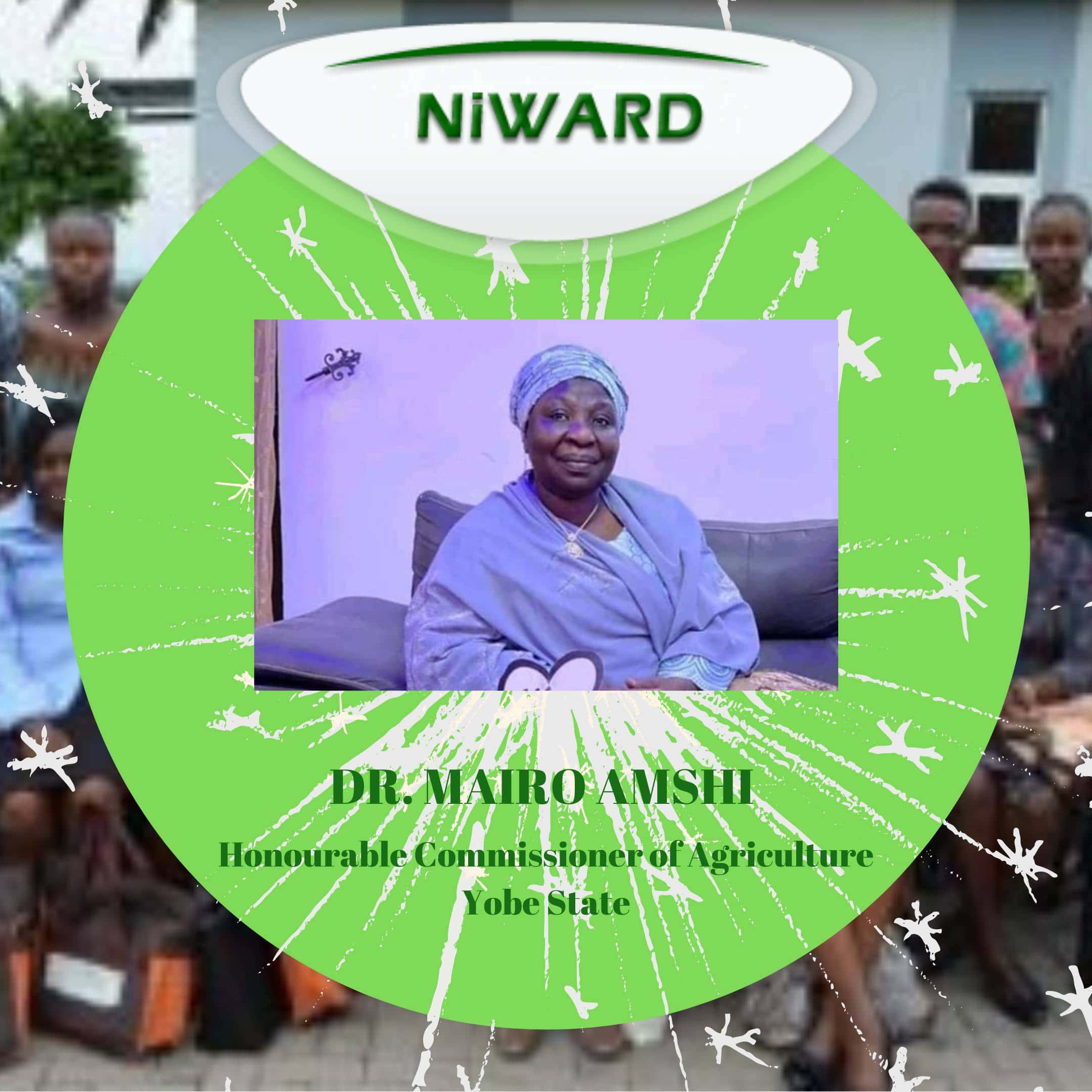
Her work contributes to achieving the UN Sustainable Development Goals-Agenda 2030

MEXICO – ARRIOLA SANCHEZ Jeannette Maitee (43 years old)
A RARE CREATIVITY IN ENABLING THE MOST REJECTED TO BECOME RESPECTED
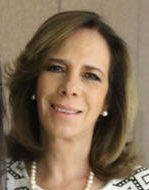

This outstanding candidate has devoted 22 years in helping the poorest and most neglected of her country, the indigenous communities, regain a sense of the
ir dignity and their worth. With tireless labor, lasting passion, and above all love, Dr. Jeannette Arriola has played an absolutely unique role in her country. She has proved to the world that eradicating extreme poverty does not have to be costly if one manages to gain the full trust of the groups concerned, on the condition of manifesting the deepest respect (rather than the usual suspicion) for the indigenous cultural norms and practices.
Traditionally, these rural communities suffered from a historical debt were living in conditions of high and often extreme marginalization, with great levels of poverty and an almost complete lack of opportunities. With her wise leadership, Dr. Arriola has achieved close cooperation between public and private actors from different sectors of Mexican society. Her unique “Comprehensive Model for Sustainable Development” has enabled indigenous communities to better manage their own development based on food security strategies, provision of drinking water, environmental care initiatives, gender equality and mainstreaming, citizen and civic participation, community empowerment, and the generation of sustainable employment opportunities in the indigenous sector. Her work has finally enabled society at large to better appreciate the ancestral and spiritual knowledge of indigenous peoples of Latin America which form the basis of their unique cultural identity. Finally, at the academic level, professor Jeannette Arriola has been responsible for giving a vibrant and relevant
space to the indigenous communities of Mexico. She organized six Annual National Meetings of indigenous groups at the university level. These meetings have been a watershed at the national level where actors of all kinds have had the privilege of witnessing and learning more of the unique customs and traditions of those who are after all the original inhabitants of Mexico.
Link to her LinkedIn profile: https://www.linkedin.com/in/jeannette-arriola-s%C3%A1nchez-365a90196/?originalSubdomain=mx
Her work contributes to achieving the UN Sustainable Development Goals-Agenda 2030

MEXICO – MARVAN Alicia (30 years old)
CONNECTING WITH HER ROOTS
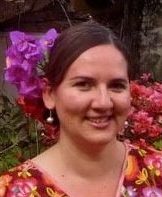
Alicia is a leader. Her career as a socially engaged multidisciplinary artist, educator, and cultural manager has taken her to academic and cultural institutions across the US, Europe, and Mexico. Yet she is equally at home in rural Michoacán, Mexico, where over years of hard work, she has built a project that connects her artistic work with her roots. The Guapamacátaro Center for Art and Ecology is a community-oriented residency program that brings together artists and scientists with the local population of Maravatío, Michoacán, to foster collaborative and creative approaches to sustainable development.
The project was born out of Alicia’s deep desire to do something to help address issues of social inequality and ecological degradation in her native Mexico. She convinced her family to cede control of a crumbling family estate, or hacienda, that had once been an important agricultural producer in the region. Over the years she has painstakingly rehabilitated the property and built the trust of the local community while transforming the site into one of the most innovative ecology-focused creative residencies. Over the last 14 years she has brought close to 200 artists, scientists, community organizers, and other creative professionals to engage with the landscape and community of Maravatío.
Each year up to twenty residents representing a broad range of artistic and academic disciplines, cultures, and backgrounds participate in three-week residencies at Guapamacátaro. Each participant commits to organizing at least one program with local elementary and secondary school pupils and is asked to organize at least one presentation or workshop for the community. These projects have focused on key social ecology issues, such as water, land, and craft.
One of the innovative projects that Alicia and the visiting artist, Kaitlin Bryson, worked on with the adult community was to create a series of Mycelial Bio-remediation “pillows” filled with oyster mushroom cultivations (known for their detoxifying qualities) that were placed as filters between an unregulated communal septic tank and the water stream. The community self-organized shortly after to build a better wastewater system.
Link to her website: https://aliciamarvan.com/
Her work contributes to achieving the UN Sustainable Development Goals-Agenda 2030

This year, WWSF selected among the ten candidates, three laureates from Ekta Parishad (India), nominated by IGINP Cesci – the International Gandhian Institute of Non-violence, India. The three laureates participated in the one-year Jai Jagat march from India to Geneva starting in 2019. Unfortunately, due to the COVID-19 pandemic, the march was interrupted in Armenia and postponed to continuing in 2021 so as to terminate the march in Geneva as a wake-up call to respond to the world’s deepening economic, social and environmental crises. The campaign is an urgent appeal for people to transform and achieve one planet for all people.

«Jai Jagat is a vision of bringing people together to promote justice and ethics as a way to realize peace. This vision draws from Gandhi’s use of nonviolence in the Freedom struggle in India against the oppressive colonial forces. Jai Jagat is a campaign that enacts this vision at a global level through people’s engagement in multi-year events and actions. Although the Jai Jagat began in India in 2007 with a Janadesh march of 25,000 landless people, nonviolent action has since touched other locations in countering oppressive policies, laws, and governments. Our World Can Be Different If We’re Not Indifferent.»
INDIA – UIKEY Saraswati (43 years old)
WHEN A POOR TRIBAL WOMAN BECOMES A POWERFUL AND RESPECTED ROLE MODEL
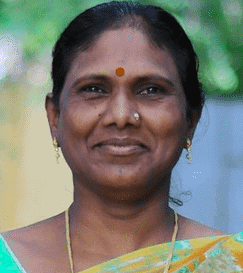
The tribal populations of India are among the most despised inhabitants of the country. Saraswati comes from such a tribe, the Gond. She comes from a very poor family of laborers working in the land. At 14 years old, she is already a mother, living the challenging life of a day laborer. But her contact with Ekta Parishad, an organization of landless farmers, transformed her existence and at 18 she starts a new life. She becomes active militant fighting for the right of access of her people to land, water, and forest rights, not without having had to overcome major prejudices where she lives. But thanks to the practice of non-violent communication and great inner strength, she overcame all obstacles and was included in the 50 marchers of the Jai Jagat organization which in 2019-2020 undertook to walk the 11’000 km. separating New Delhi from Geneva.
Link to https://jaijagat2020.eu/ & https://www.ektaparishadindia.org/
Media coverage:
- The Free Press Journal, India “Madhya Pradesh: 3 women win international award for tribals’ uplift” https://www.freepressjournal.in/bhopal/madhya-pradesh-3-women-win-international-award-for-tribals-uplift
- News 18.com “Meet the Four Unsung Women Activists from MP-Chhattisgarh Awarded by World Body for Welfare Work” https://www.news18.com/amp/news/india/4-unsung-women-leaders-from-mp-chhattisgarh-awarded-by-world-body-for-excellent-welfare-work-2932035.html?__twitter_impression=true
Their work contributes to achieving UN Sustainable Development Goals-Agenda 2030

INDIA – SHAH Shabnam (33 years old)
INNER STRENGTH AND STRONG DETERMINATION WIN THE DAY
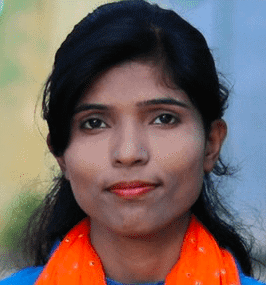
Since the age of 18, Shabnam has been striving with great tenacity for the land rights of tribal people, among the most discriminated populations of India. Being a young woman who was also a member of a minority religion, she needed to and has manifested great strength, talent, and determination. She joined an organization fighting for the rights of the dispossessed, Ekta Parishad, at the outset of her struggles for land rights (she was still in high school!). Her work for the most dispossessed of all extends to over 100 villages and she has succeeded in getting land rights for 1470 families. She is gifted with a natural ability to deliver strong speeches. Her work has been mainly for one of the most primitive and exploited tribal people of India, the Saharya tribe. Alcohol was wreaking havoc among these people and she has managed to reduce drastically the all-pervading threat alcohol posed to these tribal populations. In June 2019, she was selected to be one of the 50 Jai Jagat marchers for this organization’s New Delhi-Geneva march on foot. Her commitment to her family and her work is such that she chose to stay single, a quasi-heroic decision in the Indian cultural context.
Link to https://jaijagat2020.eu/ & https://www.ektaparishadindia.org/
Media coverage:
- The Free Press Journal, India “Madhya Pradesh: 3 women win international award for tribals’ uplift” https://www.freepressjournal.in/bhopal/madhya-pradesh-3-women-win-international-award-for-tribals-uplift
- News 18.com “Meet the Four Unsung Women Activists from MP-Chhattisgarh Awarded by World Body for Welfare Work” https://www.news18.com/amp/news/india/4-unsung-women-leaders-from-mp-chhattisgarh-awarded-by-world-body-for-excellent-welfare-work-2932035.html?__twitter_impression=true
Their work contributes to achieving UN Sustainable Development Goals-Agenda 2030

INDIA – KUJUR Nirmla (37 years old)
A CHAMPION FOR THE POOREST OF THE POOR
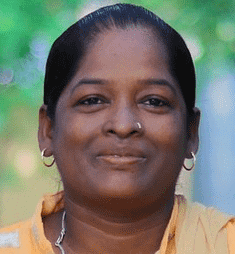
Nirmla Kujur is an inspiring, self-made, independent woman activist who took part in the Jai Jagat 11’000 km peace march on foot from New Delhi to Geneva (which was interrupted due to COVID-19 in Erevan, Armenia). She has committed herself with both rigor and skill to defend the forest, water, and land rights of the poorest of the poor. These three areas constitute the very basis of the survival of farmers. Take one of the three away, especially land or water, and the result will usually be fatal.
Nirmala was born close to the Indian state of Chattisgarh (center East of the country) and is from the Uraon tribe, the oldest of 6 siblings in a family living off the land (farming). At the end of her high school years, she chose to work on a program of self-delivery of babies in remote areas. Very early she chose to abandon her marital home and husband owing to their confining and patriarchal values. A person with both cheerful and bold disposition, she emerged over the years as a true grassroots leader. Just in recent years, she helped over 400 families get legal entitlement to land and has filed an additional 1000 requests (which now await the response of the authorities), all since working with Ekta Parishad, a grassroots movement active with Adivasis (tribal groups considered as the original inhabitants of the country).
Link to https://jaijagat2020.eu/ & https://www.ektaparishadindia.org/
Media coverage:
- Glibs, India, “अंतरराष्ट्रीय पुरस्कार के लिए चुनीं गईं दूरस्थ वनांचल में रहने वालीं निर्मला कुजूर” https://m.glibs.in/MISC/Nirmala-Kujur-living-in-remote-Vananchal-selected-for-international-award-109200
- Samaynews mpcg, India, “डब्ल्यू एफ एस अंतरराष्ट्रीय पुरस्कार के लिए चयनित हुई छत्तीसगढ़ की बेटी…..” https://www.youtube.com/watch?v=dhAp2sobDxs&feature=youtu.be
Her work contributes to achieving UN Sustainable Development Goals-Agenda 2030

INDIA – PAWAR Vijaya Shriram (34 years old)
TRANSFORMING SUGARCANE WORKERS INTO ARTISTS OF BEAUTY
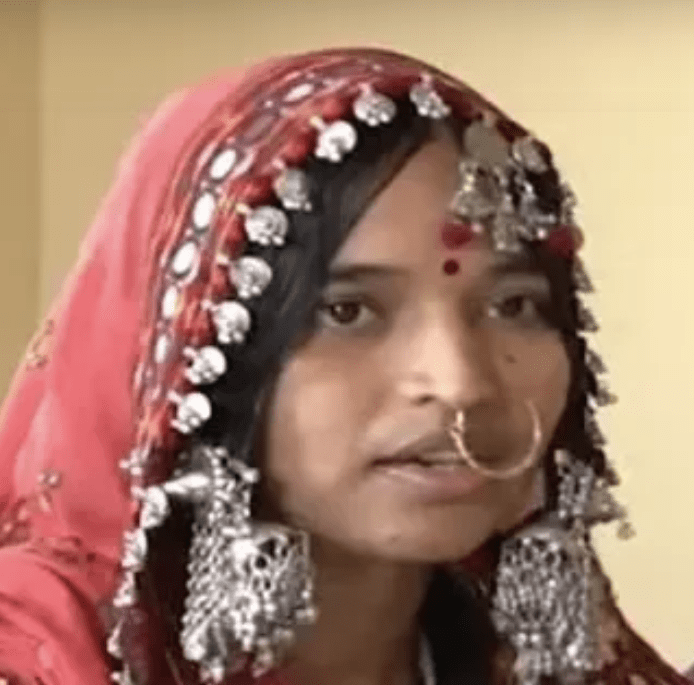
Vijaya belongs to the indigenous nomadic Banjara community of the Beed district in Maharashtra state. She walked 6 km daily to reach her school which she had to stop when she got married at age 16. However, after her marriage, she decided to resume her studies in a local college, the first girl of her community to ever undertake such studies. She had a great attachment to the splendid Banjara traditional embroidery, a craft handed down from mother to daughter. However, most women in her tribe had to work as sugarcane cutters 3-4 months in the year, an extremely challenging activity in the hot sun. So Vijaya had the idea of opening up commercial outlets for the beautiful traditional tribal handicrafts and for the first time ever, the women started earning. It was the dawn of a new era for them.
Vijaya started taking part in exhibitions at the local, state, and national levels. She discovered the possibility of producing their handicrafts on a really large scale with modern machines. However, such a step would ruin the local artisans and kill a unique traditional cultural and local art and put the income into non-local hands. But at the same time, even the younger local Banjara women were turning away from this local craft due to its heavy production costs. So Vijaya went through formal technical training in embroidery and related techniques and decided to introduce innovative contemporary designs. With a few like-minded colleagues, in the year 2000, she started a movement for the revival of traditional Banjara arts and crafts. And after nearly 20 years of struggles, the first fruits are coming forth. She is now working in close to a hundred hamlets with almost 1000 women artisans who can make much better income creating beauty than what they earn in the back-breaking work of sugar-cane cutters.
Video link: https://www.youtube.com/watch?v=2ChT1aT47RM
Her work contributes to achieving UN Sustainable Development Goals-Agenda 2030

INDIA – KHAPERDE Subhadra (52 years old)
“WHAT IS DIFFICULT, I’LL DO IMMEDIATELY, THE IMPOSSIBLE WILL TAKE A LITTLE LONGER”
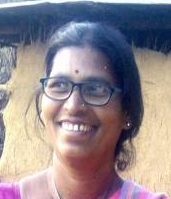
Certainly, very few women activists in India have managed to transcend in their personal lives the deep-rooted caste, class, and gender inequalities that Subhadra had to face. Born in the lowest cast in the hierarchical cast structure that has dominated the subcontinent for eons, the hurdles Subhadra had to face are unfathomable, as Dalits continue to face deplorable prejudices in practically all walks of life in India. In addition to this entrenched caste-based discrimination, she had to struggle against the deep-rooted patriarchal inequity practiced within Indian society at large. Finally, coming from a marginalized family from rural areas, she had in addition to face the class-based barriers so solidly implanted at all levels of the social structure. However, thanks to her unbending determination and grit, an unshakeable, clear intention and her deep compassion for the most downtrodden, Subhadra overcame these huge challenges and also many others to become an amazingly innovative, productive, and creative community leader. In her fight for the rights of the most oppressed, this social worker was even imprisoned when she dared face administrative and police corruption-fighting alcohol bootlegging. Among her many achievements, one can mention:
a) Her activity with the well-known Ekta-Parishad rural mass movement working for the rights of tribal people over natural resources and the establishment of their land rights in western Madhya Pradesh.
b) Her fight for women’s reproductive health rights which for quite a while was funded by crowdfunding. She went far beyond the State’s narrow vision of simple family planning to address the numerous gynecological problems which haunted so many women.
c) During this period, she also spearheaded a women’s movement against alcoholism and illegal bootlegging of alcohol at considerable danger to her life and for which she was illegally imprisoned with 17 other Adivasi women.
d) Other areas of activity include mobilizing Adivasis for soil and water conservation and improvement of the food women consume. This led her to oppose high chemical fertilizer and pesticide-based intensive farming and work to revive traditional sustainable agricultural practices with the use of indigenous seeds so as to empower women to become controlling partners in farming operations.
e) In addition to all these activities and others we have not even mentioned, Subhadra continues to promote the education of Adivasi girls as she believes that without this one cannot fight patriarchy.
Link to her website: https://subhadrakhaperde.in/about/ and video of a gathering she organized on 15 October International Day of Rural Women 2020 https://www.youtube.com/watch?v=i8FOnywzvVc
Media coverage:
- The Free Press Journal, India “Madhya Pradesh: 3 women win international award for tribals’ uplift” https://www.freepressjournal.in/bhopal/madhya-pradesh-3-women-win-international-award-for-tribals-uplift
- News 18.com “Meet the Four Unsung Women Activists from MP-Chhattisgarh Awarded by World Body for Welfare Work” https://www.news18.com/amp/news/india/4-unsung-women-leaders-from-mp-chhattisgarh-awarded-by-world-body-for-excellent-welfare-work-2932035.html?__twitter_impression=true
Message from the laureate:

“It is indeed a great honor to be selected for this prize and will certainly go a long way in providing moral support to my work. Thank you very much. On the occasion of International Day of Rural Women, our organization Mahila Jagat Lihaaz Samiti organized meetings across the four districts of Indore, Dewas, Alirajpur, Dhar, and Khargone where we are active.” See video https://www.youtube.com/watch?v=i8FOnywzvVc
Her work contributes to achieving UN Sustainable Development Goals-Agenda 2030

NEPAL – RAJBHANDARI Kanti (52 years old)
A NATURAL BORN LEADER
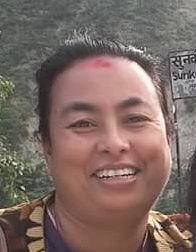
The Prizewinner is among outstanding candidates who have played a very effective leadership role at local, regional, and national levels in two key areas of development: women’s empowerment (in one of the countries in the world where women were traditionally the most oppressed) and sound management of the forest environment. (25% of Nepal is covered with forests, but when Kanti was a child the figure was 50%, a huge decrease in a very short time due to poor forest management).
A teacher by profession, she got involved very early on with the local women’s base as a volunteer in community forest user groups (CFUG). Very early on, her remarkable abilities as a
natural leader, her strength in the face of strong male opposition to her dynamic drive for gender equality, her broad and far-sighted vision caught the attention of Himalayan Grassroots Women’s Natural Resources (HIMAWANTI Nepal), a non-governmental organization created and run by grassroots women. Kanti made the decision to forego marriage and start a family and has spent her life strategically amplifying women’s voices to transform Nepalese society. At an early stage, she was ostracized and even threatened because of her fight for gender equality, but she bravely held her ground… and triumphed. She has the skills to work both at the local level with rural women leaders and local politicians and at the national level with provincial and national legislators. A natural-born leader.
Link to her Facebook profile: https://www.facebook.com/kanti.rajbhandari
Her work contributes to achieving UN Sustainable Development Goals-Agenda 2030

Selected messages of support regarding the WWSF Prize for women’s creativity in rural life
Mary Robinson, UN High Commissioner for Human Rights
“… It is with great pleasure that I welcome this excellent initiative to award in Geneva the Prize for women’s creativity in rural life and celebrate World Rural Women’s Day. I would like to convey my best wishes and salute the Women’s World Summit Foundation…”
Dialogue Nord-Sud, Cameroon
“…We appreciate the efforts of your organization to work for the implementation of women’s rights. We send you total support.”
ONG SAPHTA, Niger
“…We are happy to have discovered your organization and congratulate you on the empowerment you are to rural women.”
Zambian Women in Agriculture, Zambia
“…a brilliant idea for you to create and initiate the Women’s World Summit Foundation but also a very inspiring and motivating one. A million thanks on behalf of Zambian Women in Agriculture. The community based organization has not only achieved local or national recognition but a slot in the Women’s World Summit Foundation, thus creating history.”
Mouvement des Travailleurs Ruraux Sans Terre, Brazil
“We congratulate you for founding the Women’s World Summit Foundation which is a boon to rural women and children…”
International Institute for Cooperation on Agriculture IICA, Costa Rica (a coalition of 34 member states)
“…We are very interested in co-sponsoring your Foundation’s campaigns to promote WWSF and the annual award of the “Prize for women’s creativity in rural life”, and thus becoming an official sponsor of the campaign…”
Mercy and Grace Charitable Trust, India
“…we thank God for the wonderful service your foundation is doing for the welfare and development of women and children who live below the poverty line via your empowerment programs…”
Self-Employed Women’s Association SEWA, India
“…we thank you for your encouragement and support and we are all so proud of WWSF efforts in bringing visibility to the struggle of poor rural women…”
Rural Women Welfare Organization, Pakistan
“…WWSF has provided a powerful platform and fruitful campaign for the development of rural women…”
Center for Conflict Resolution, Zambia
“… I have read your very impressive July 2001 Global Newsletter. I found the contents most interesting and inspiring. The sisterly spirit of your organisation is apparent and I am impressed by the fact that you focus on ordinary women who in small ways are making a tremendous impact on their own lives and those of members in their communities…”
